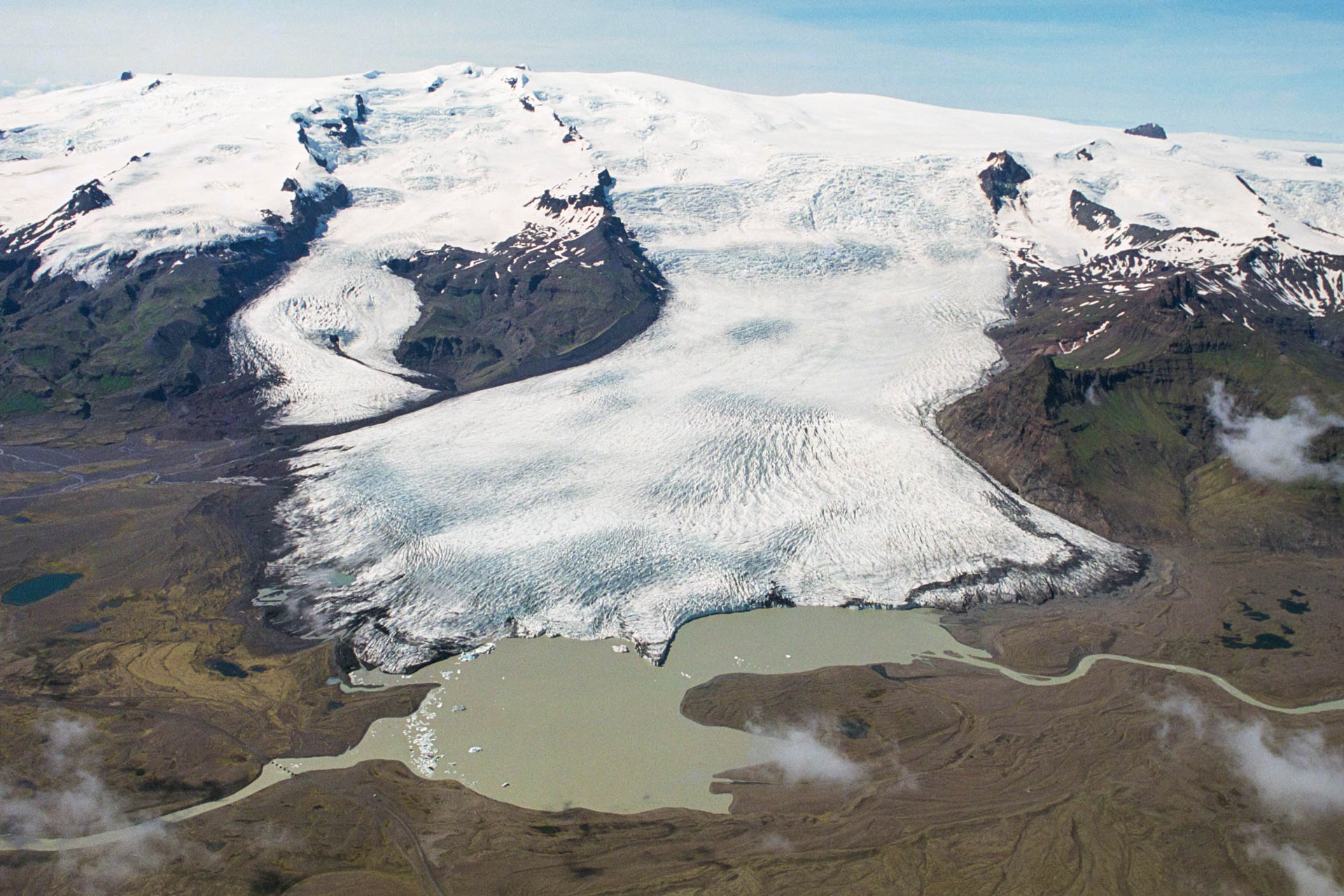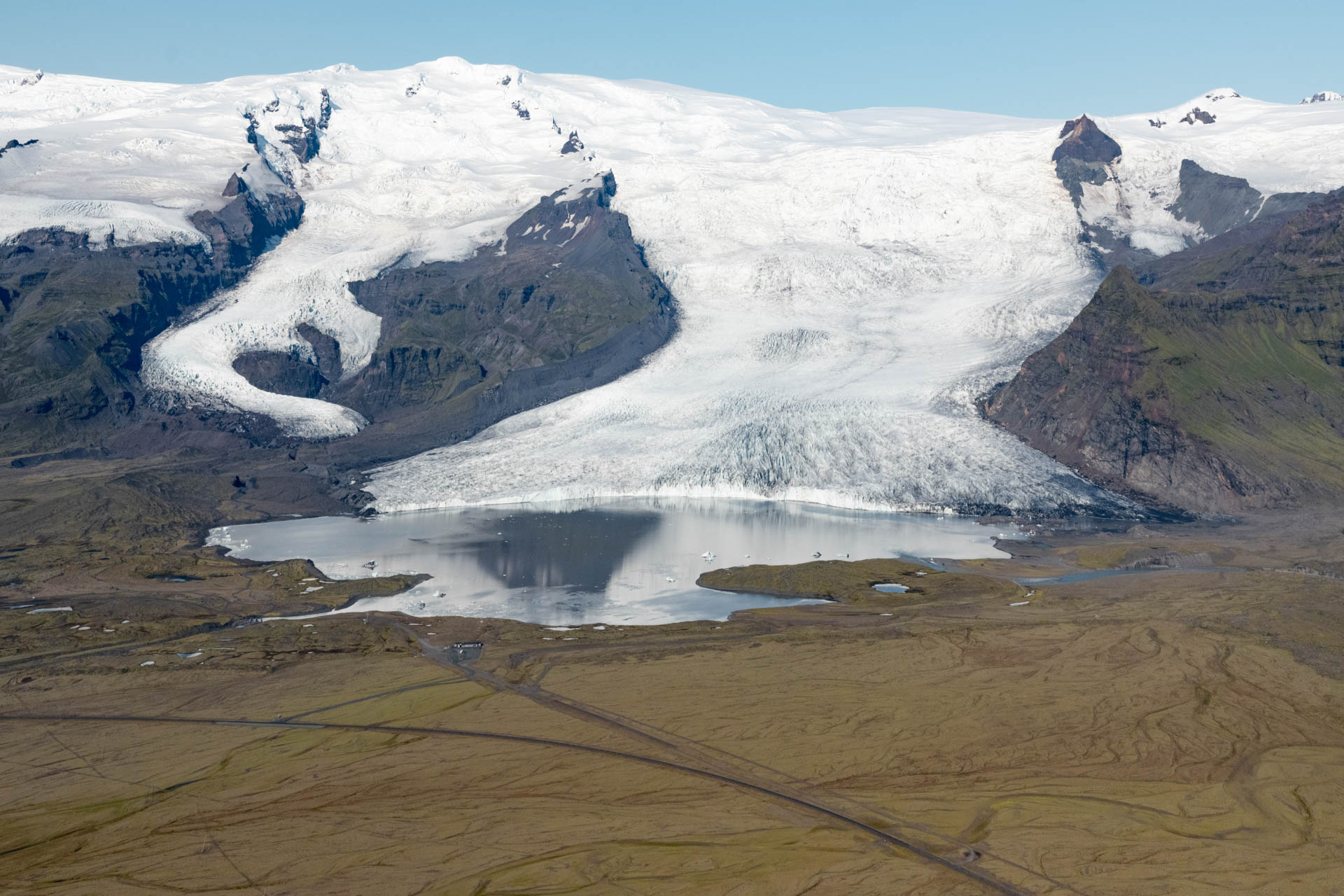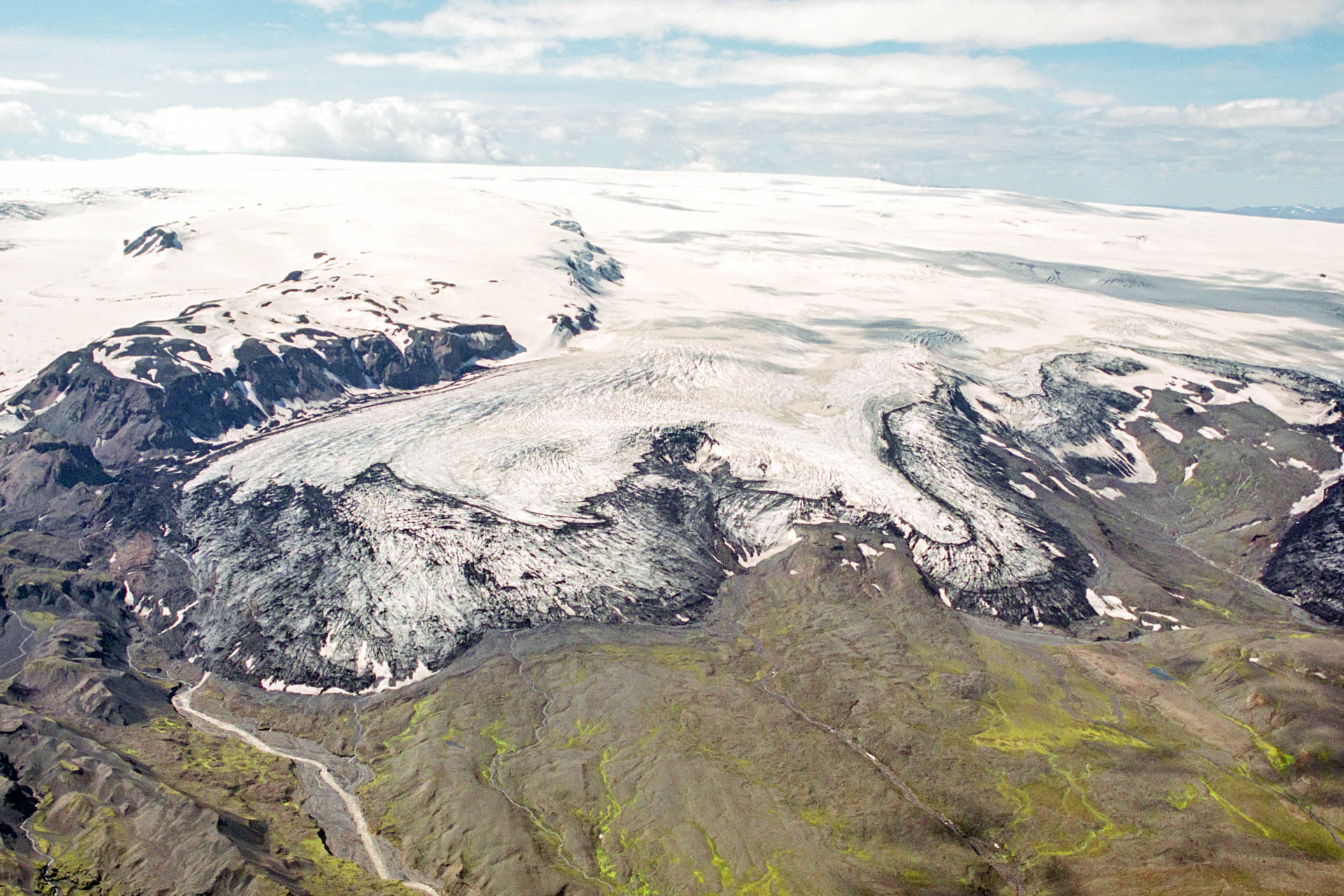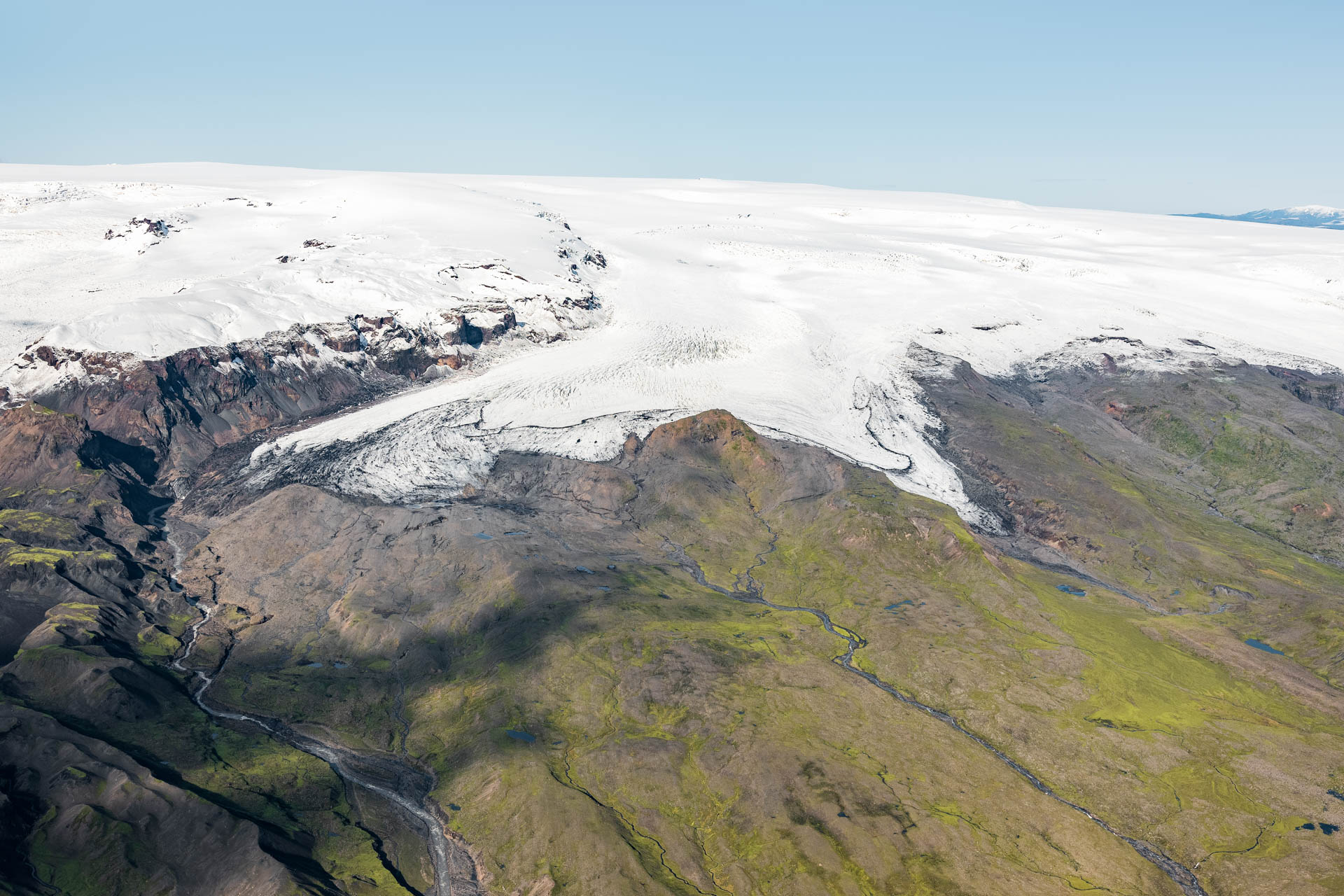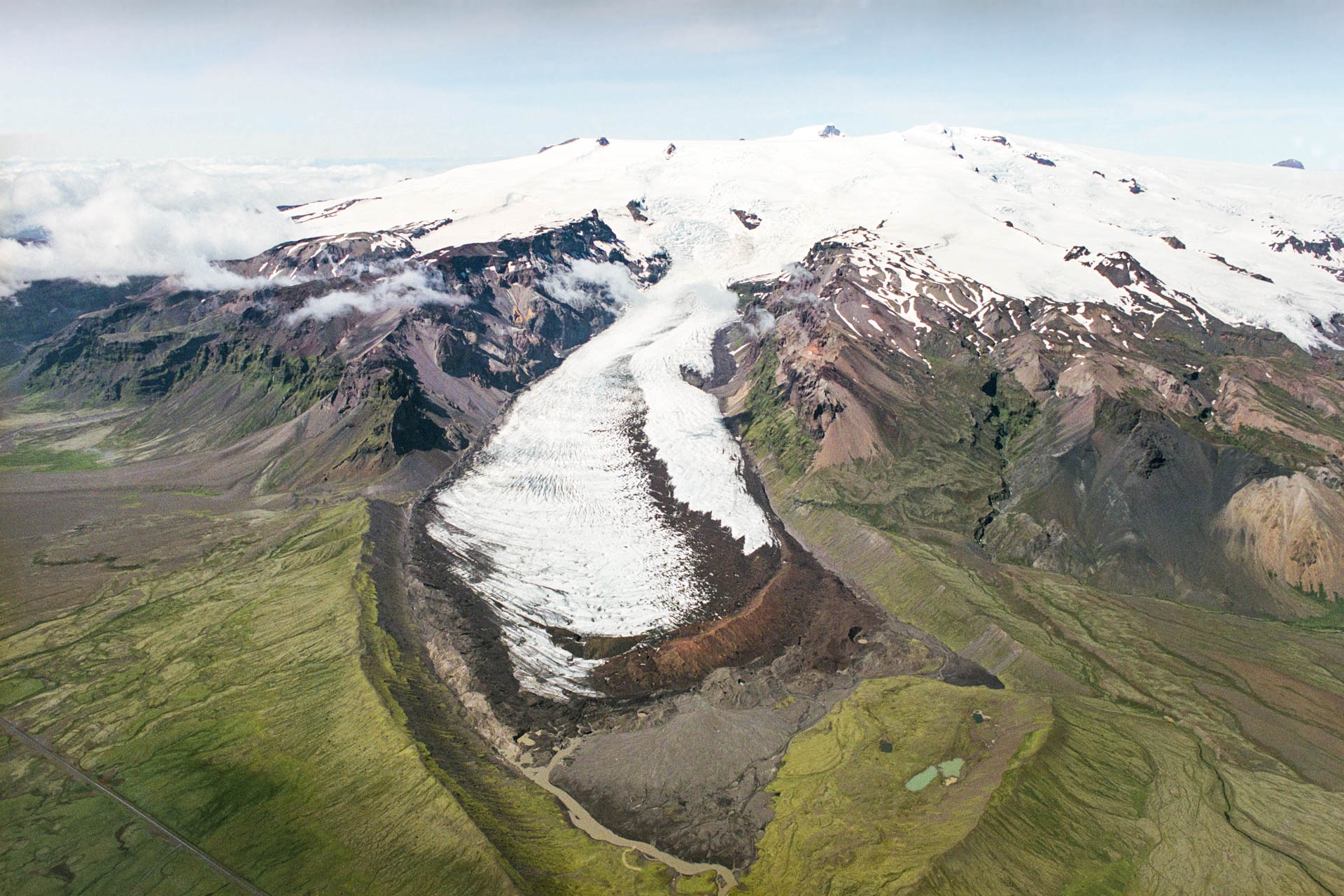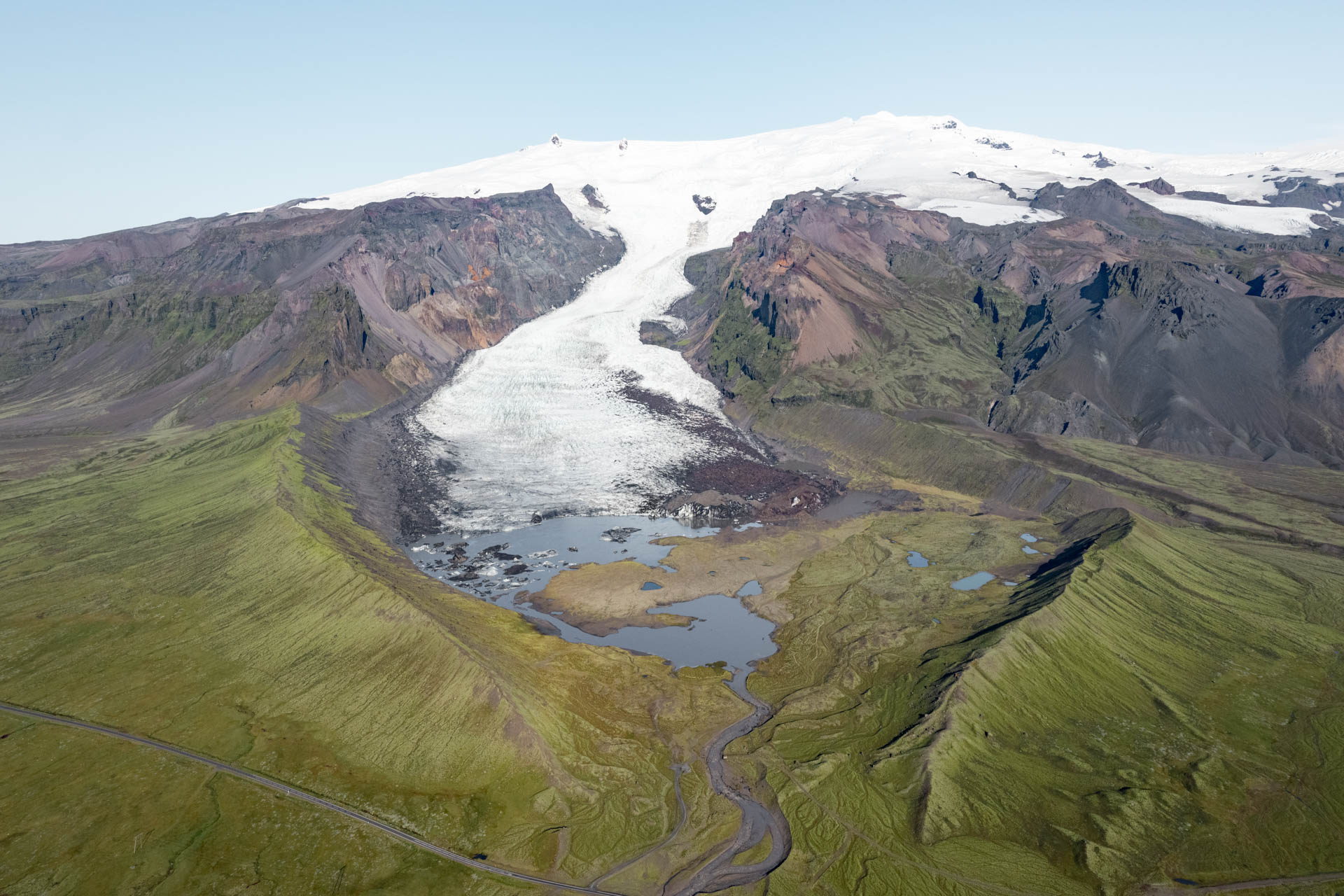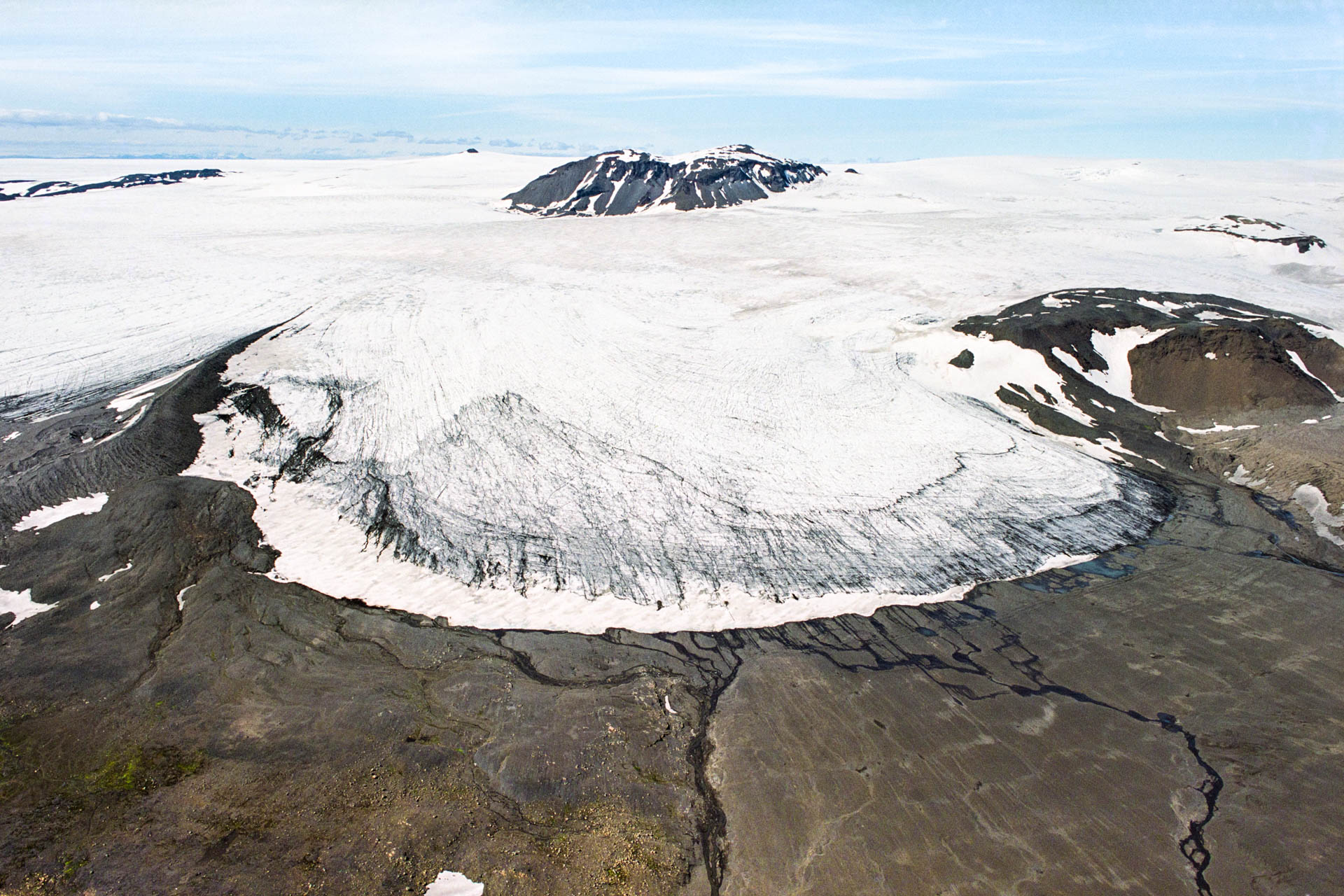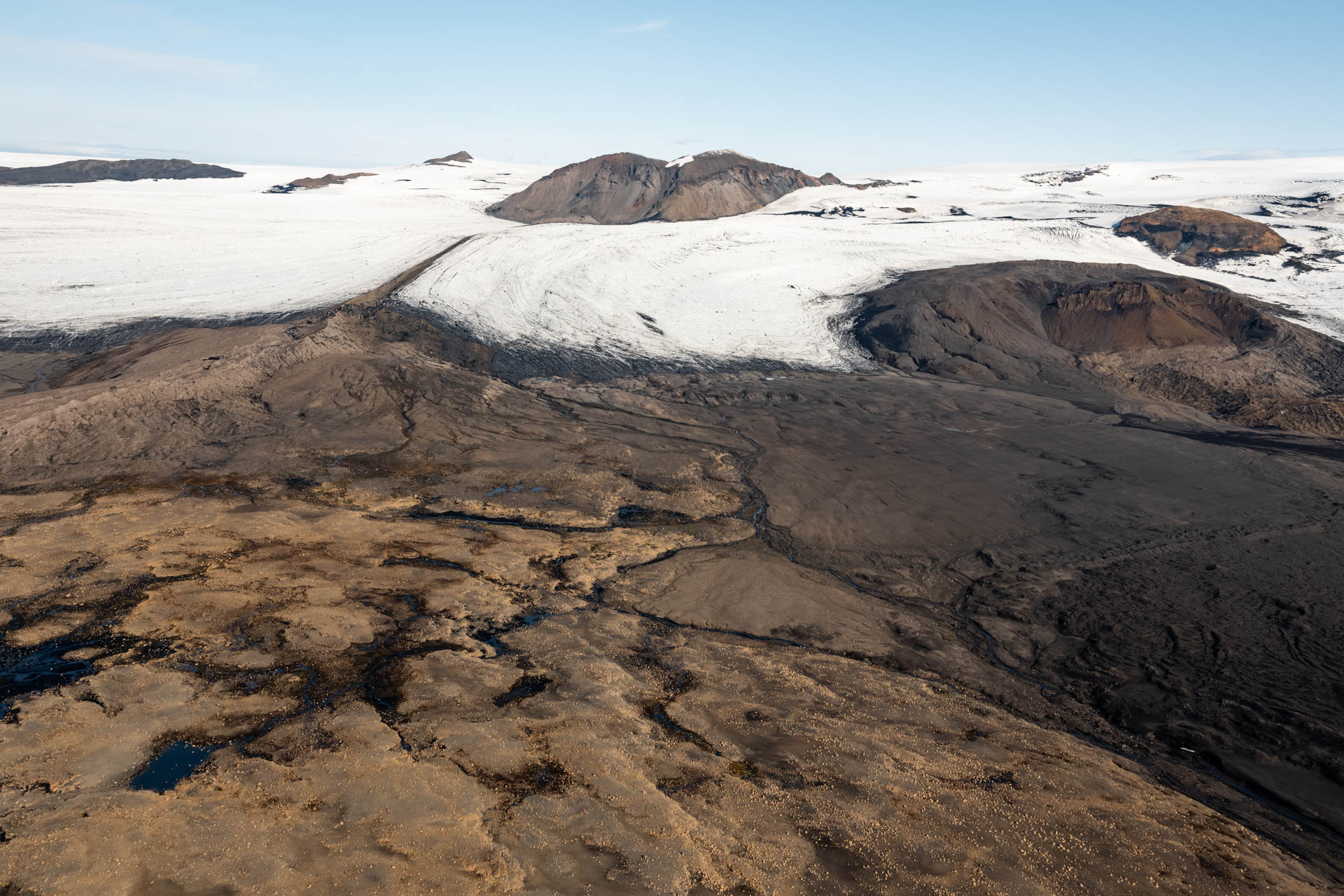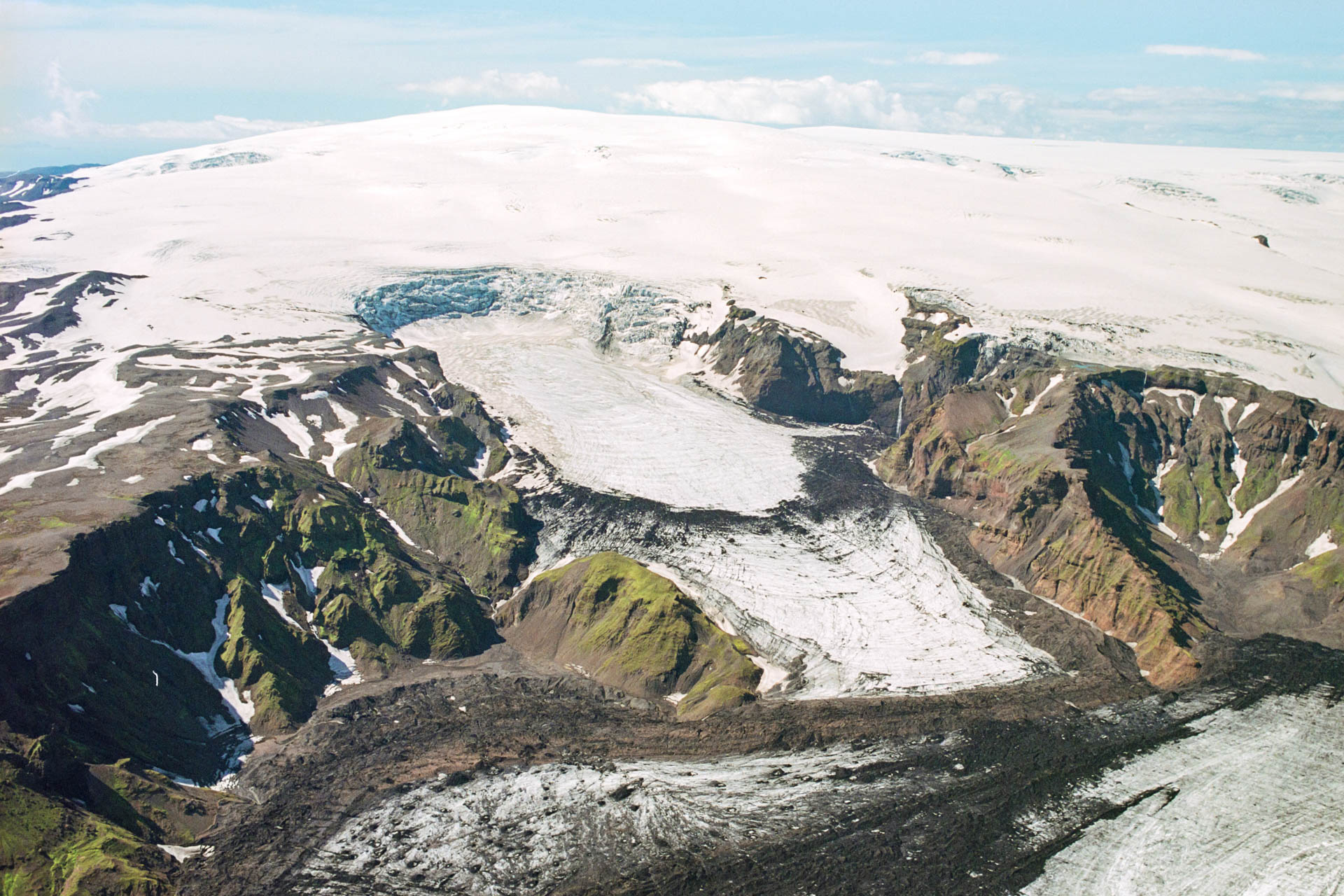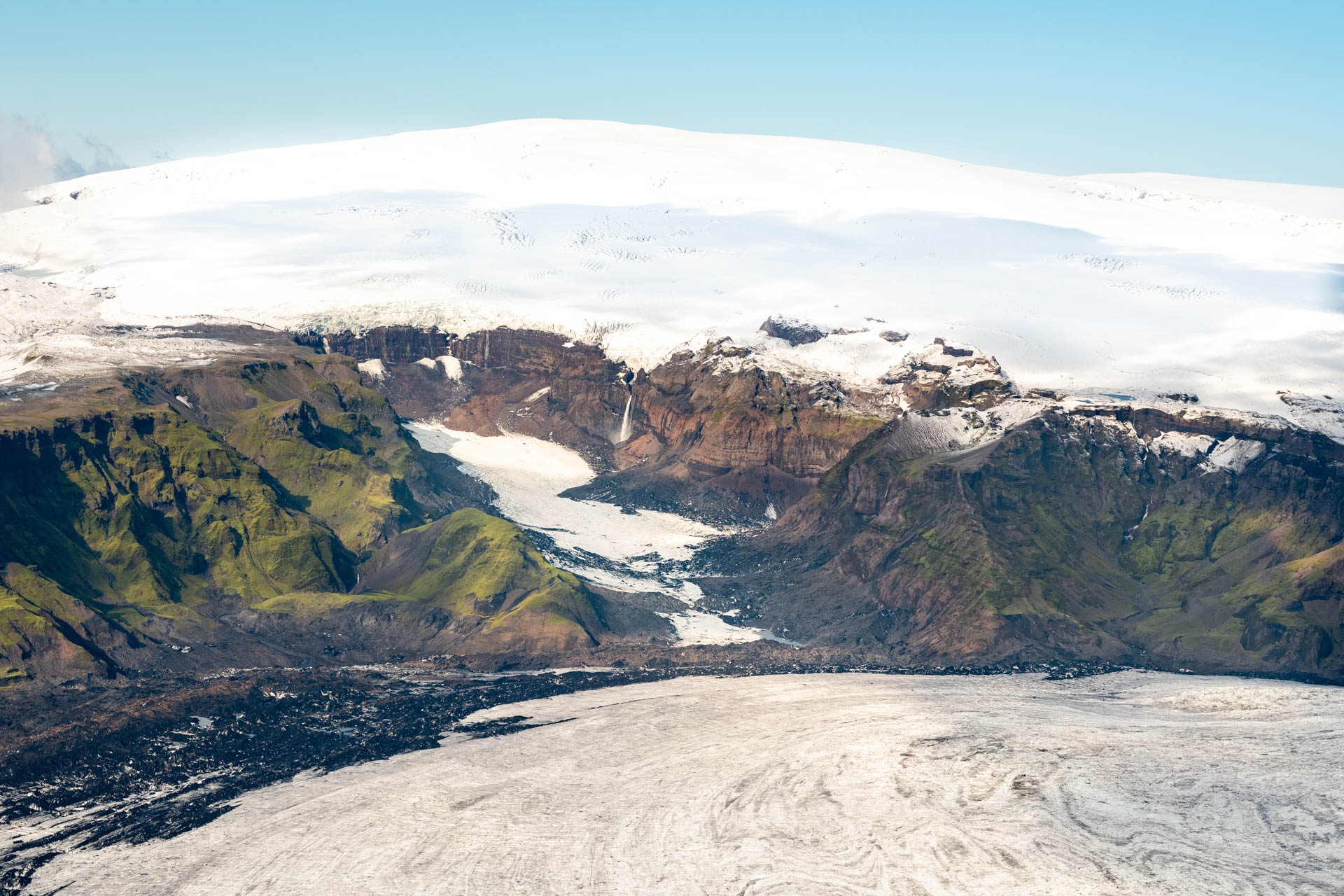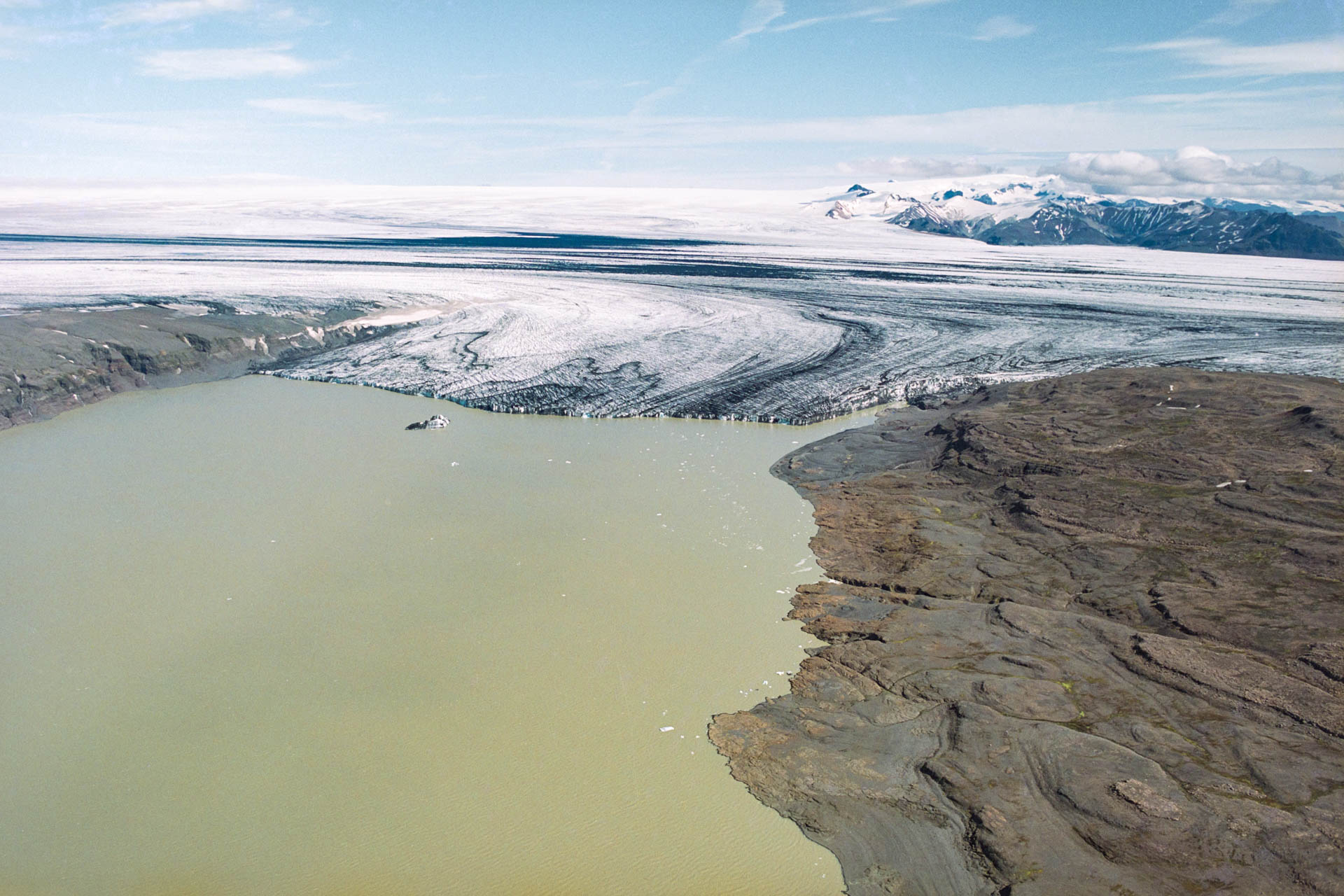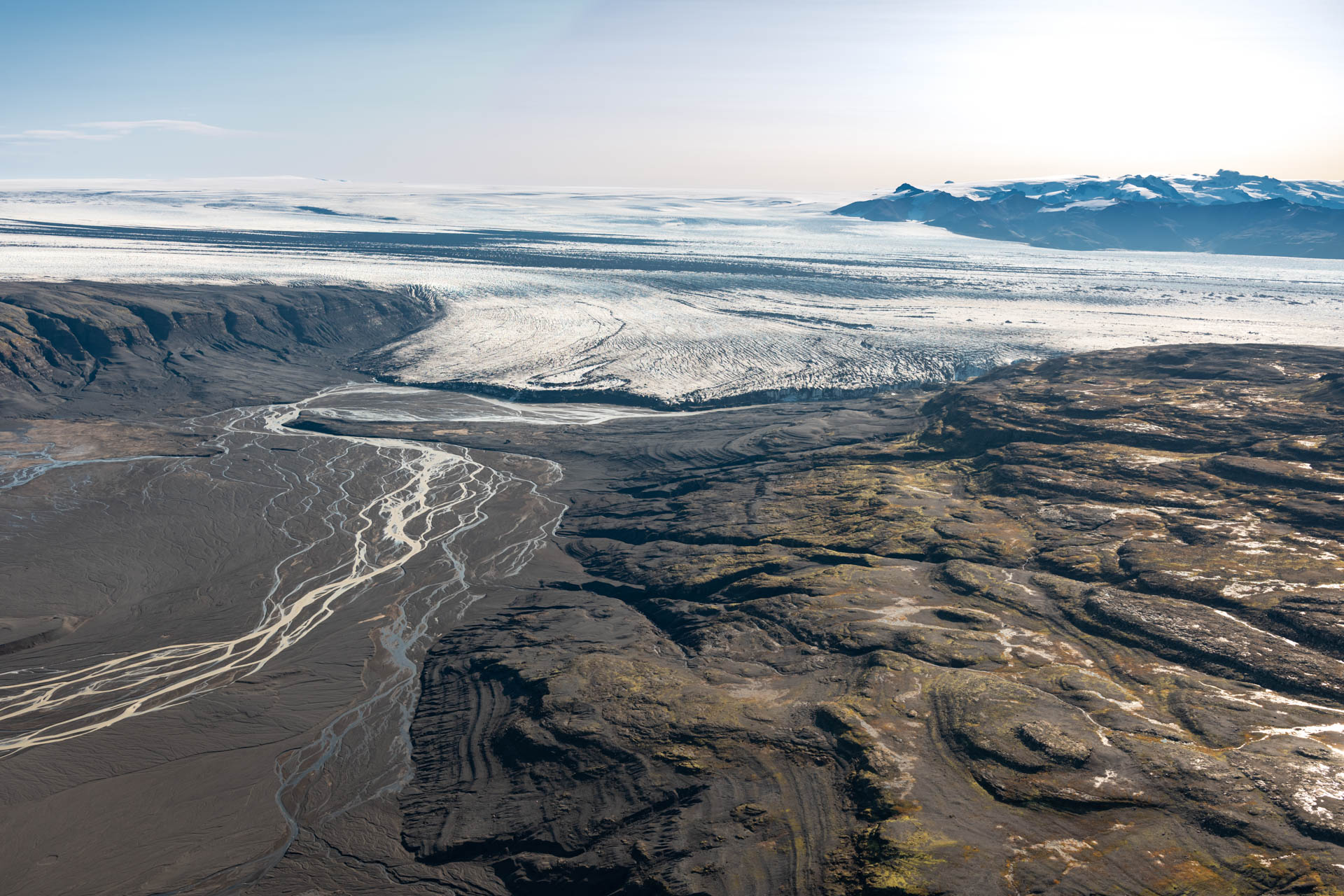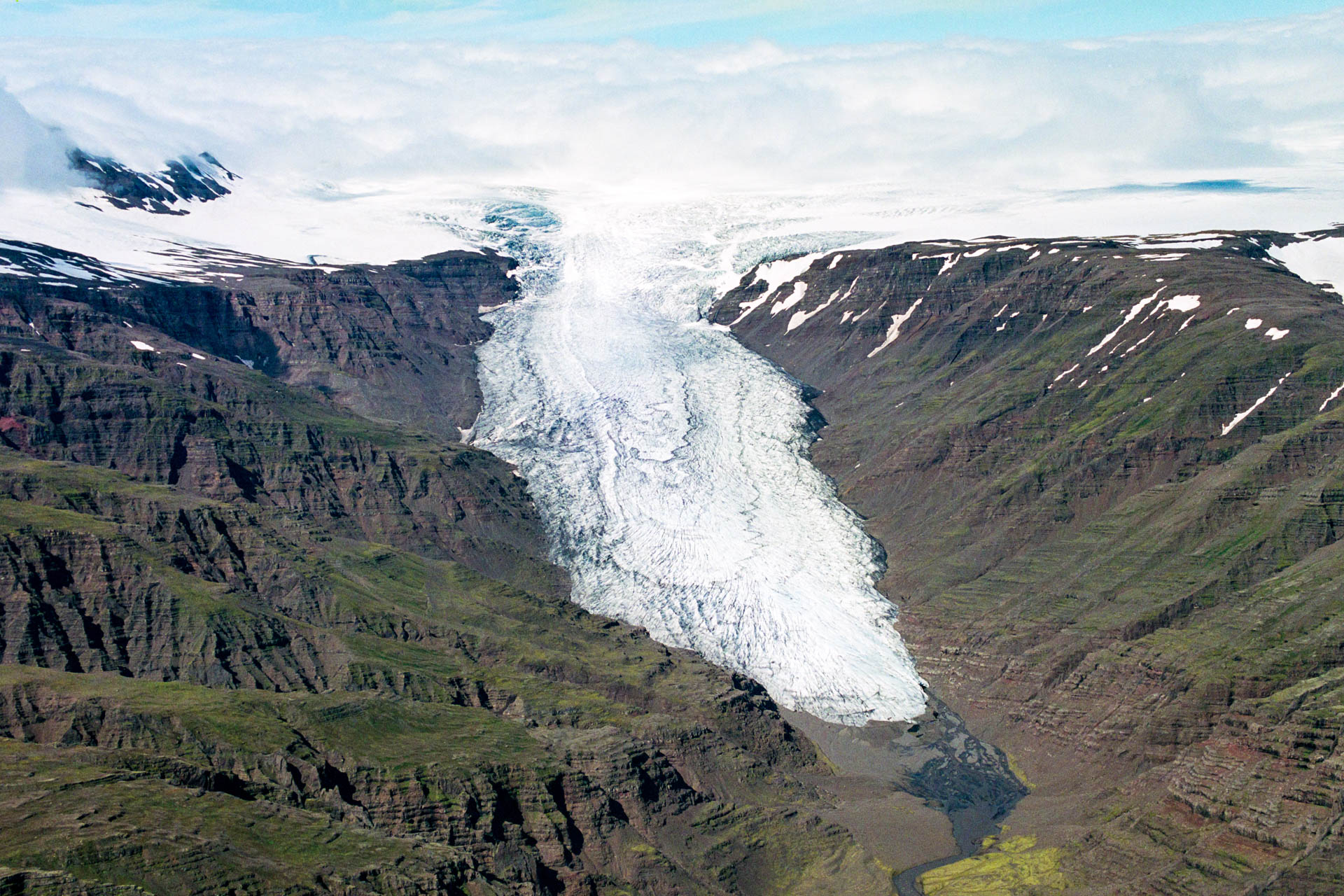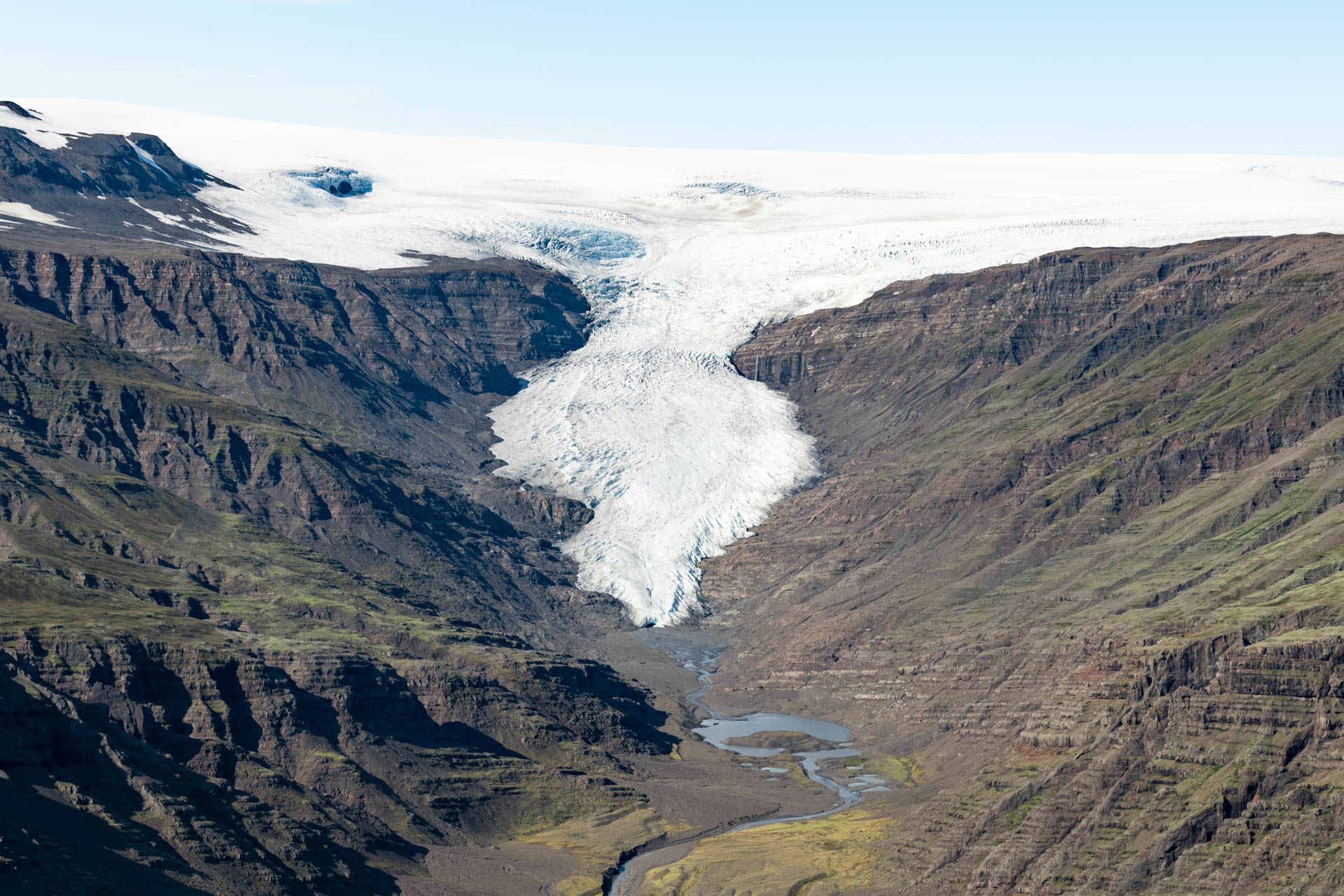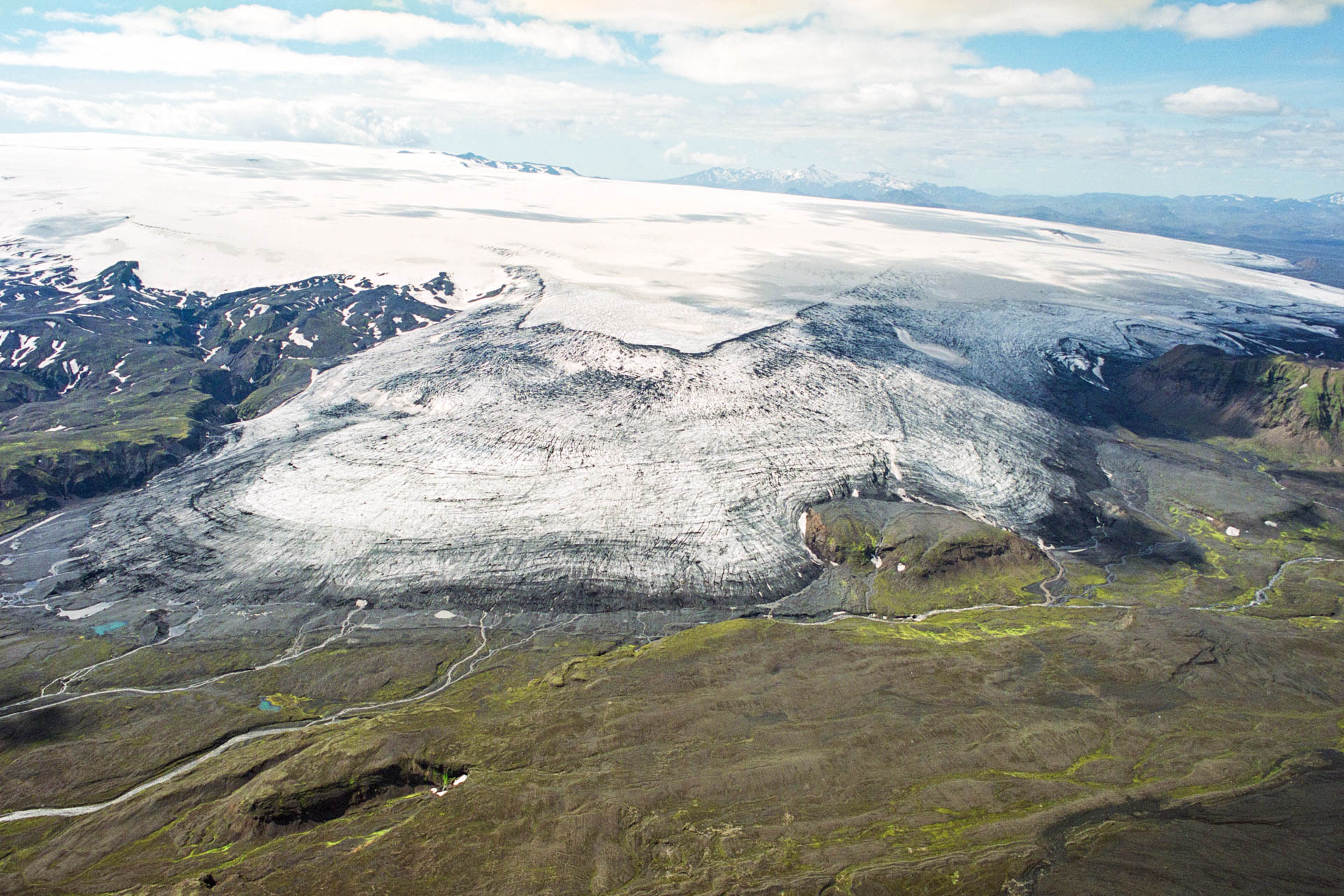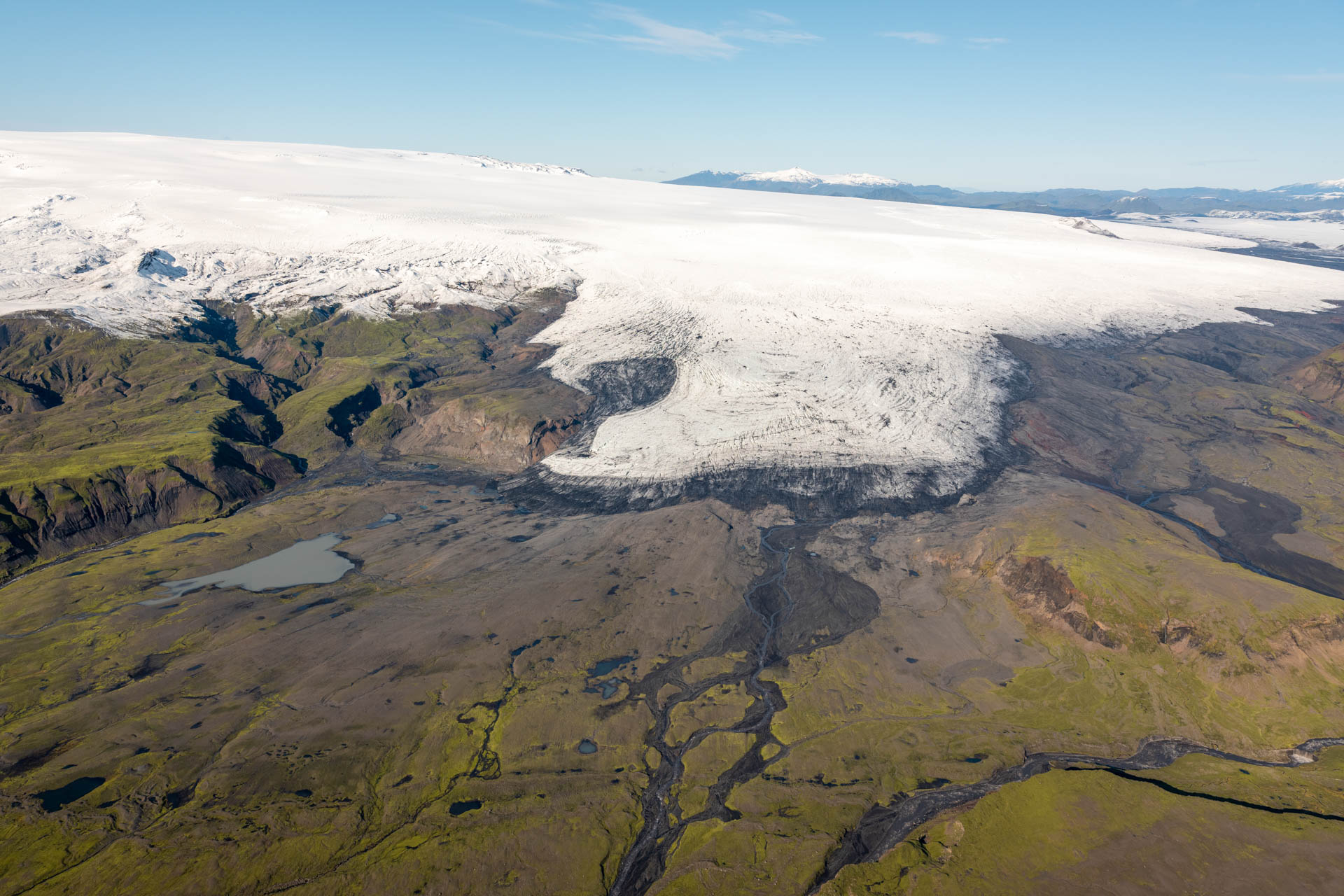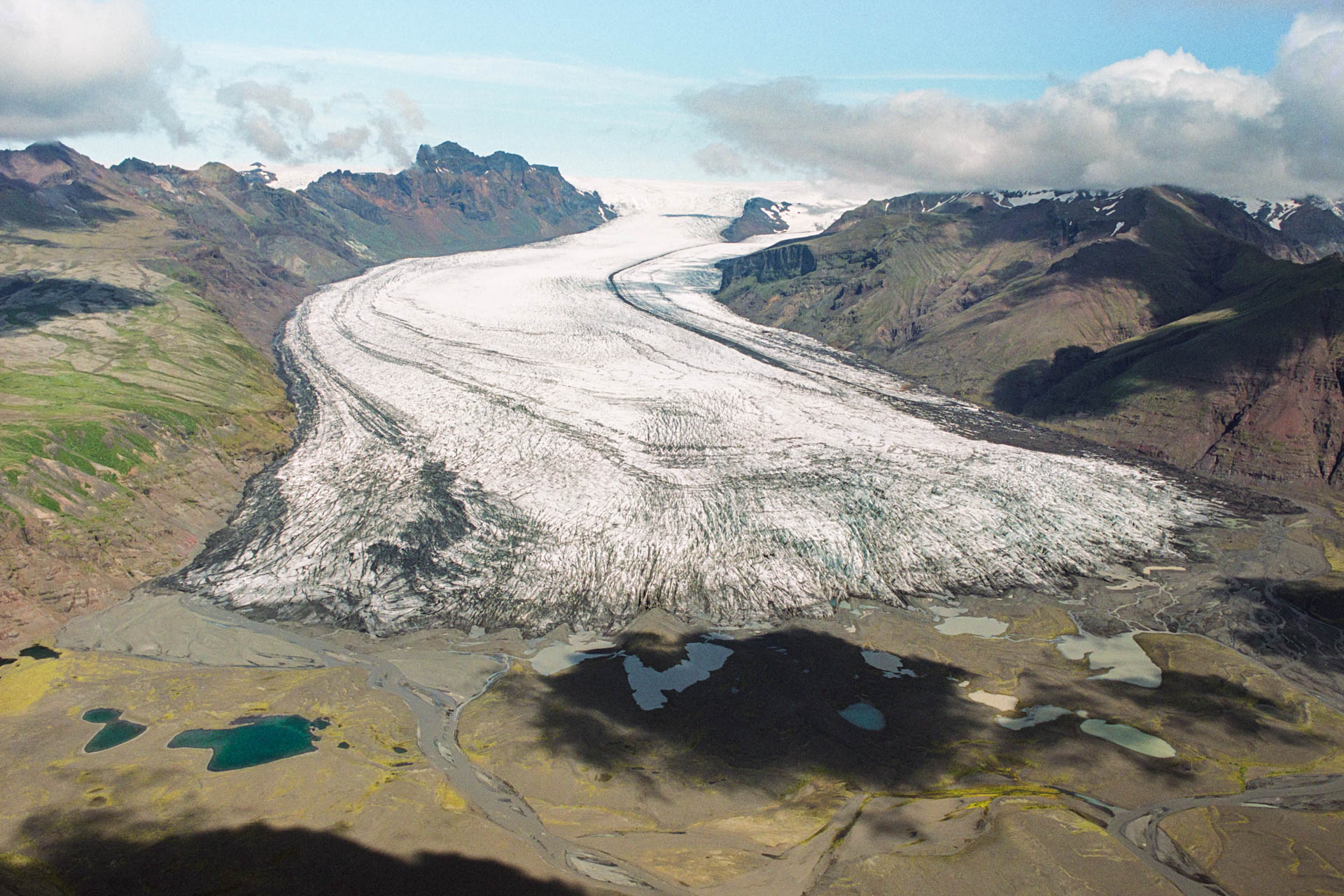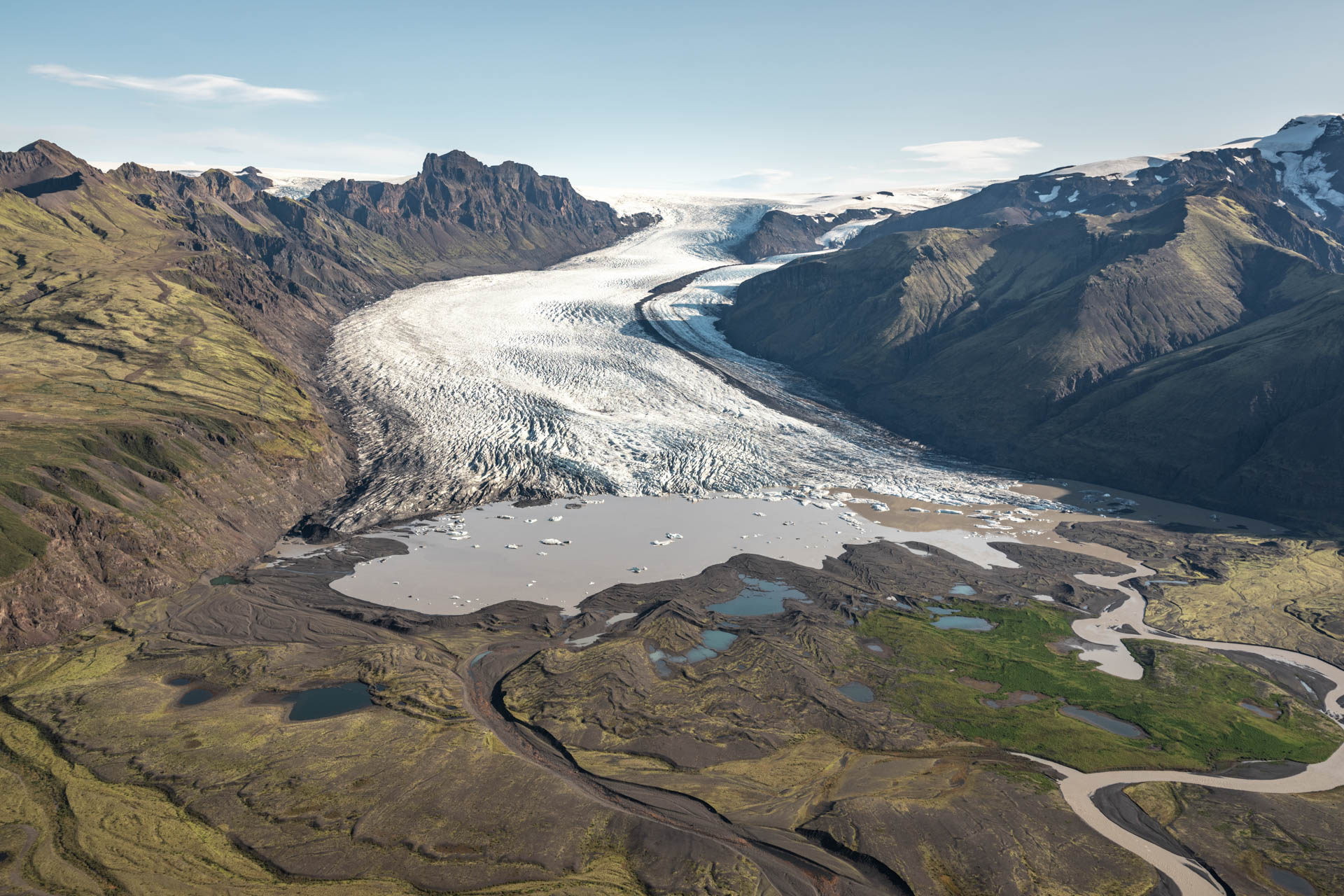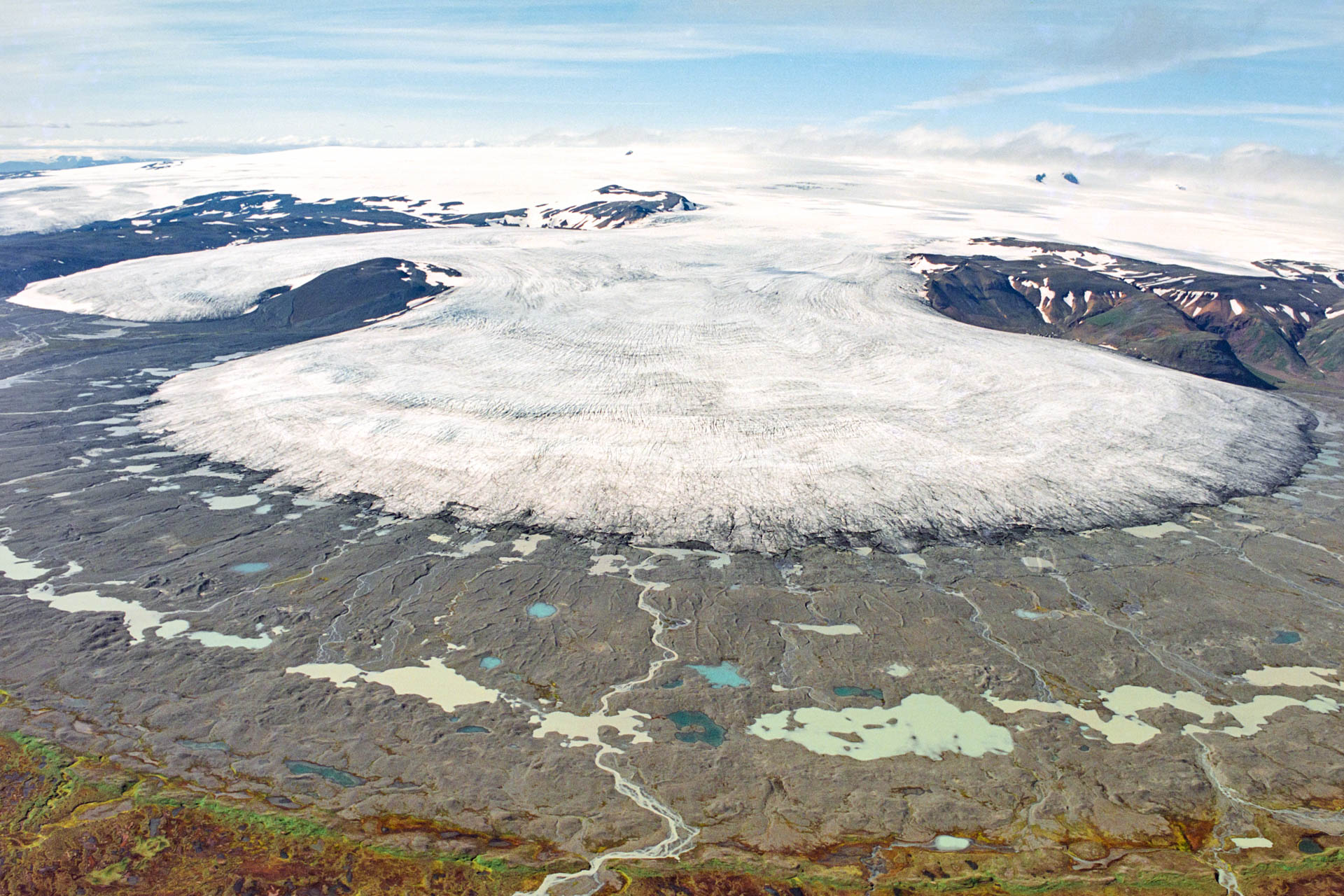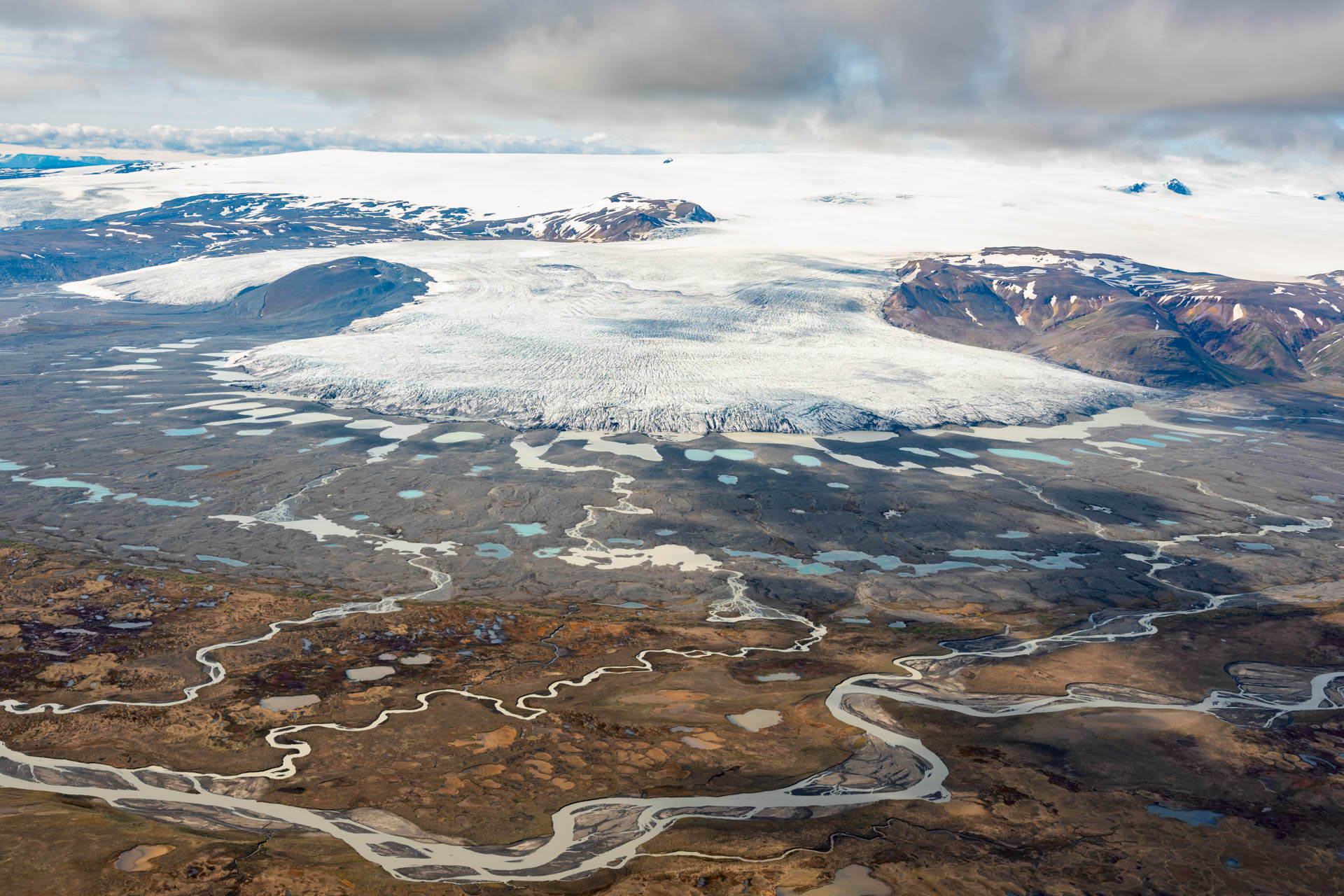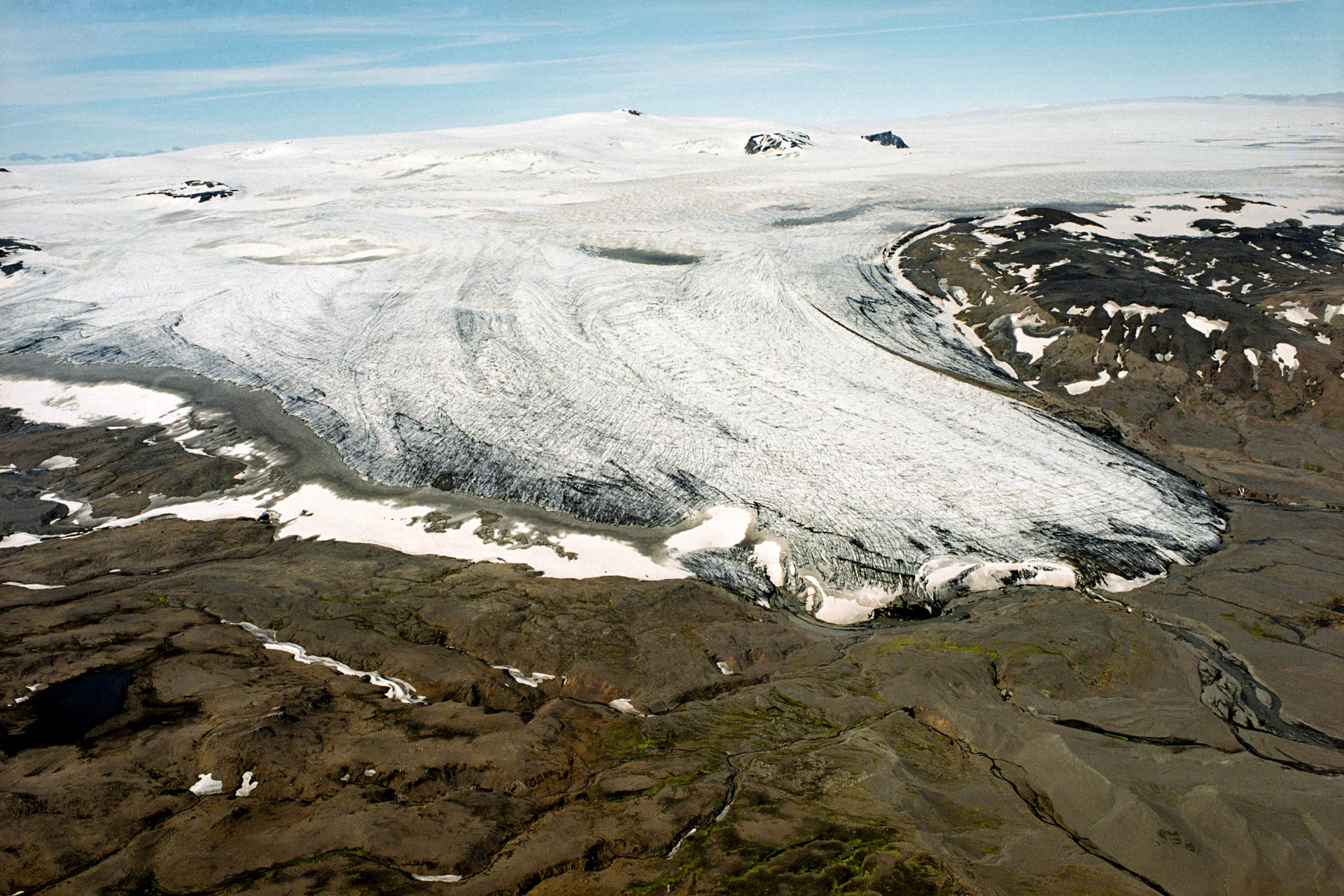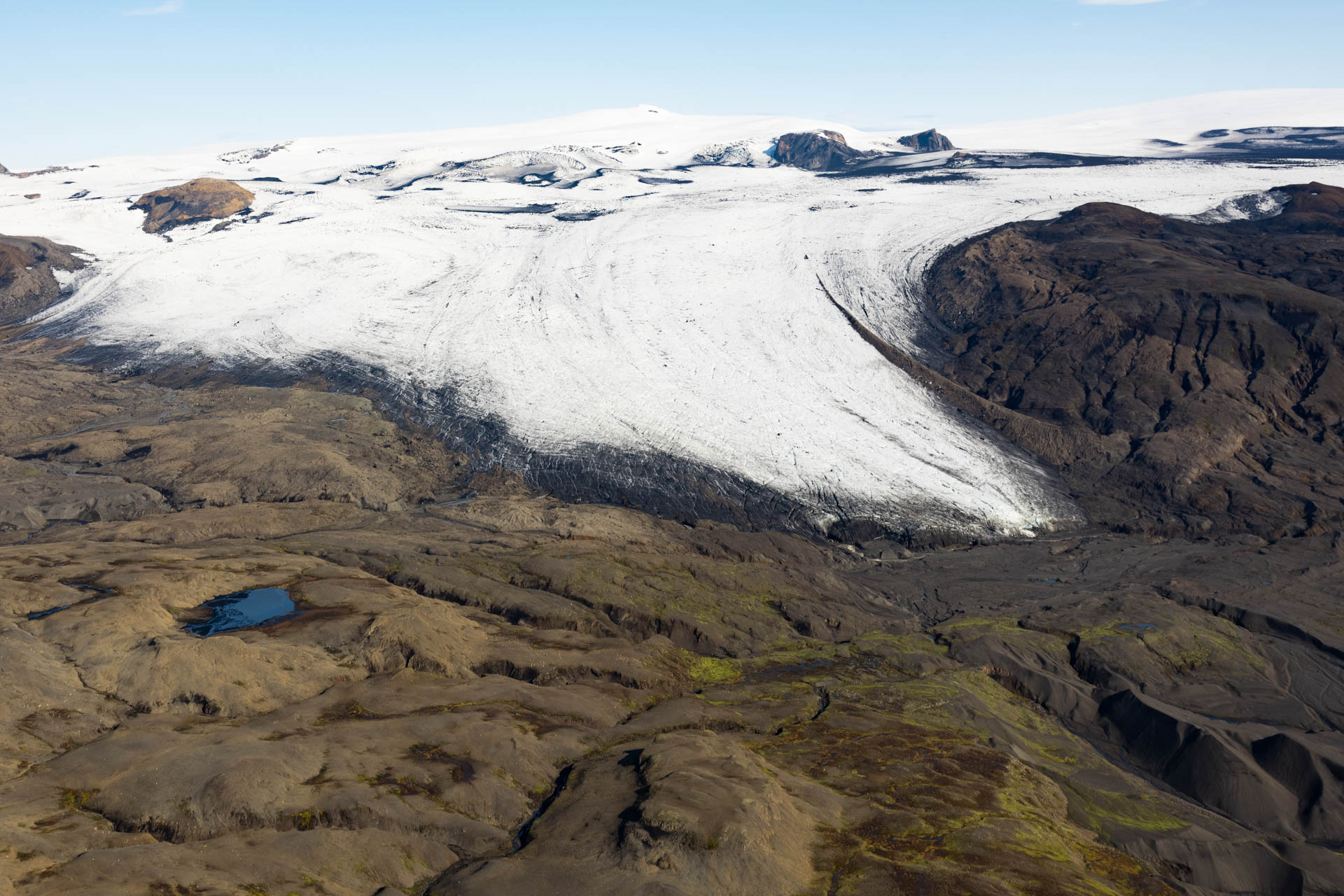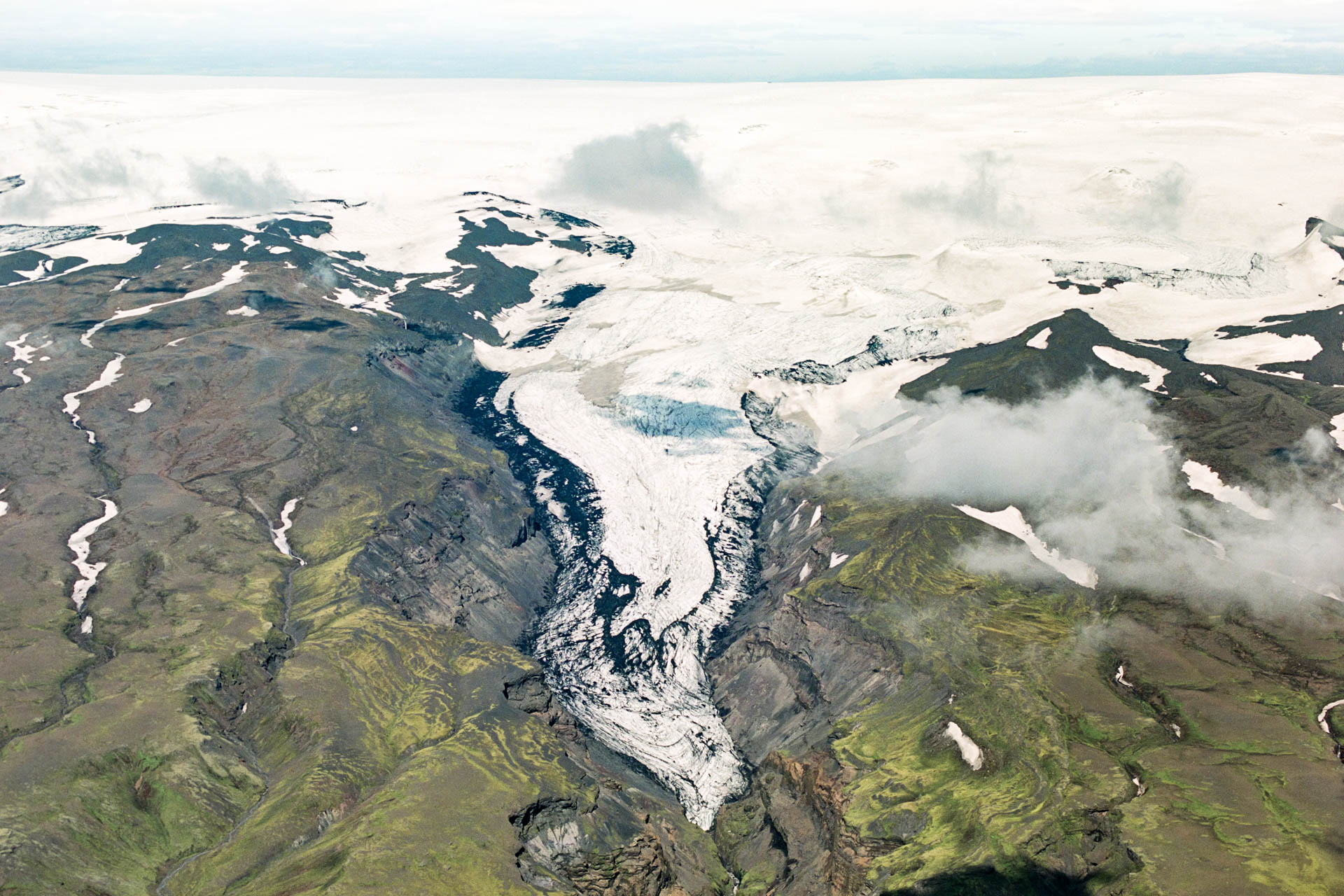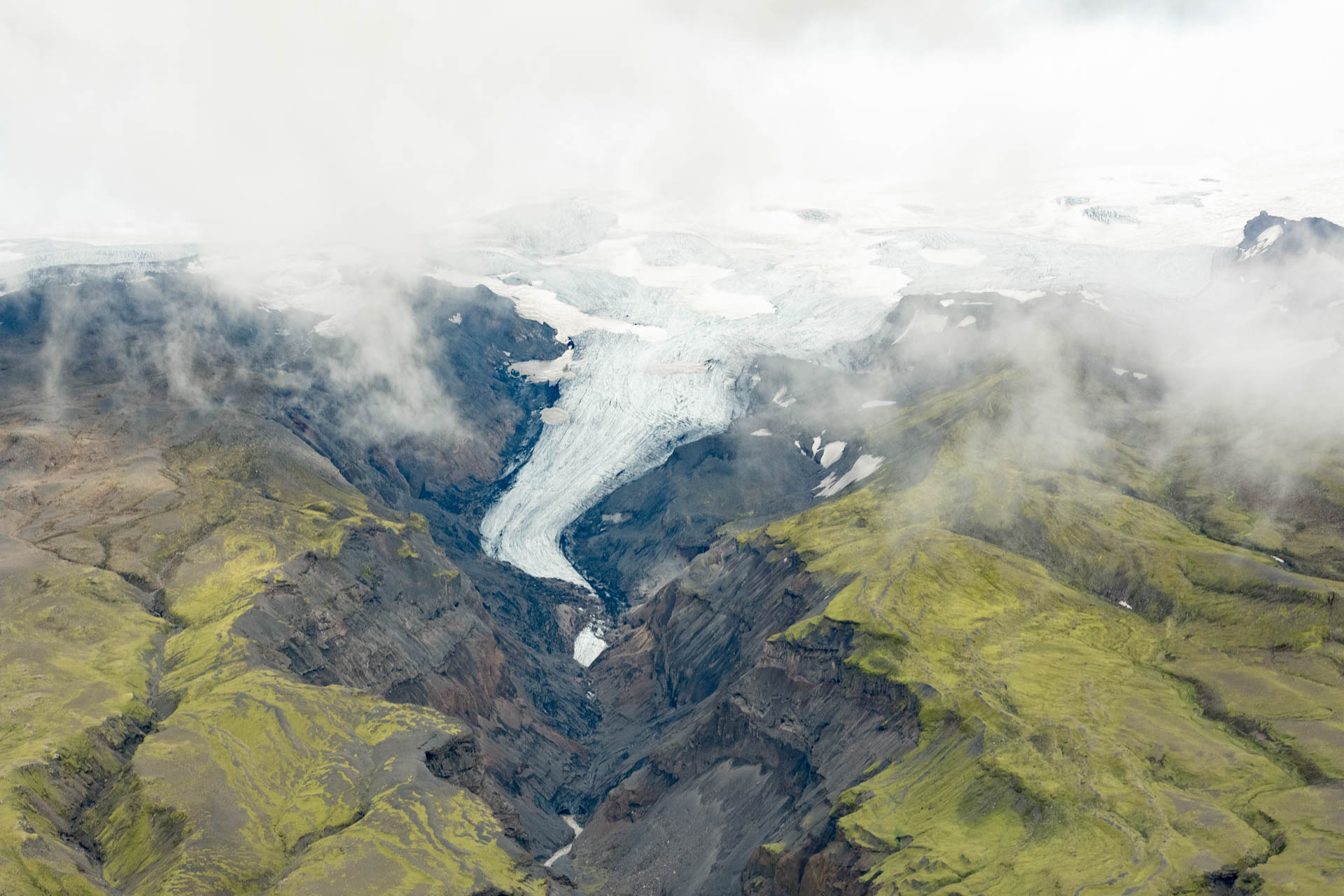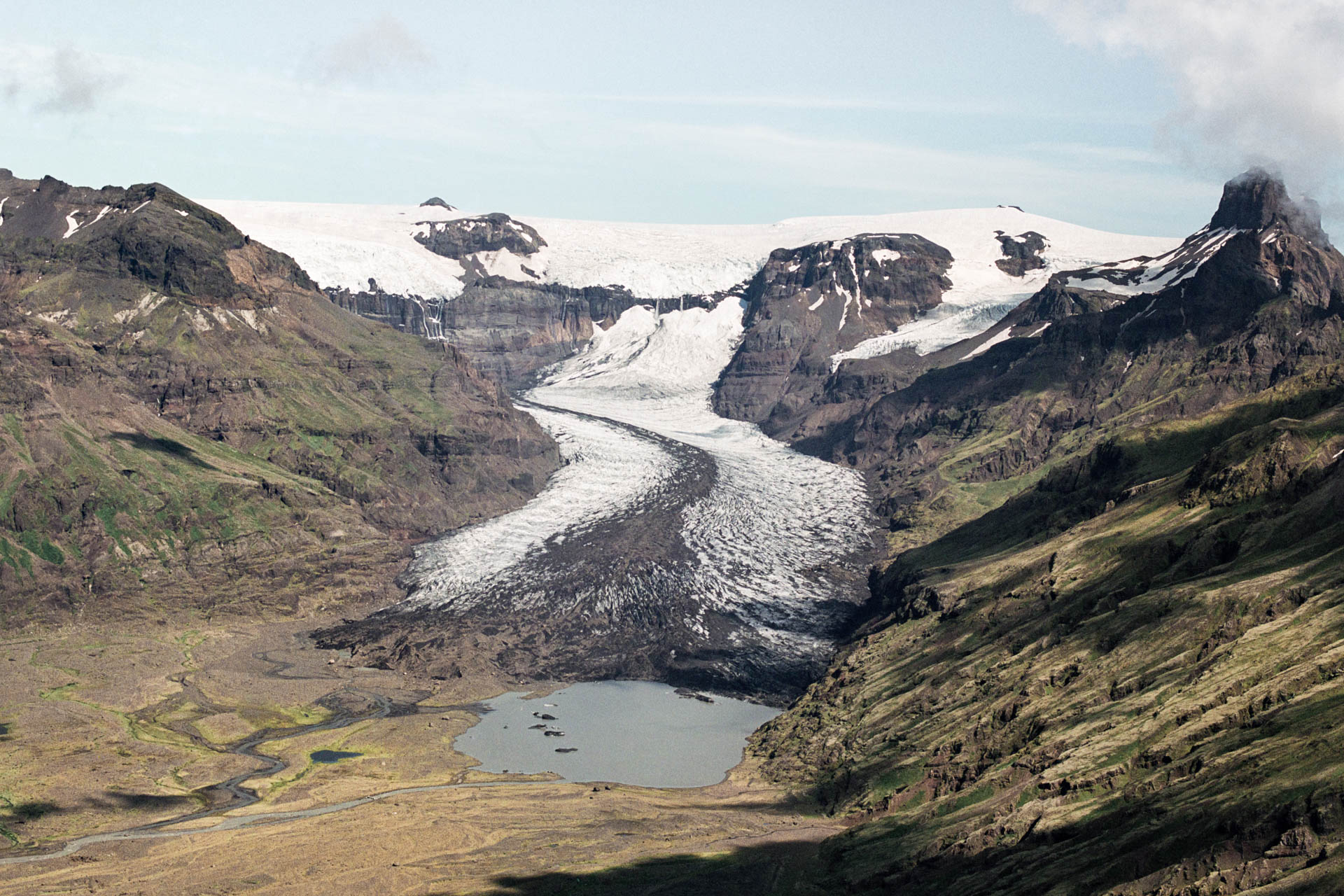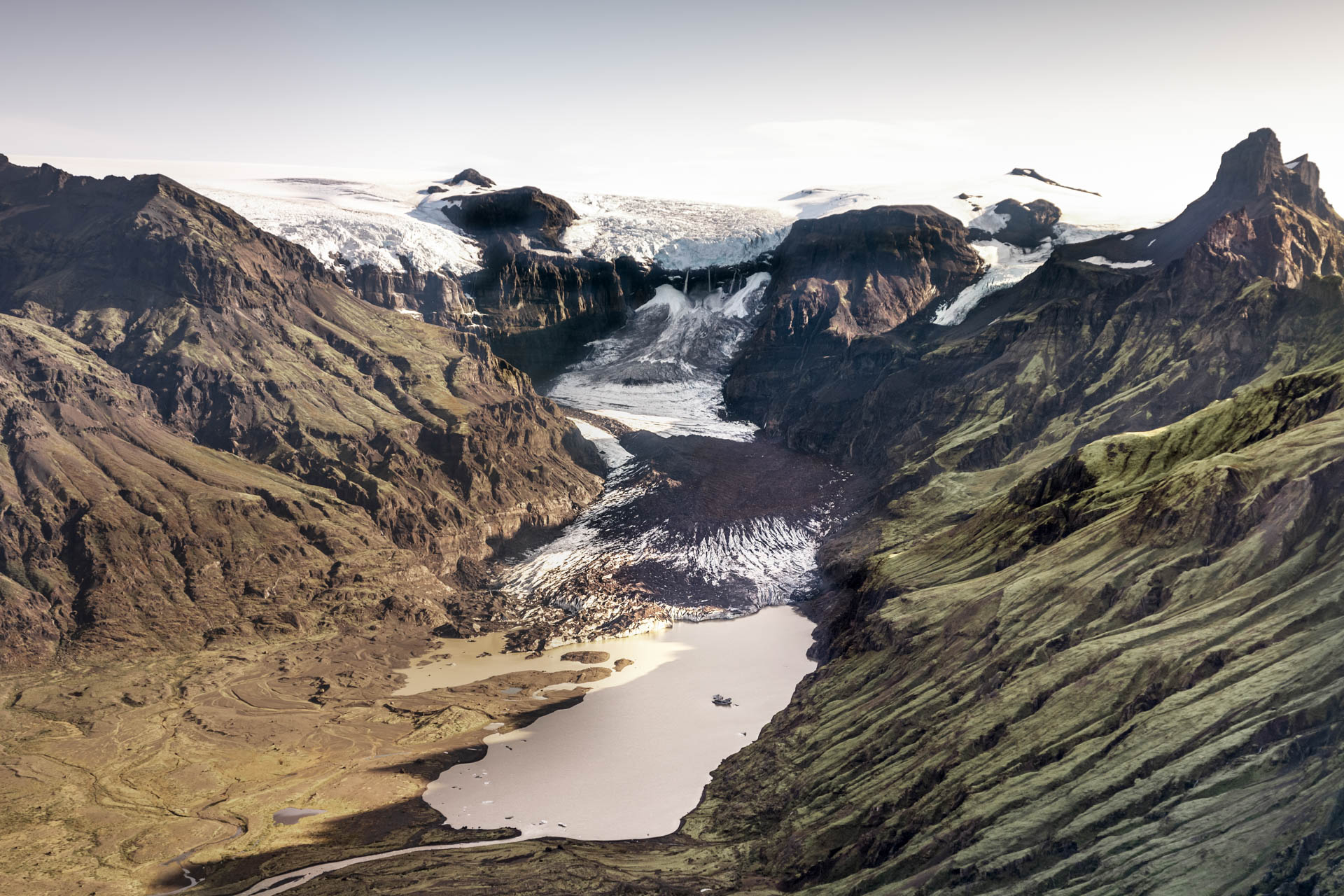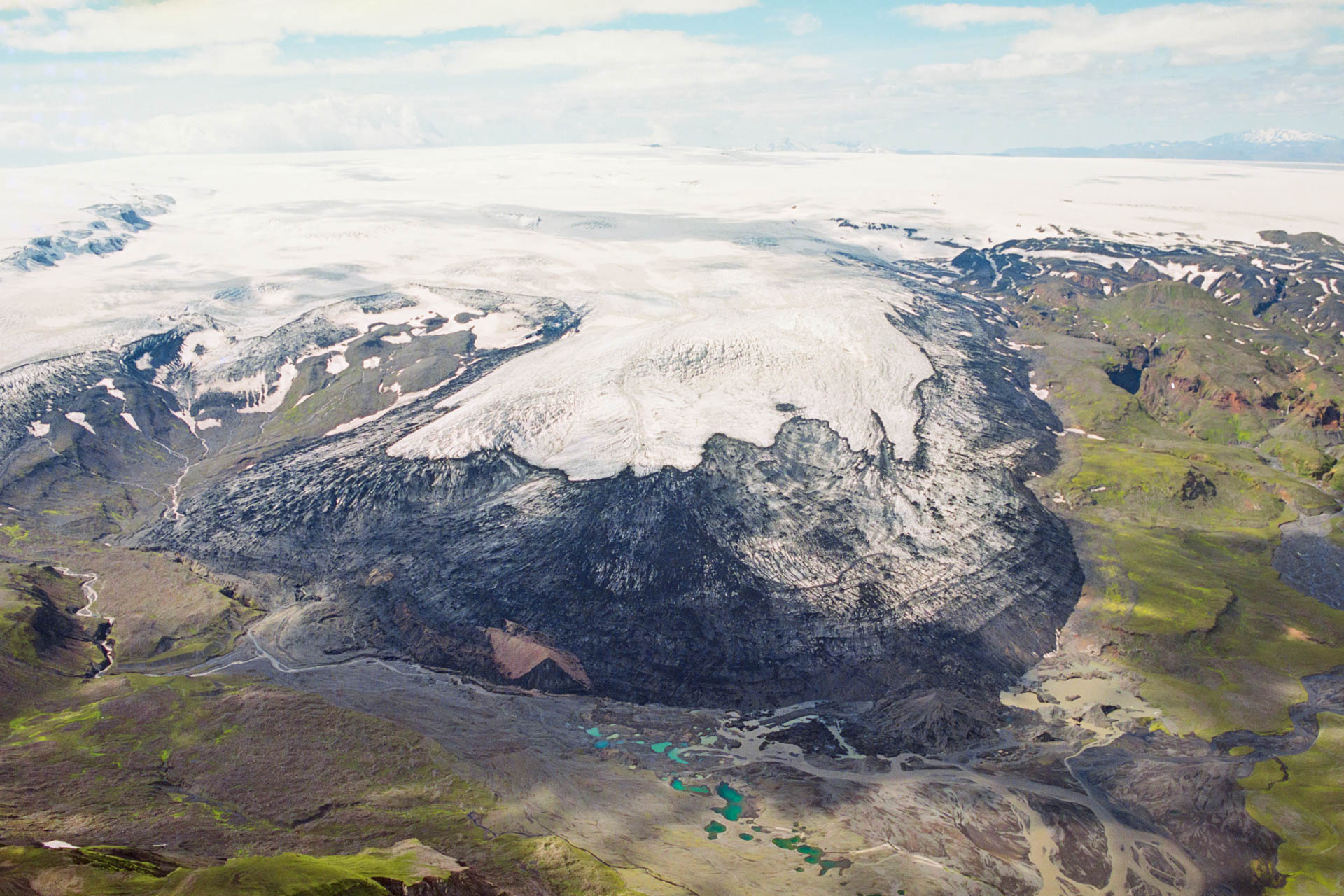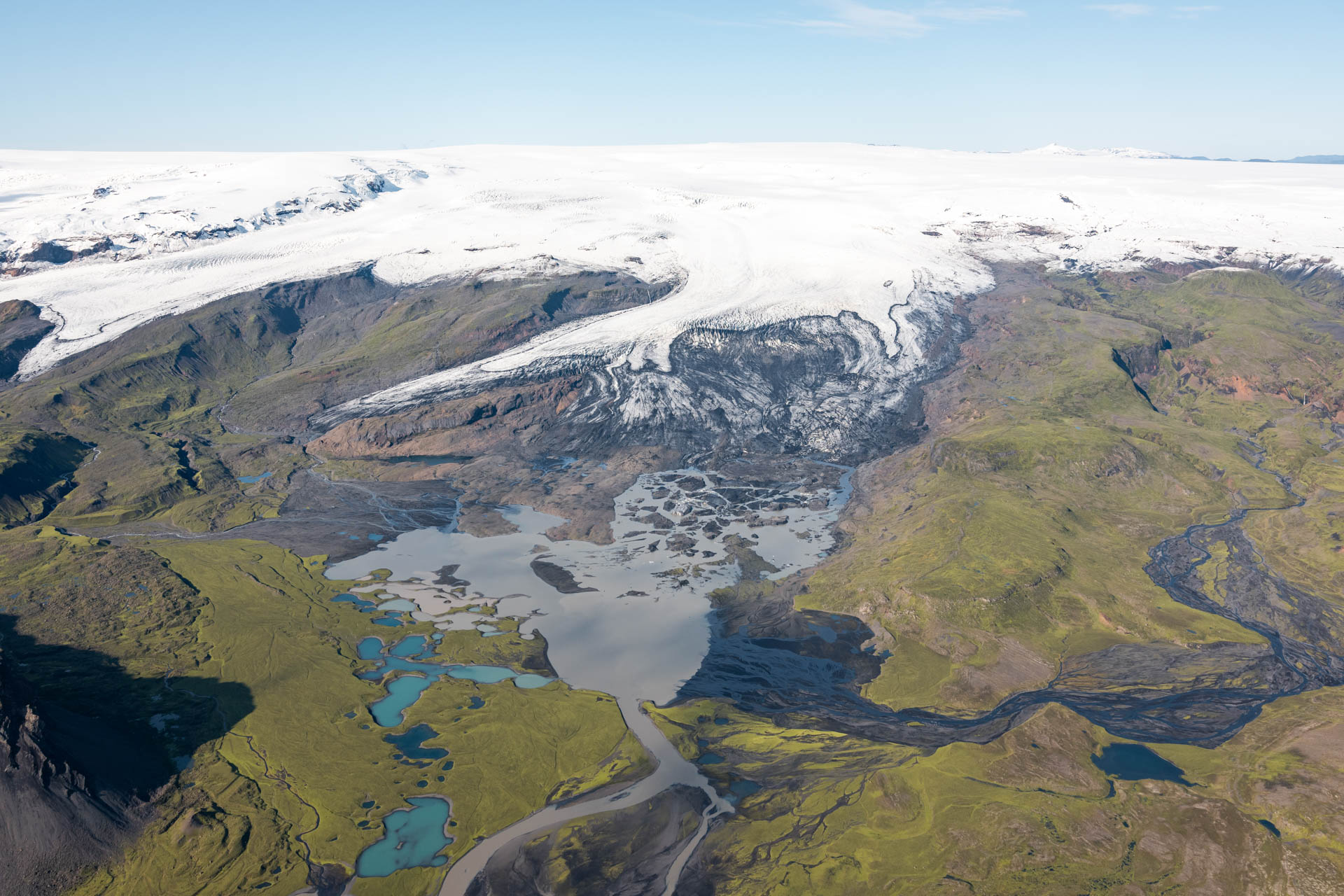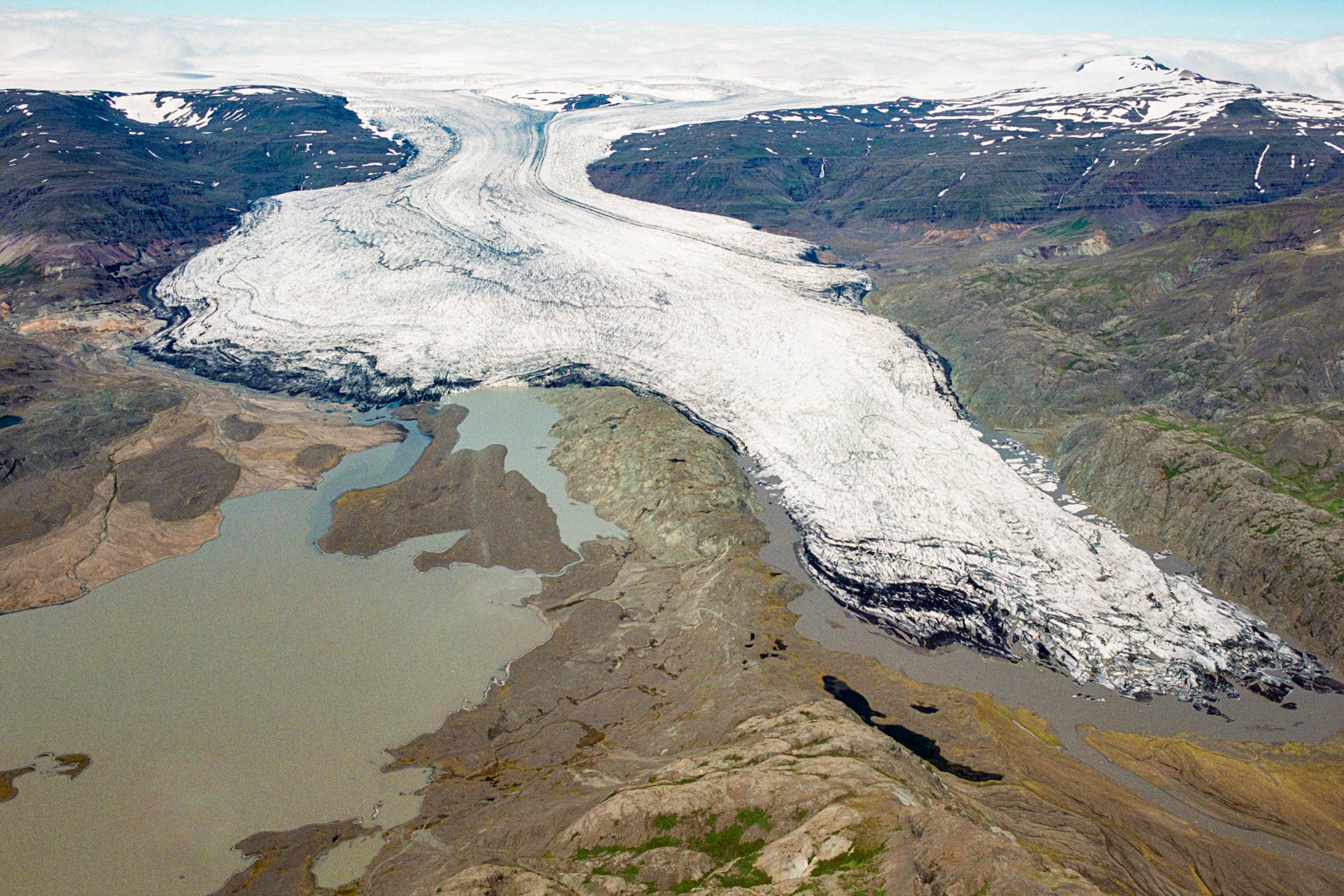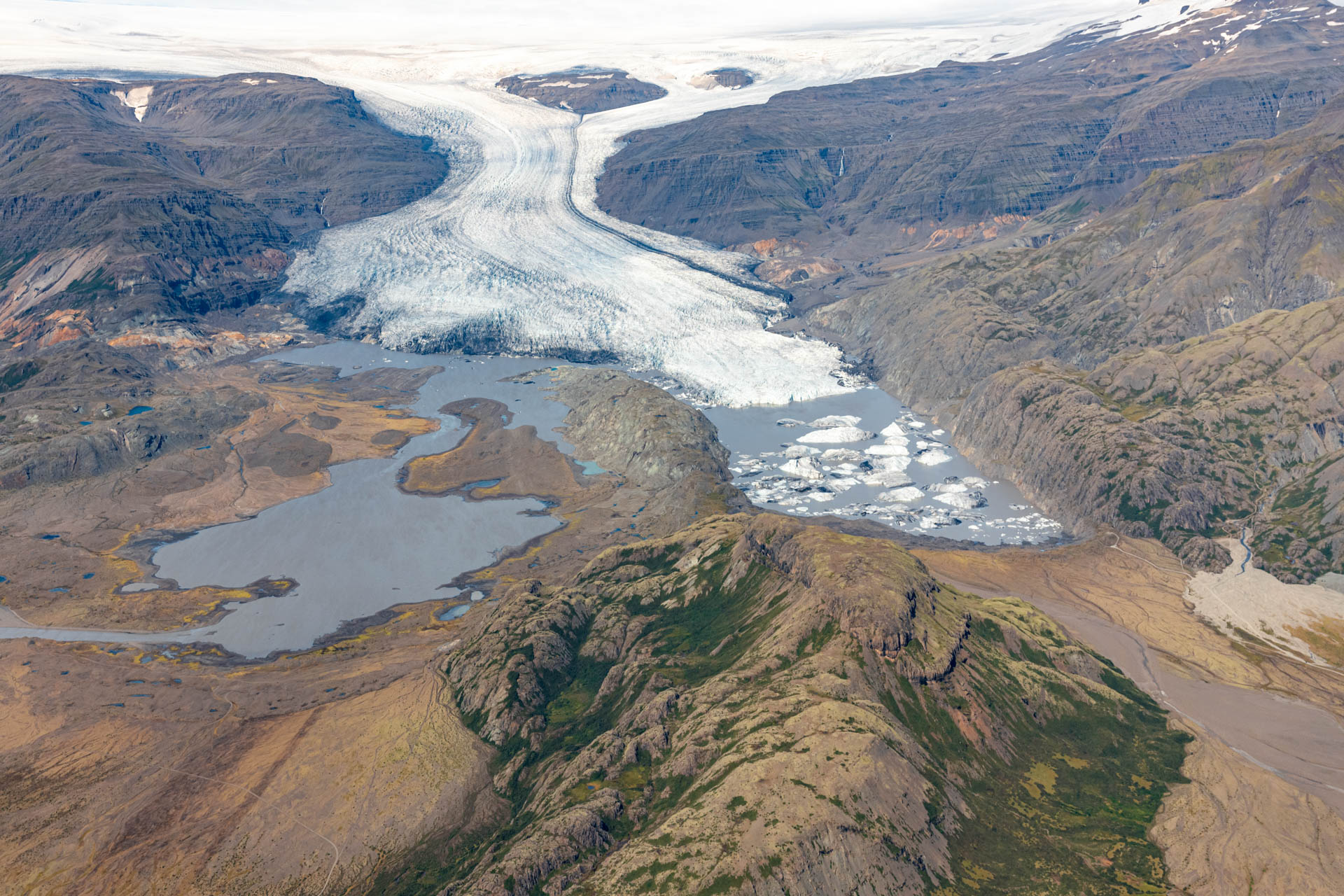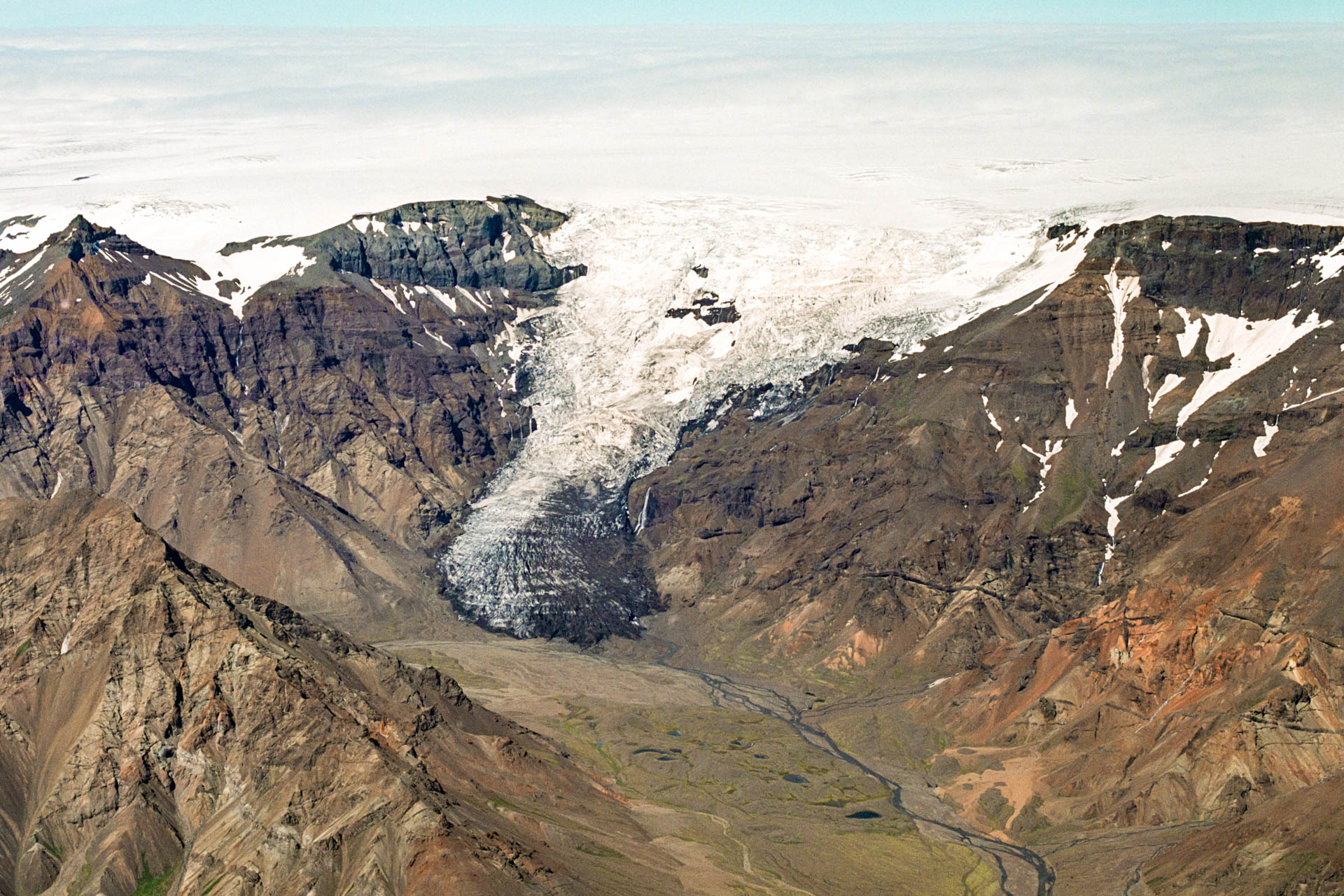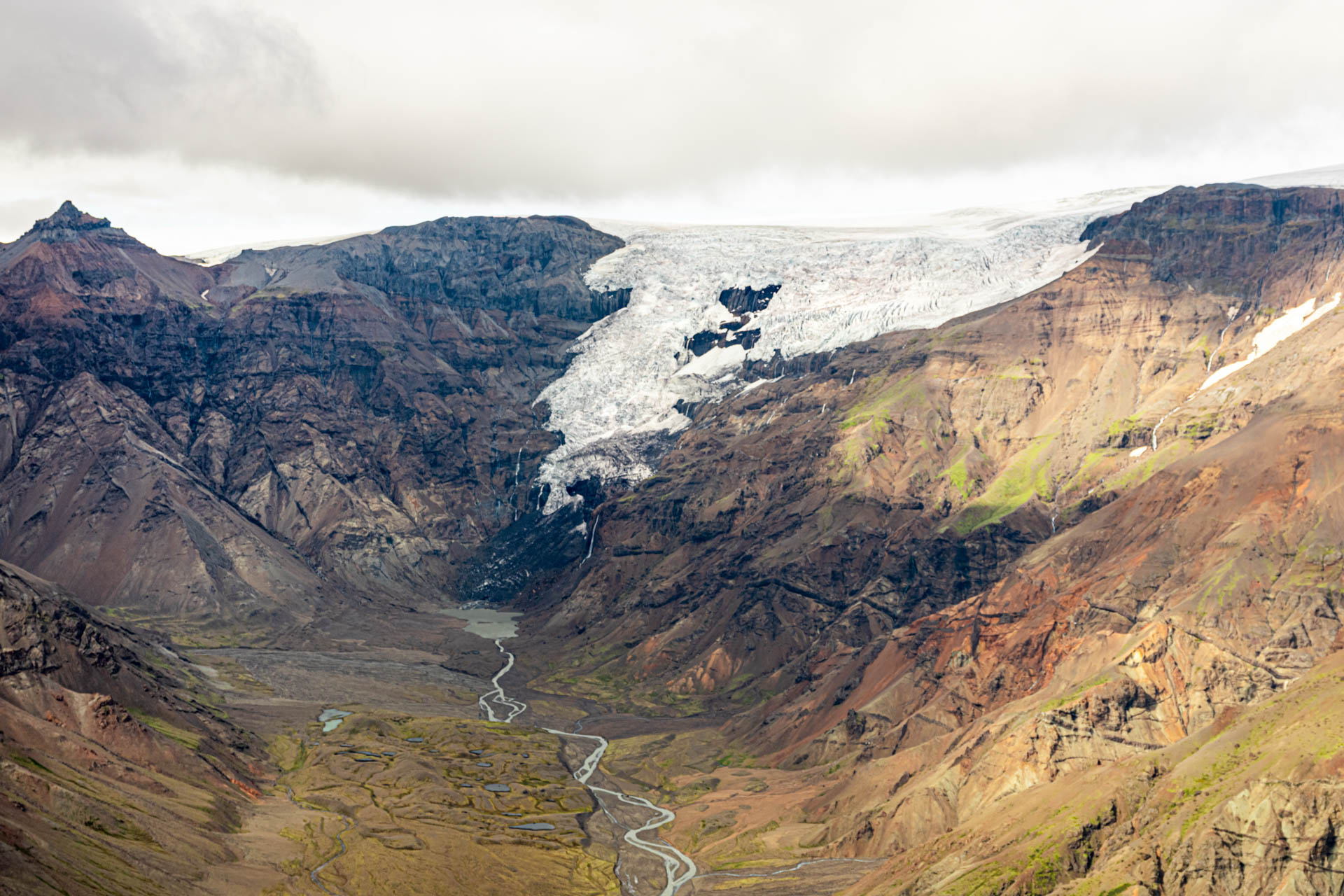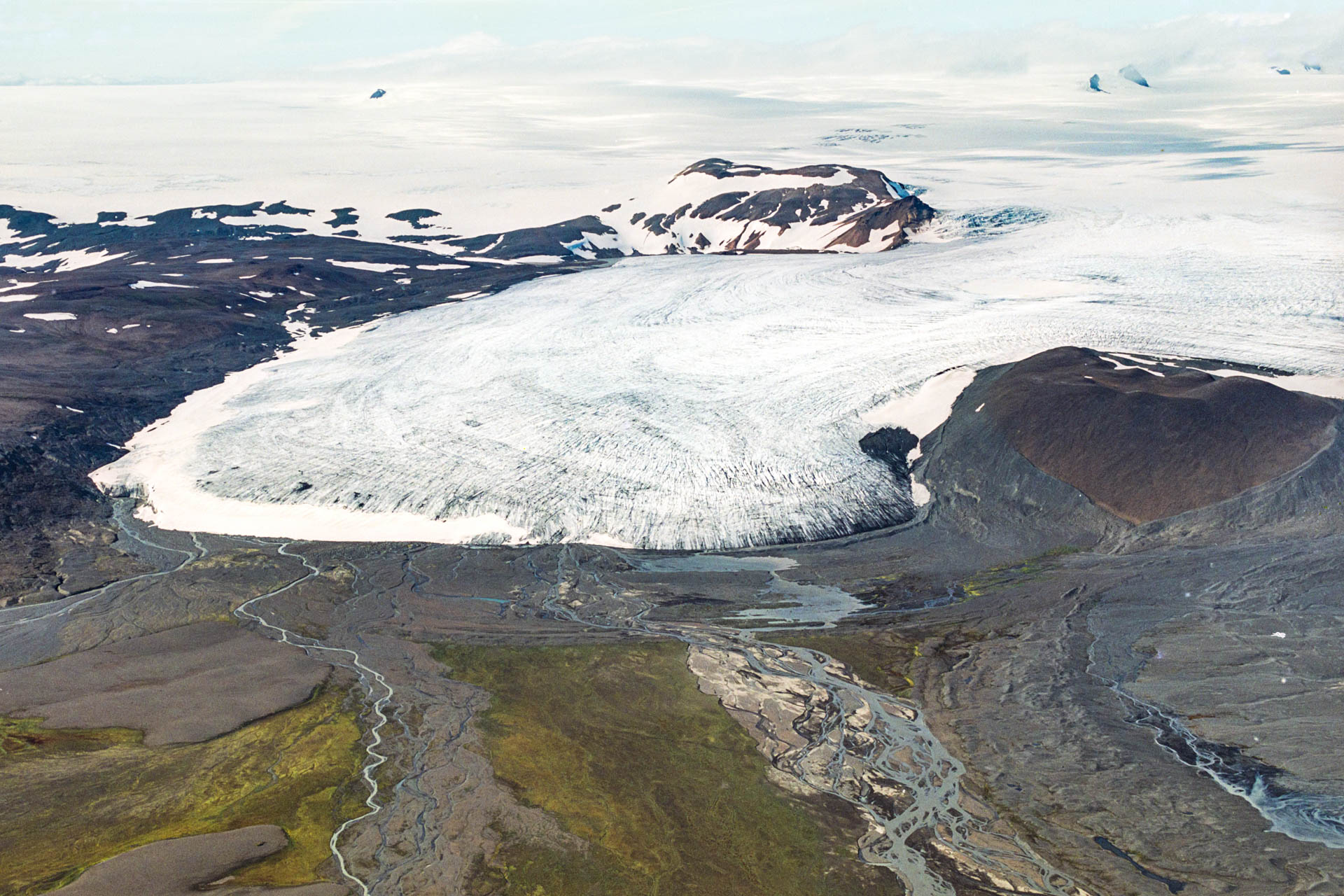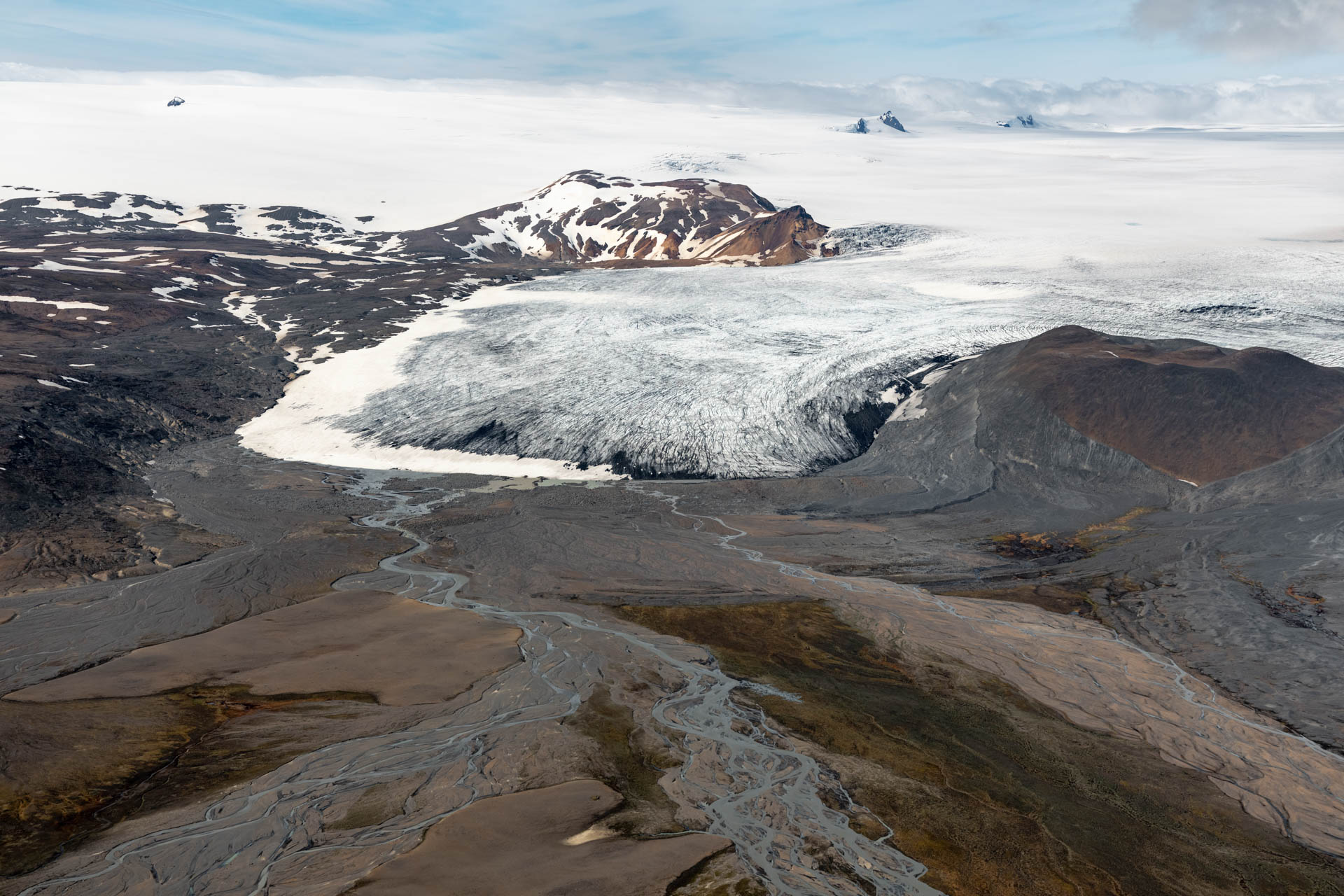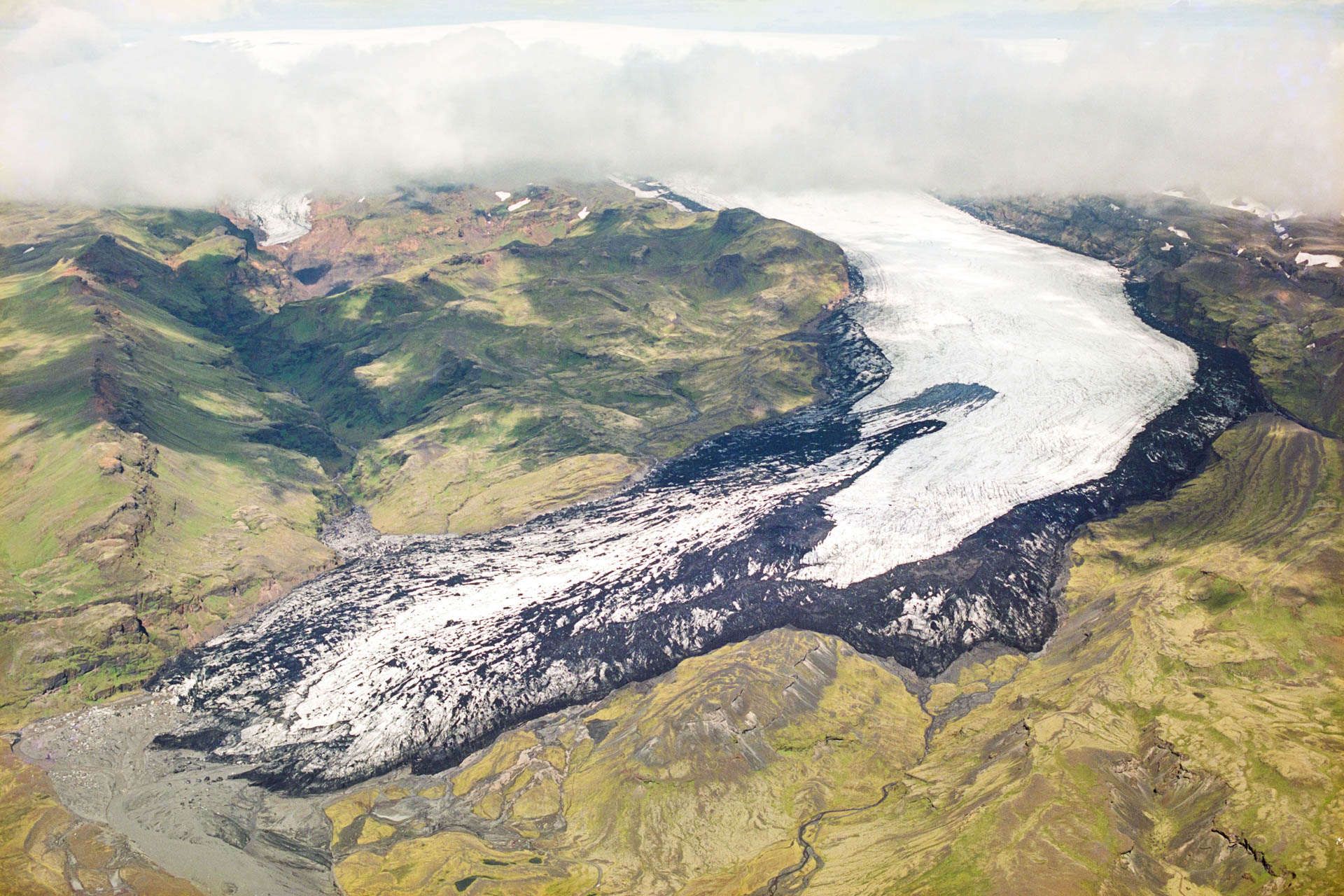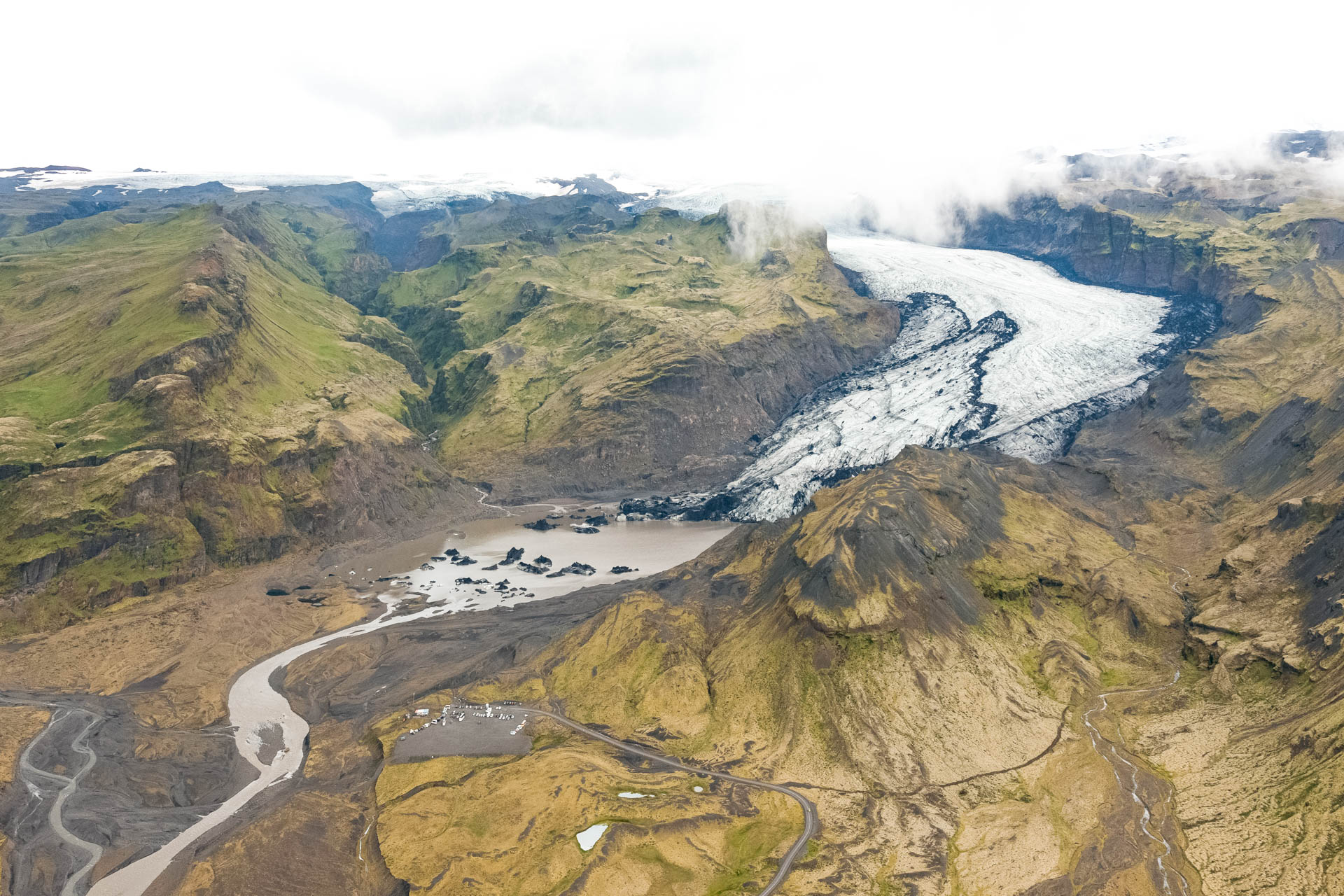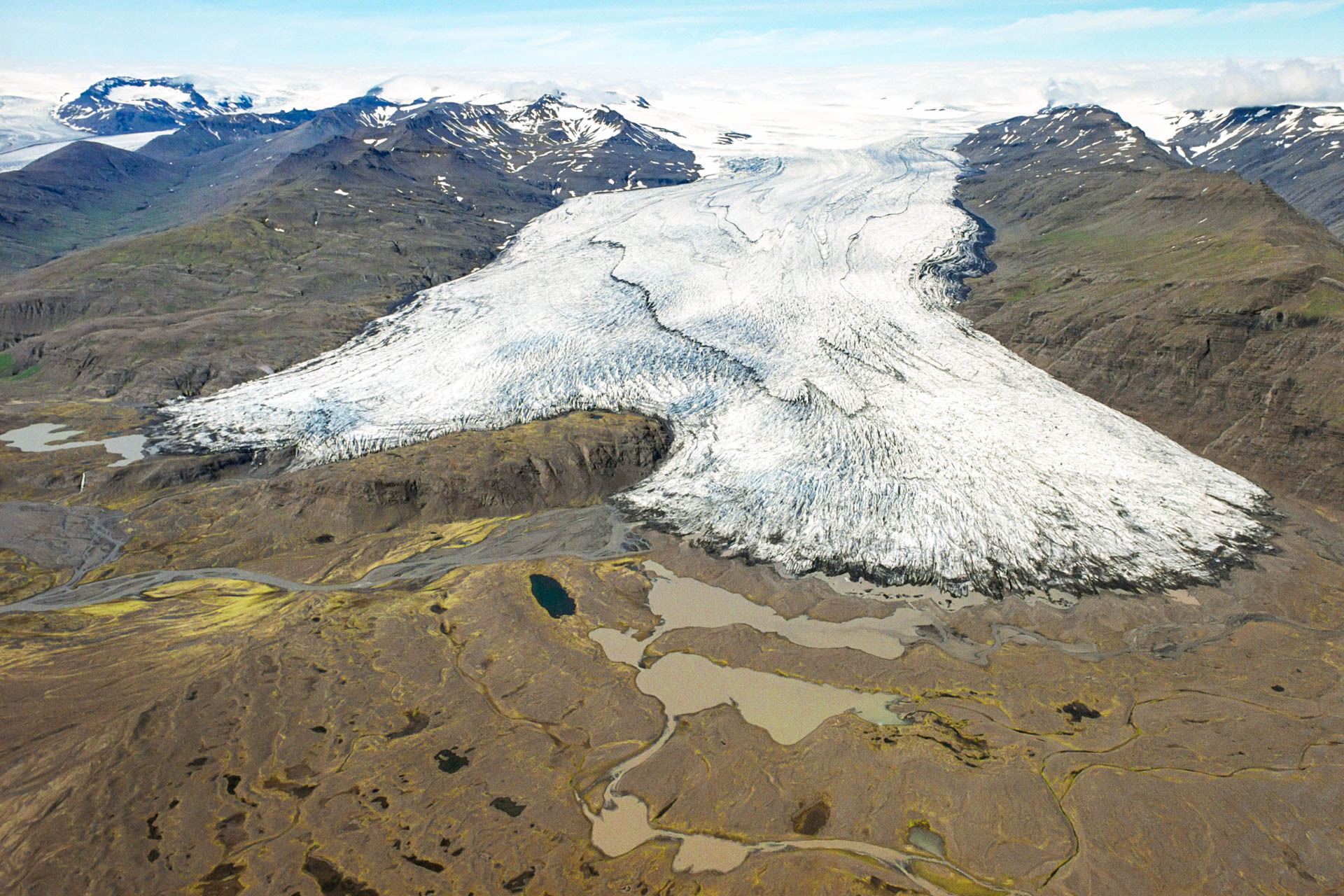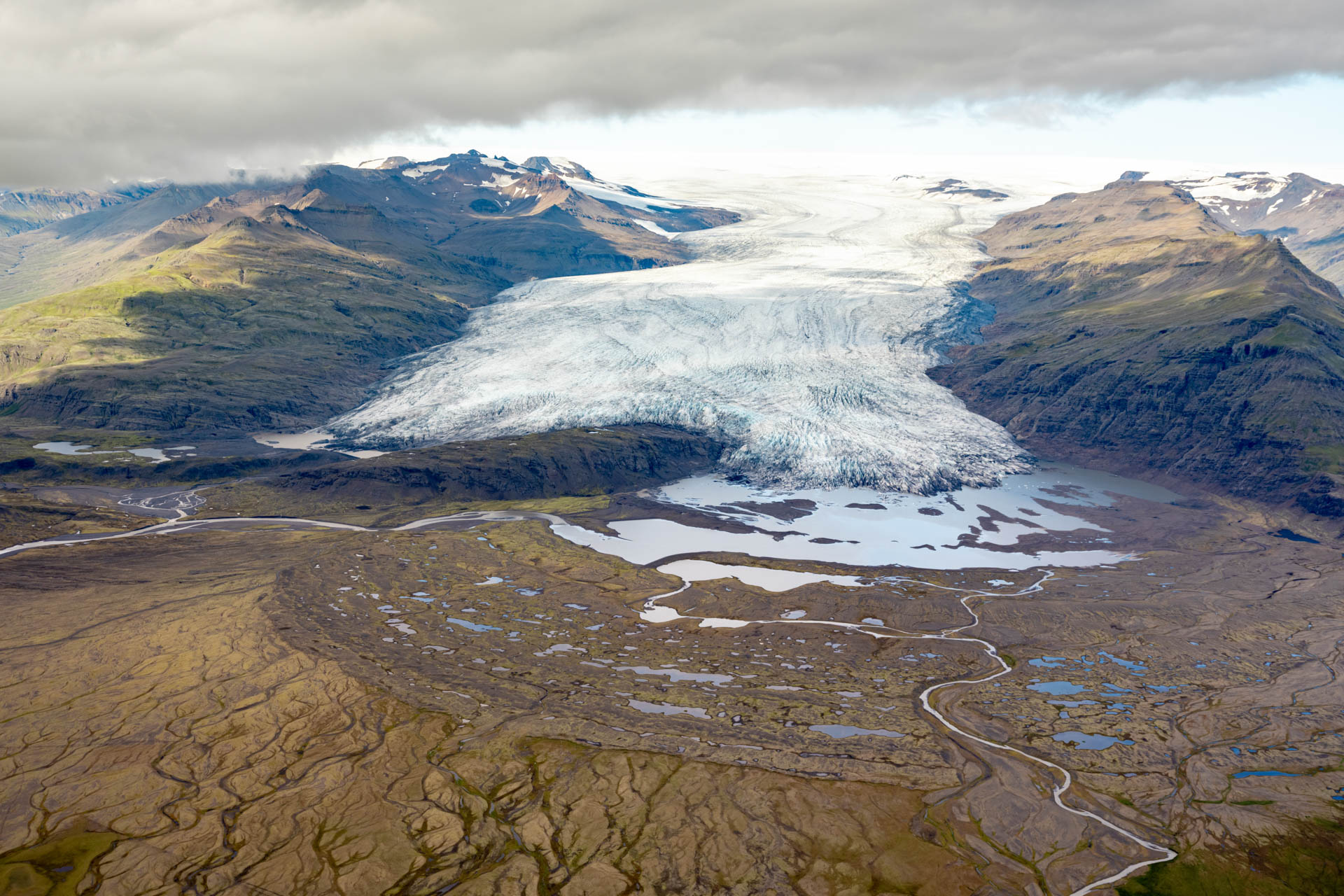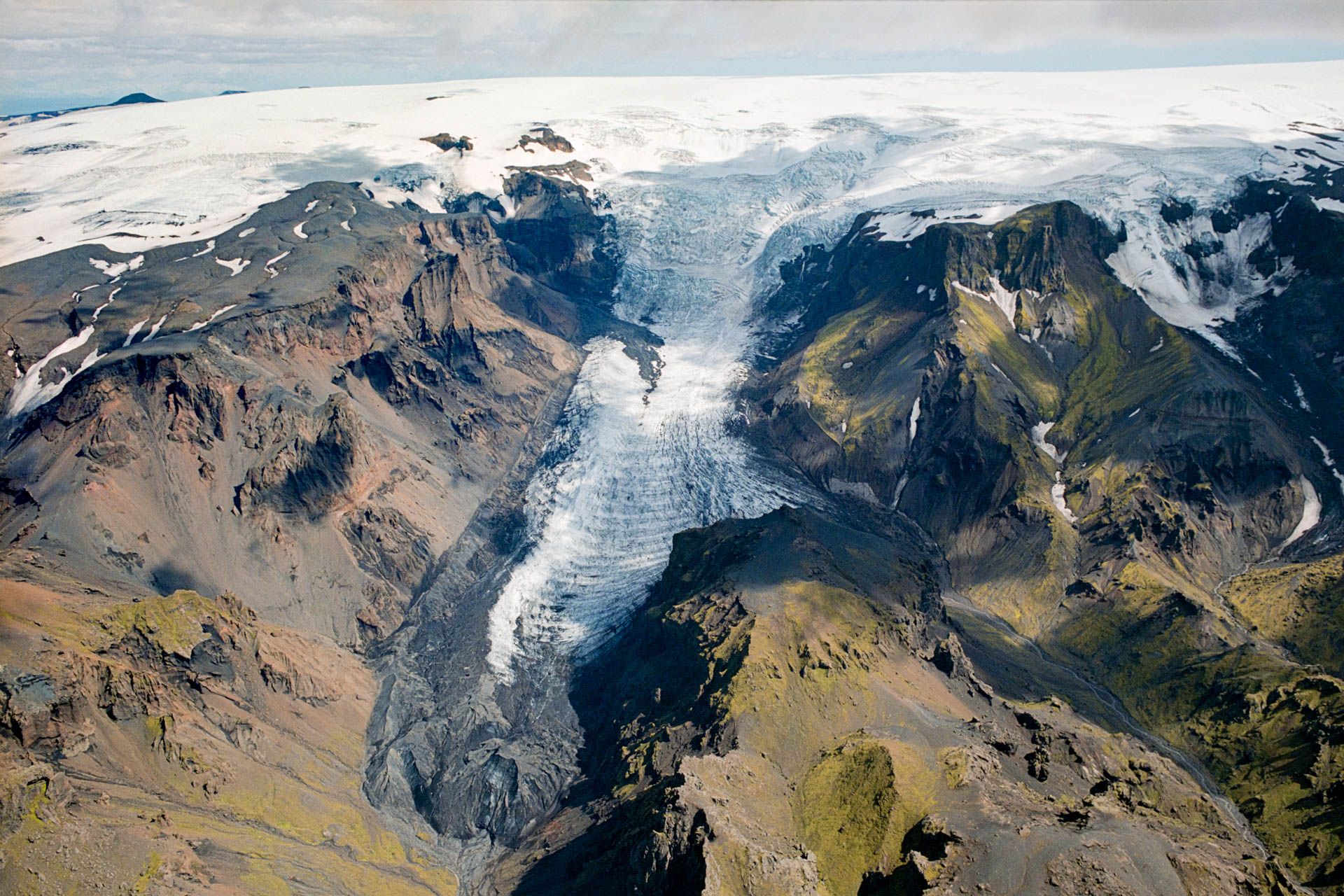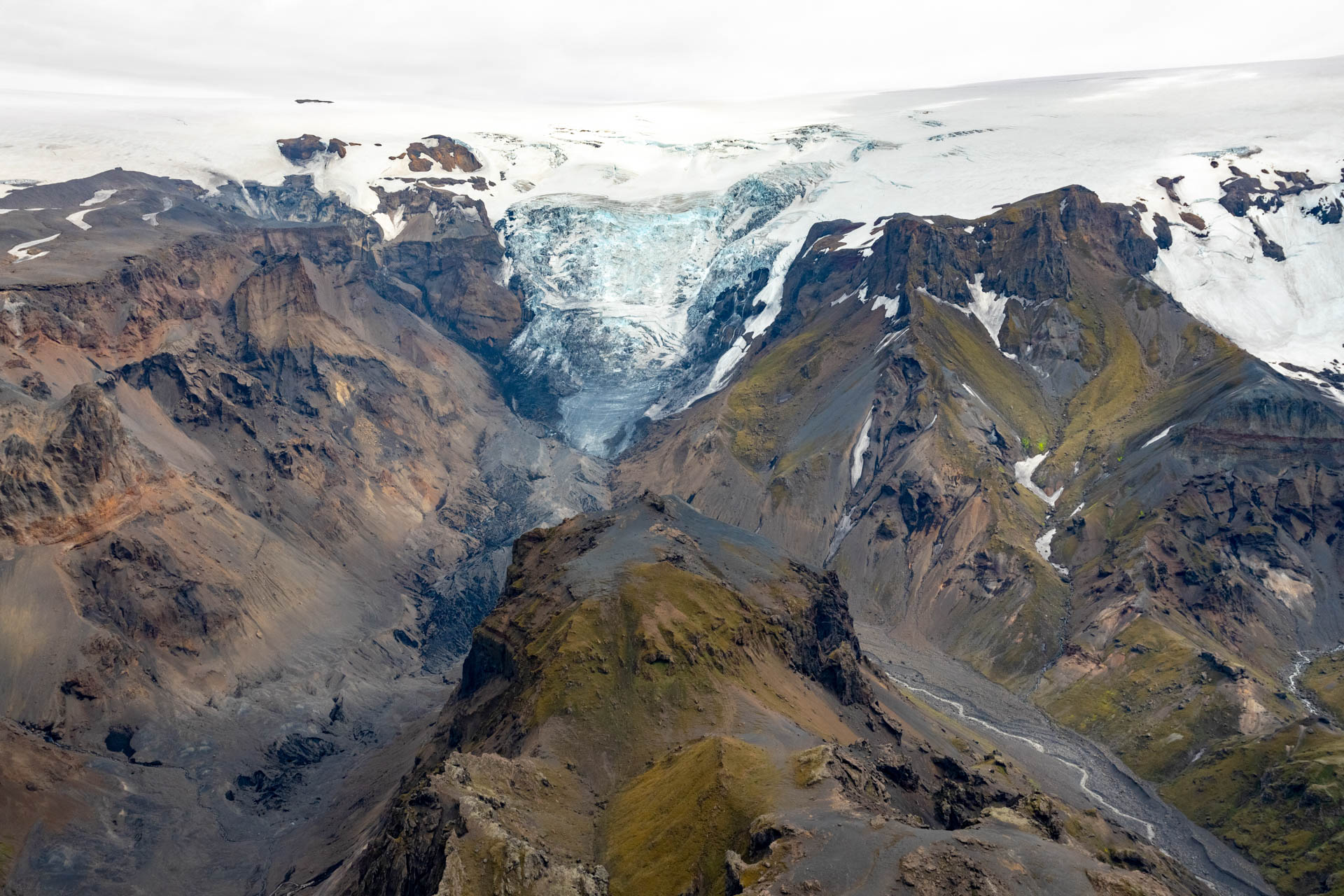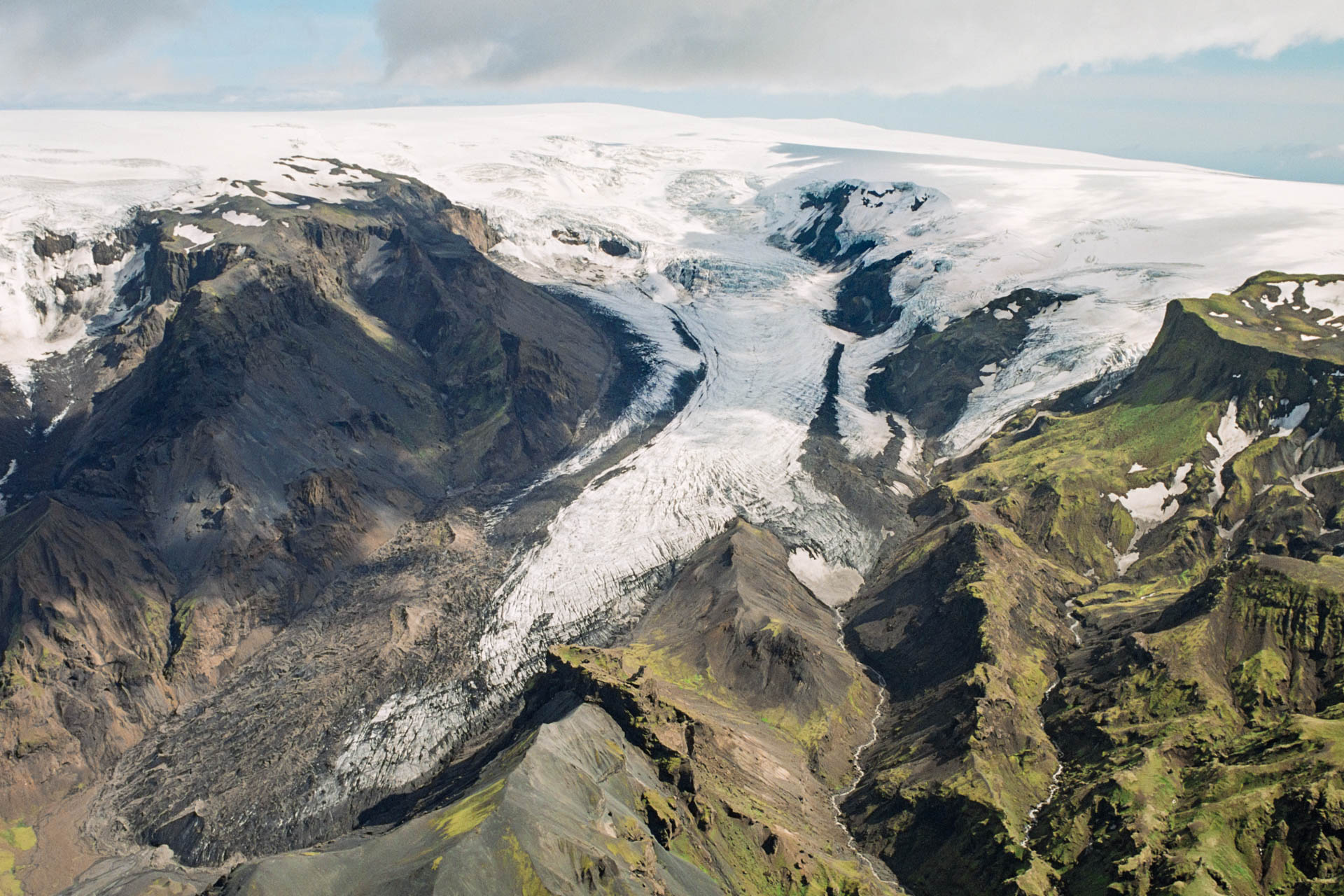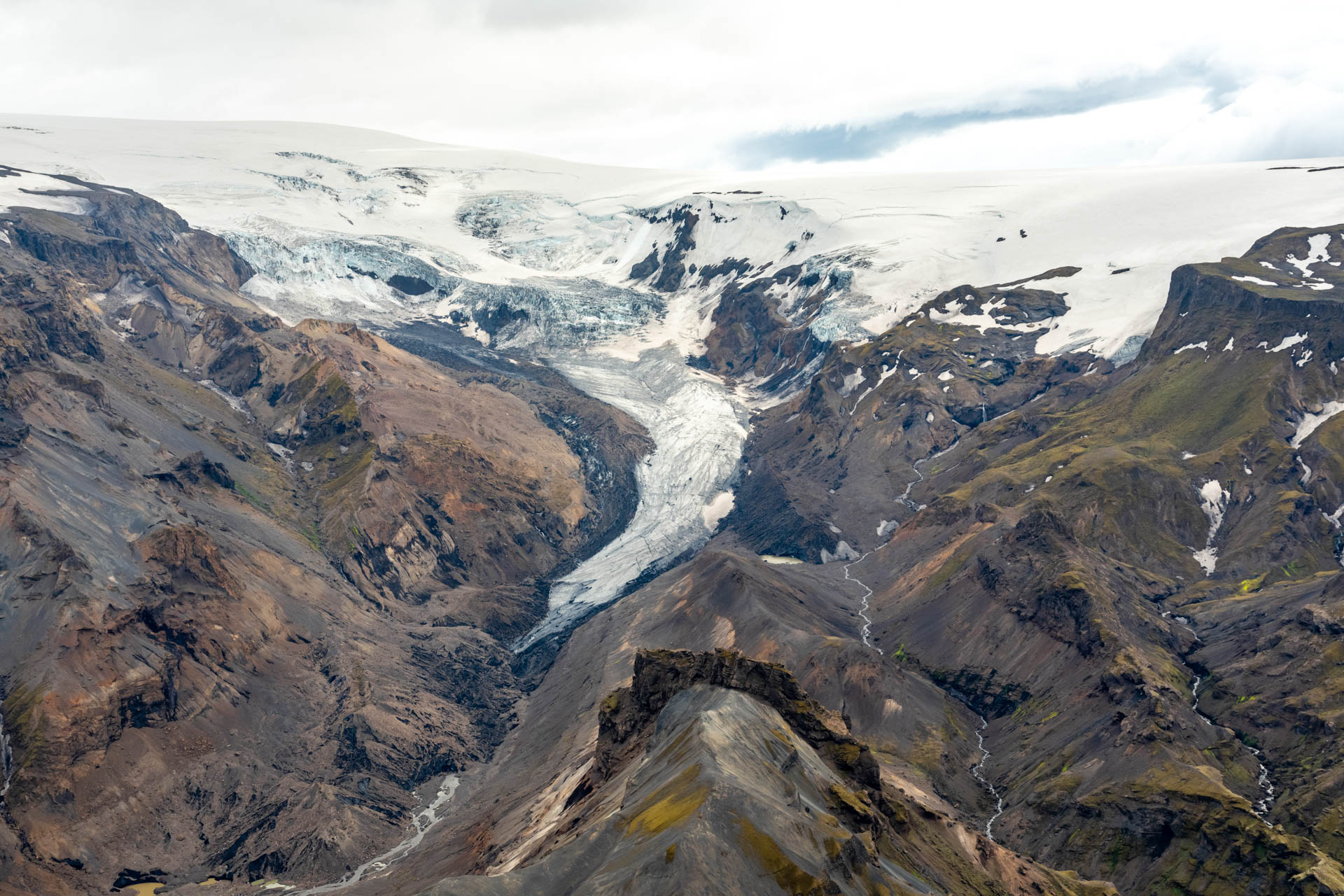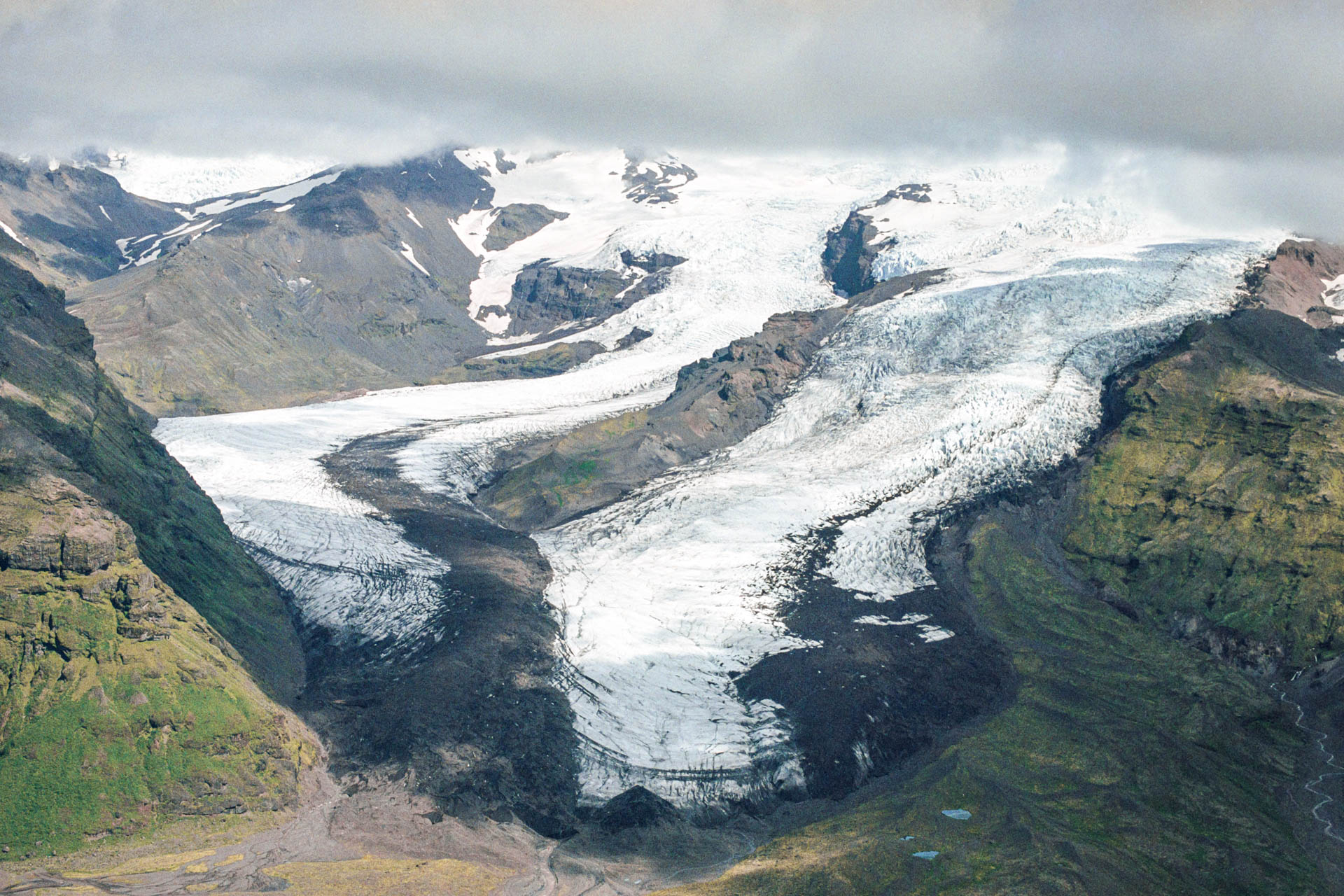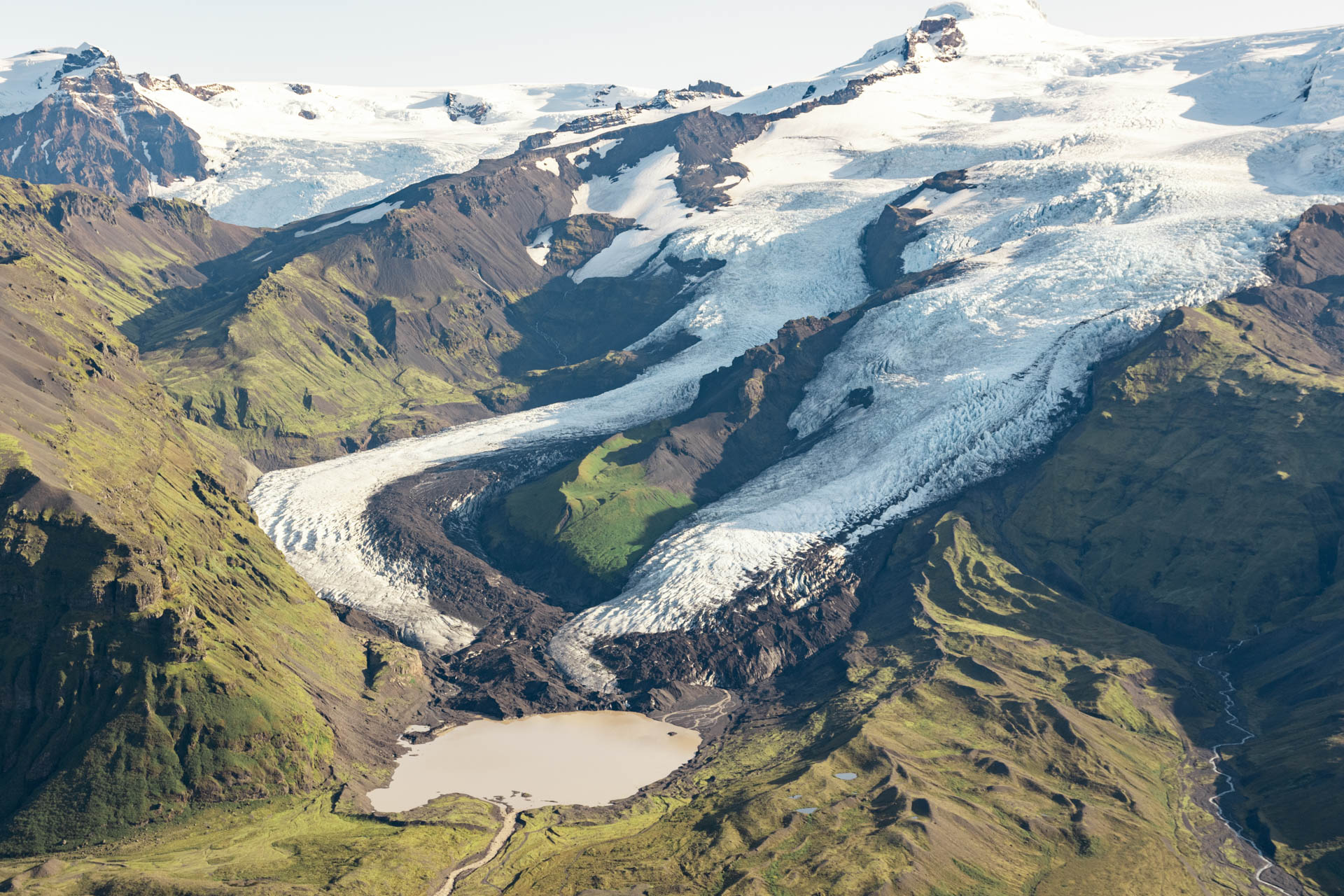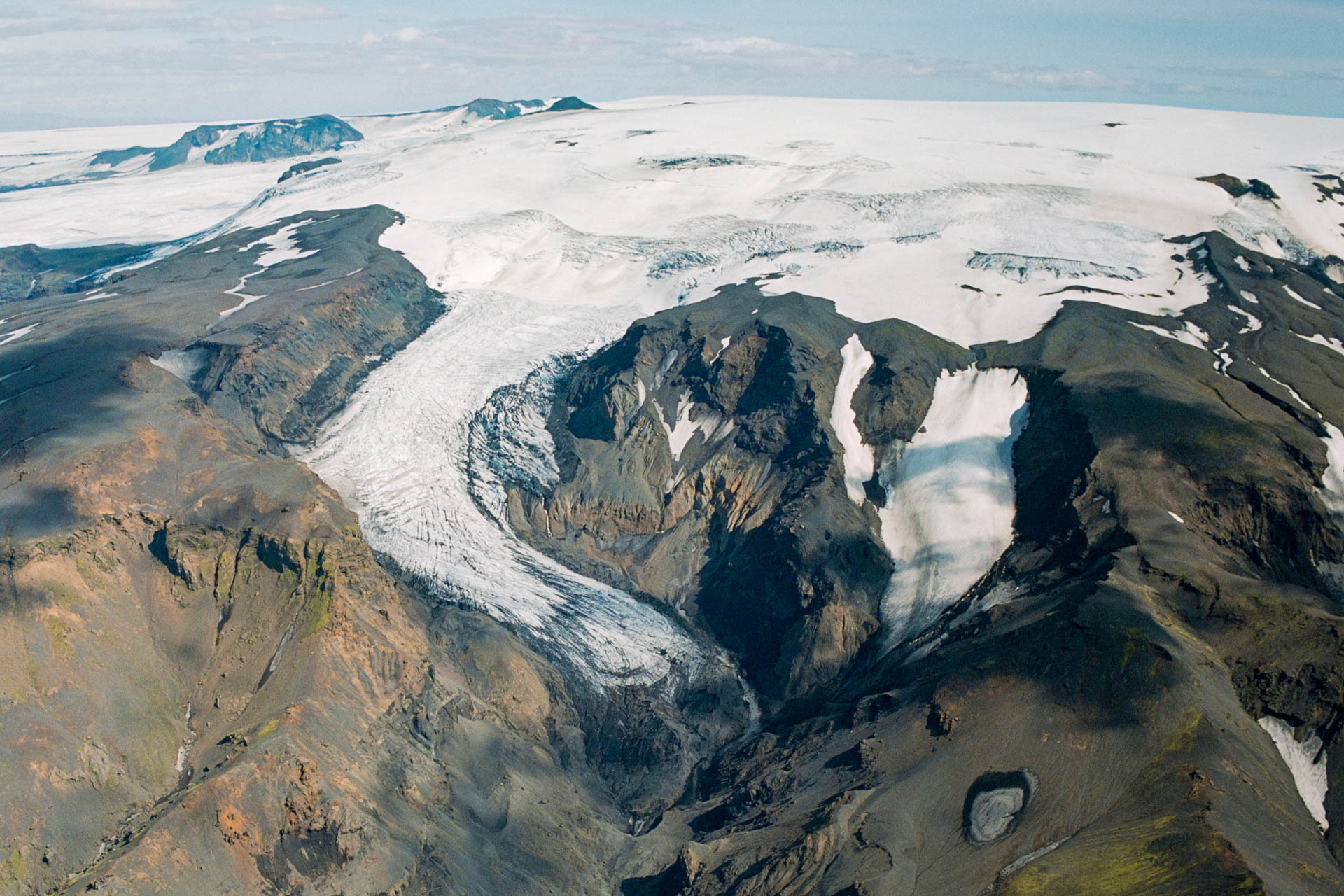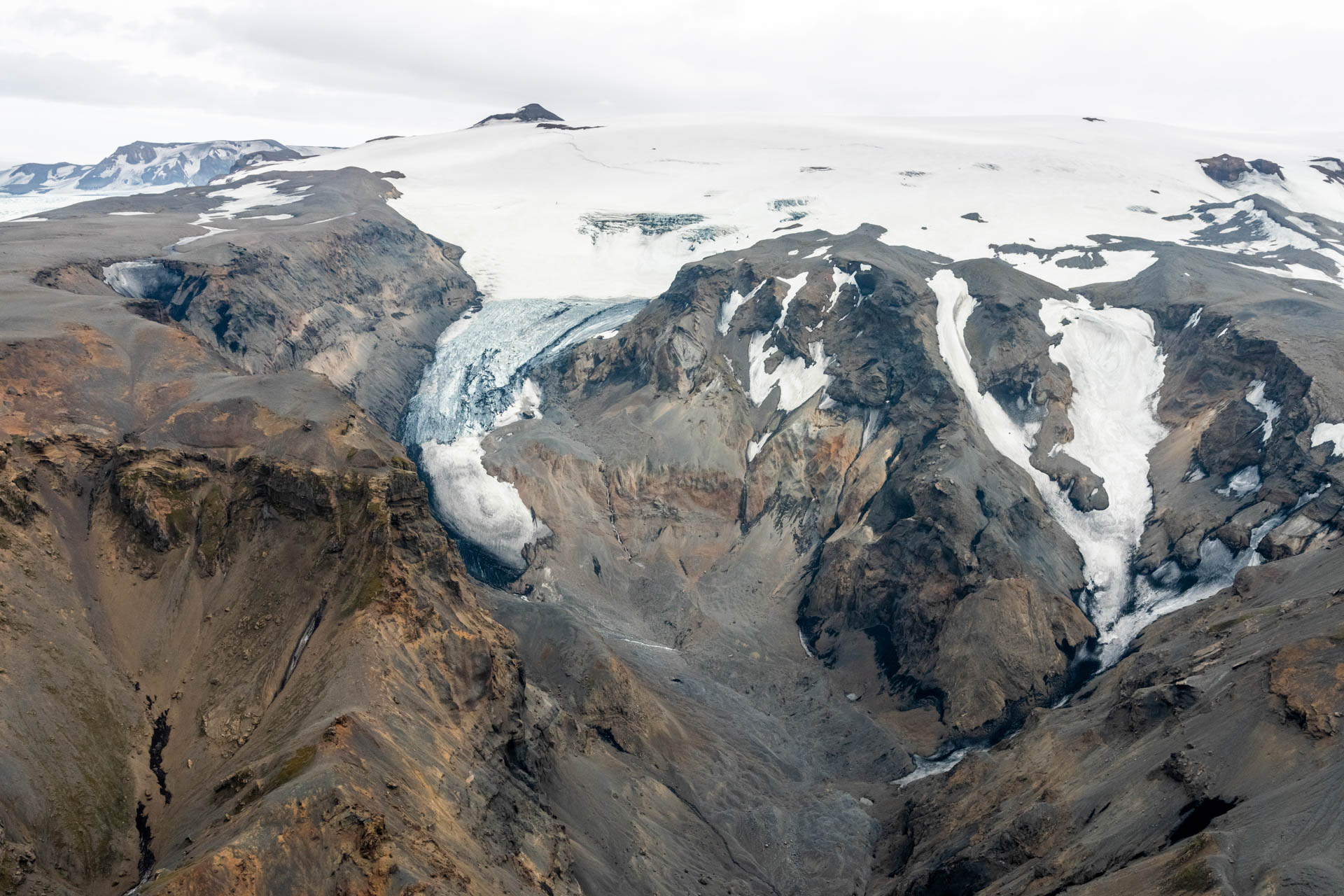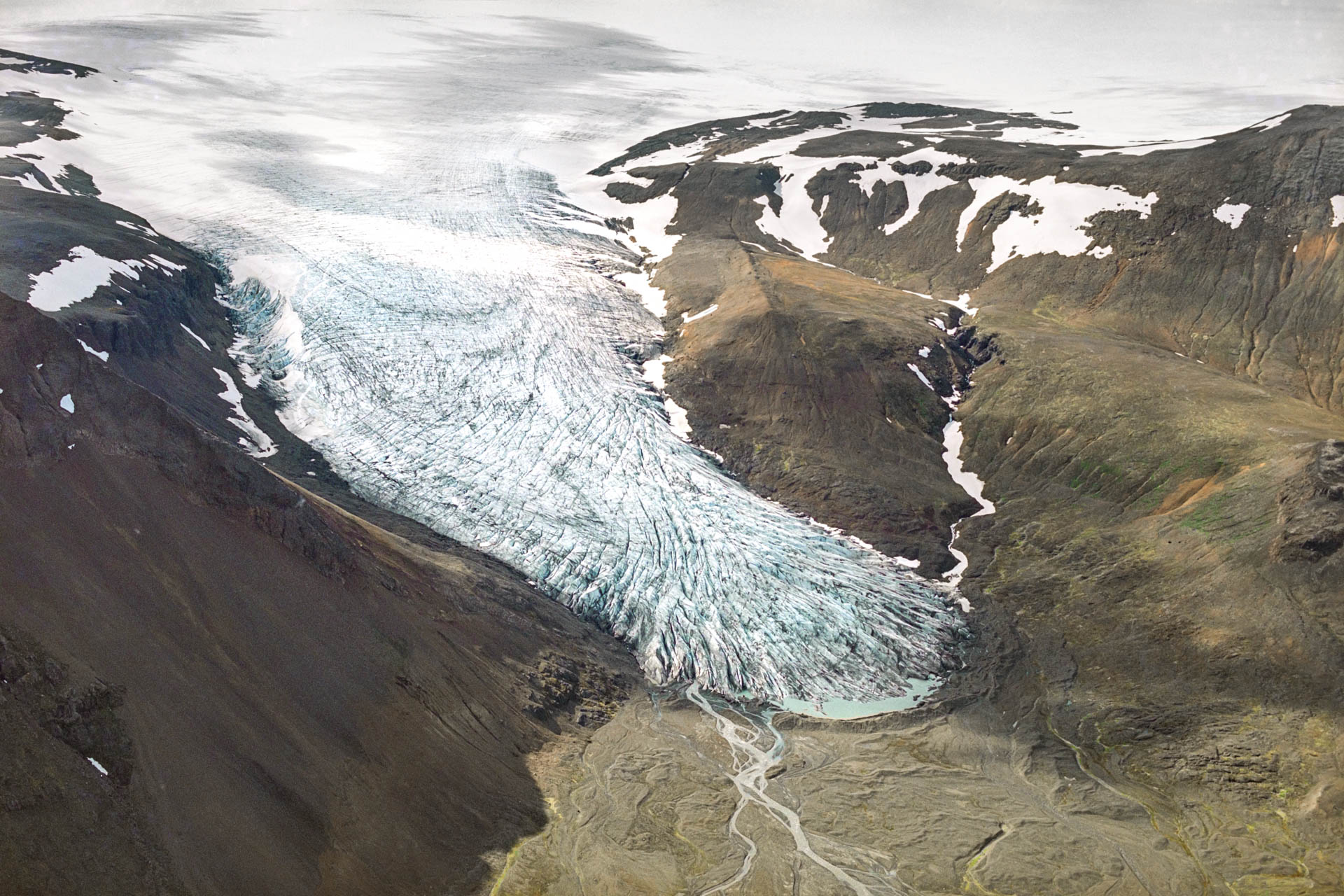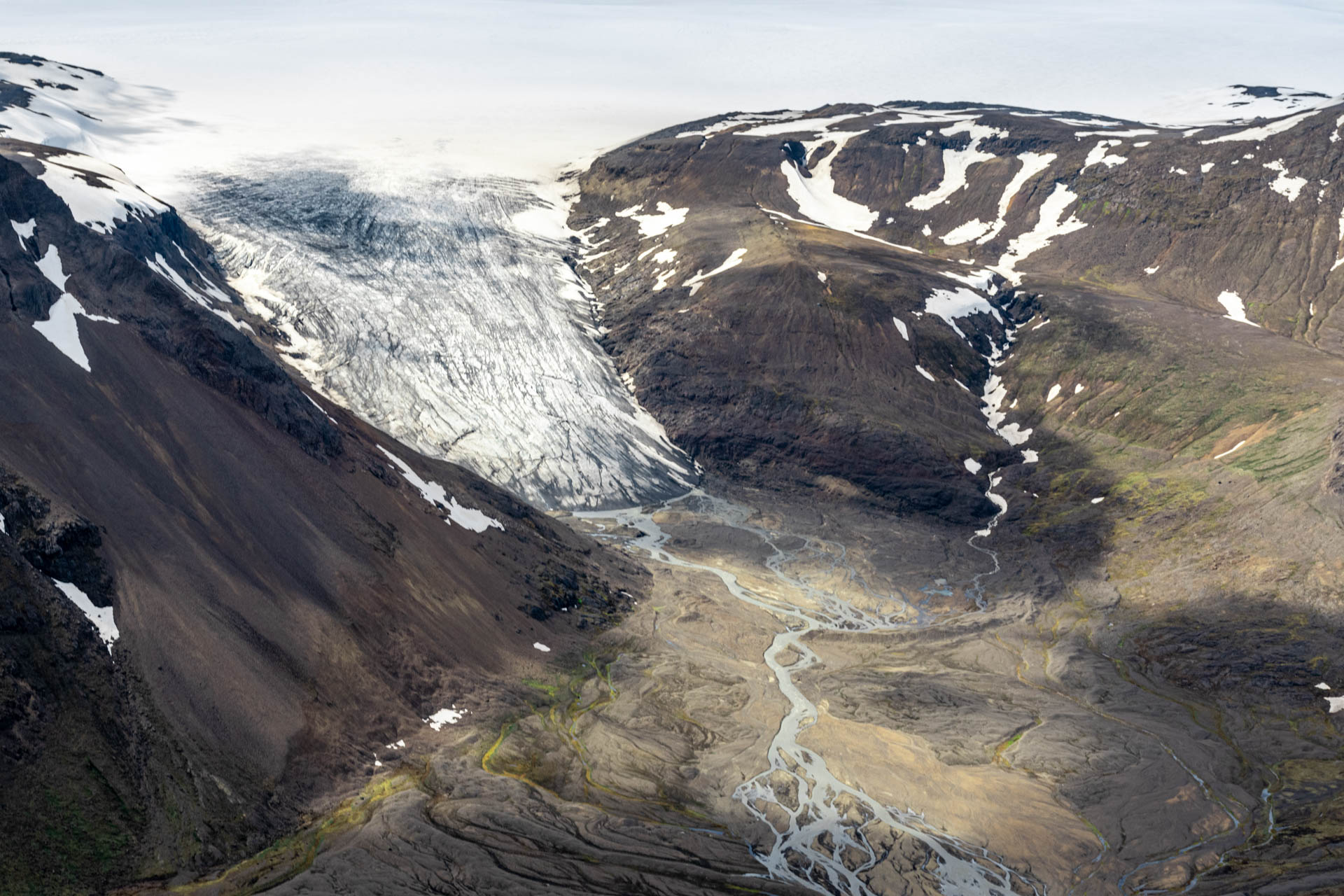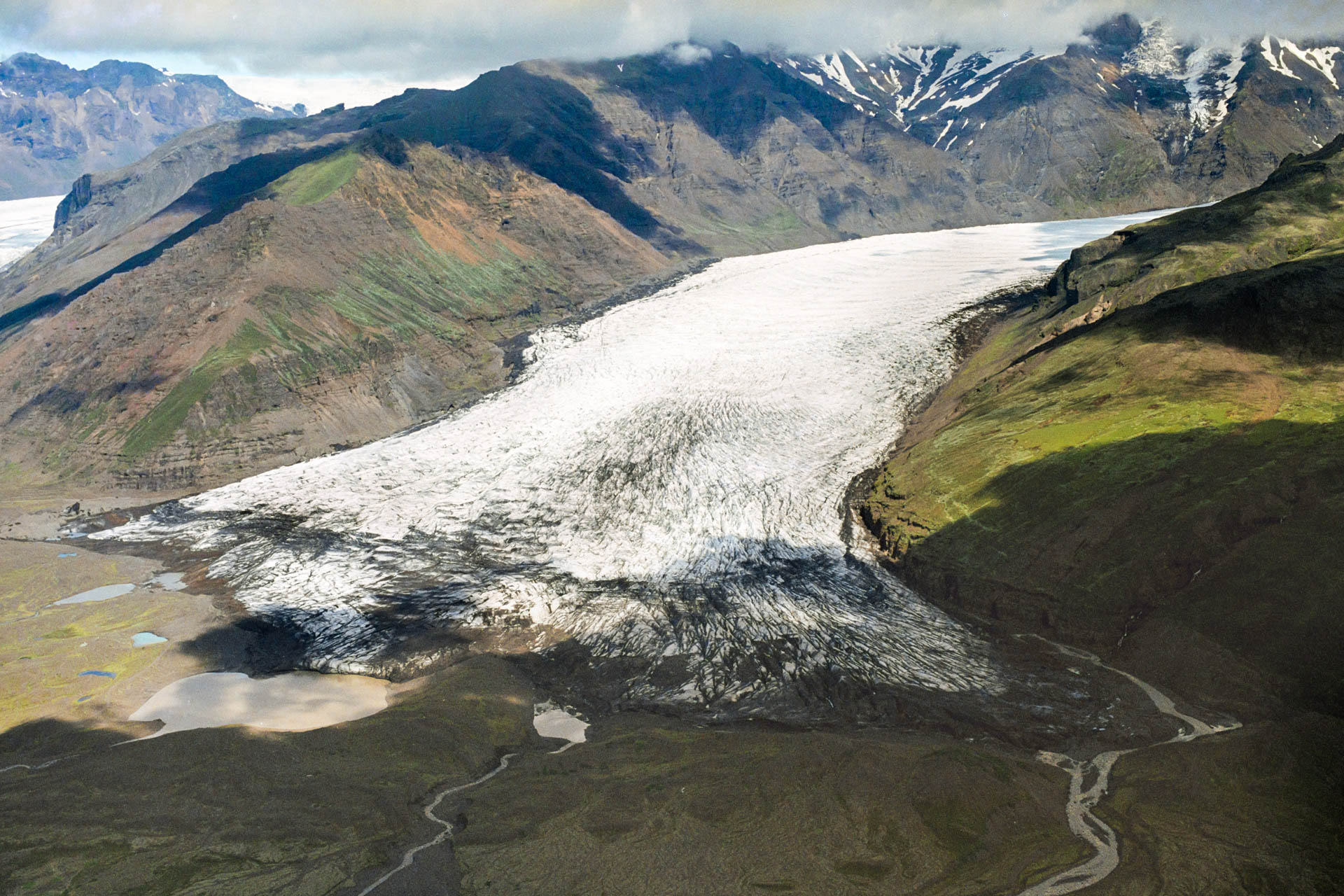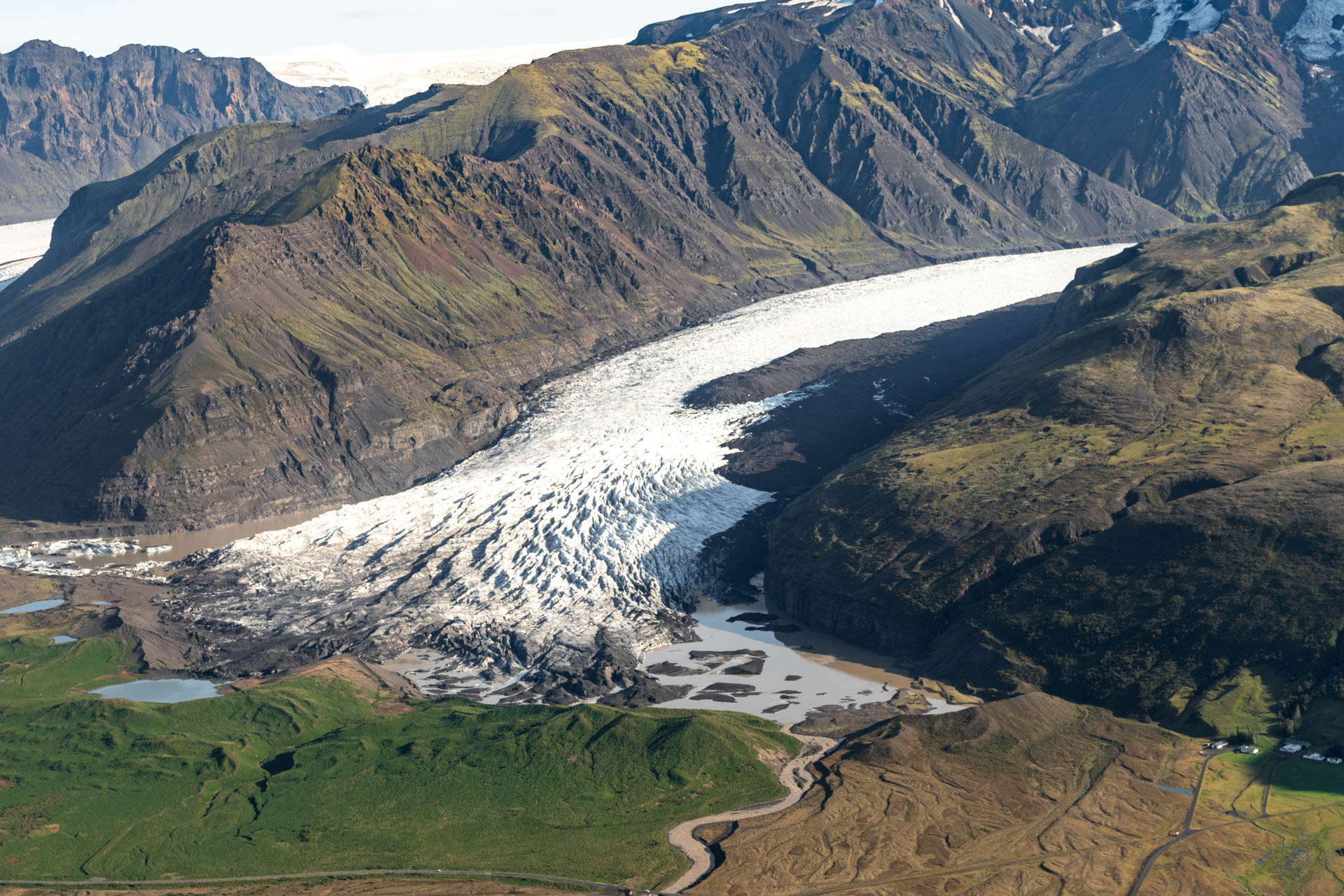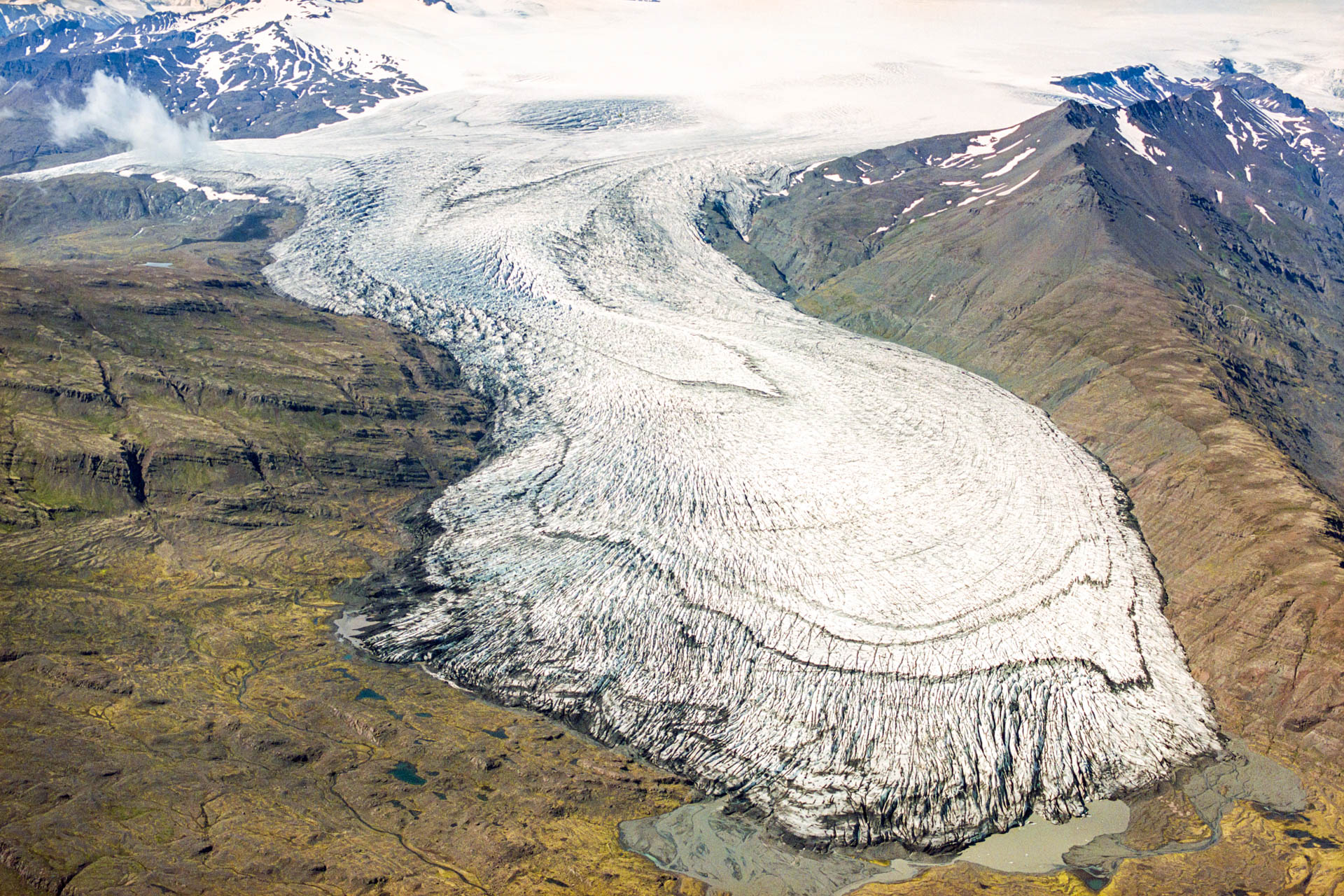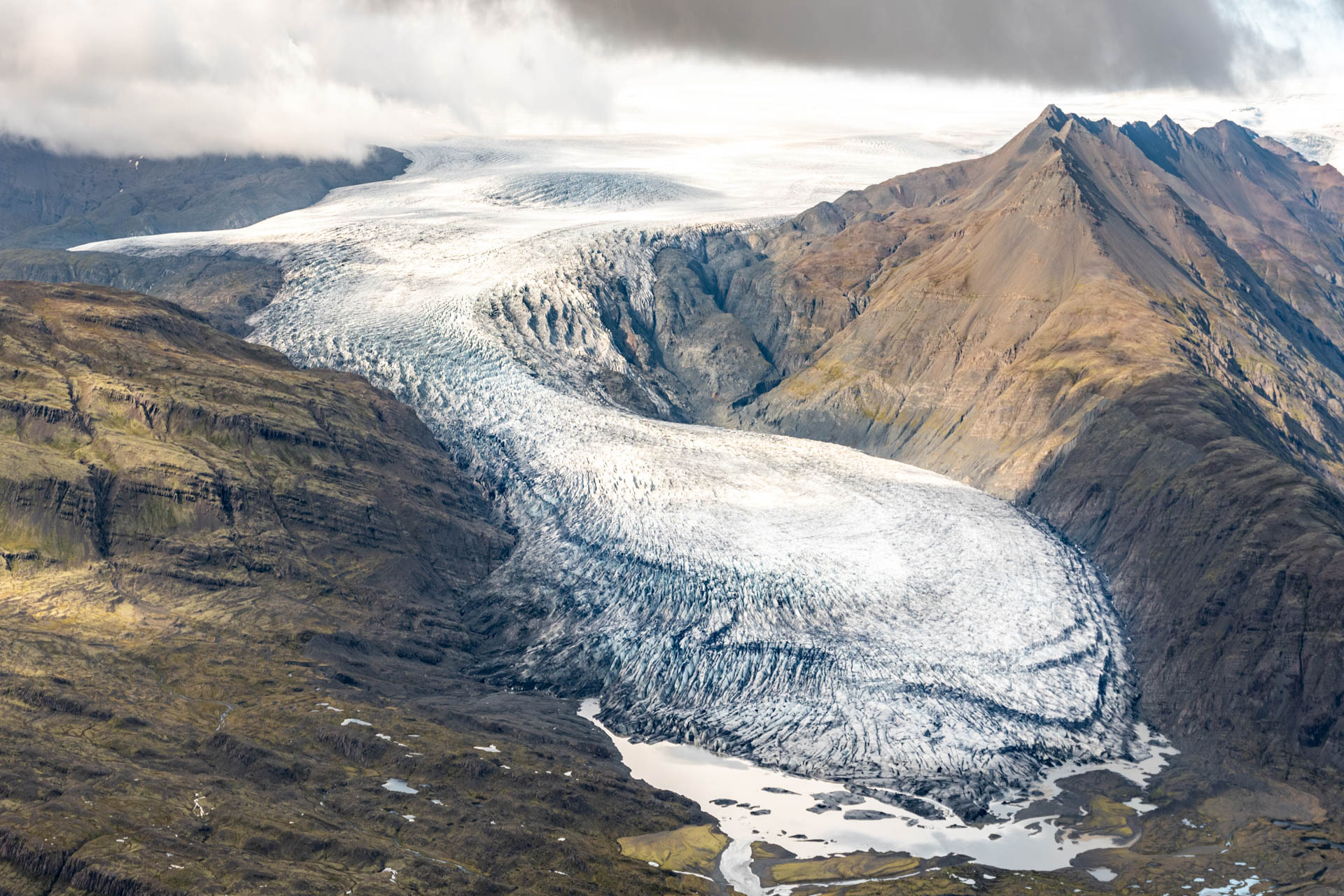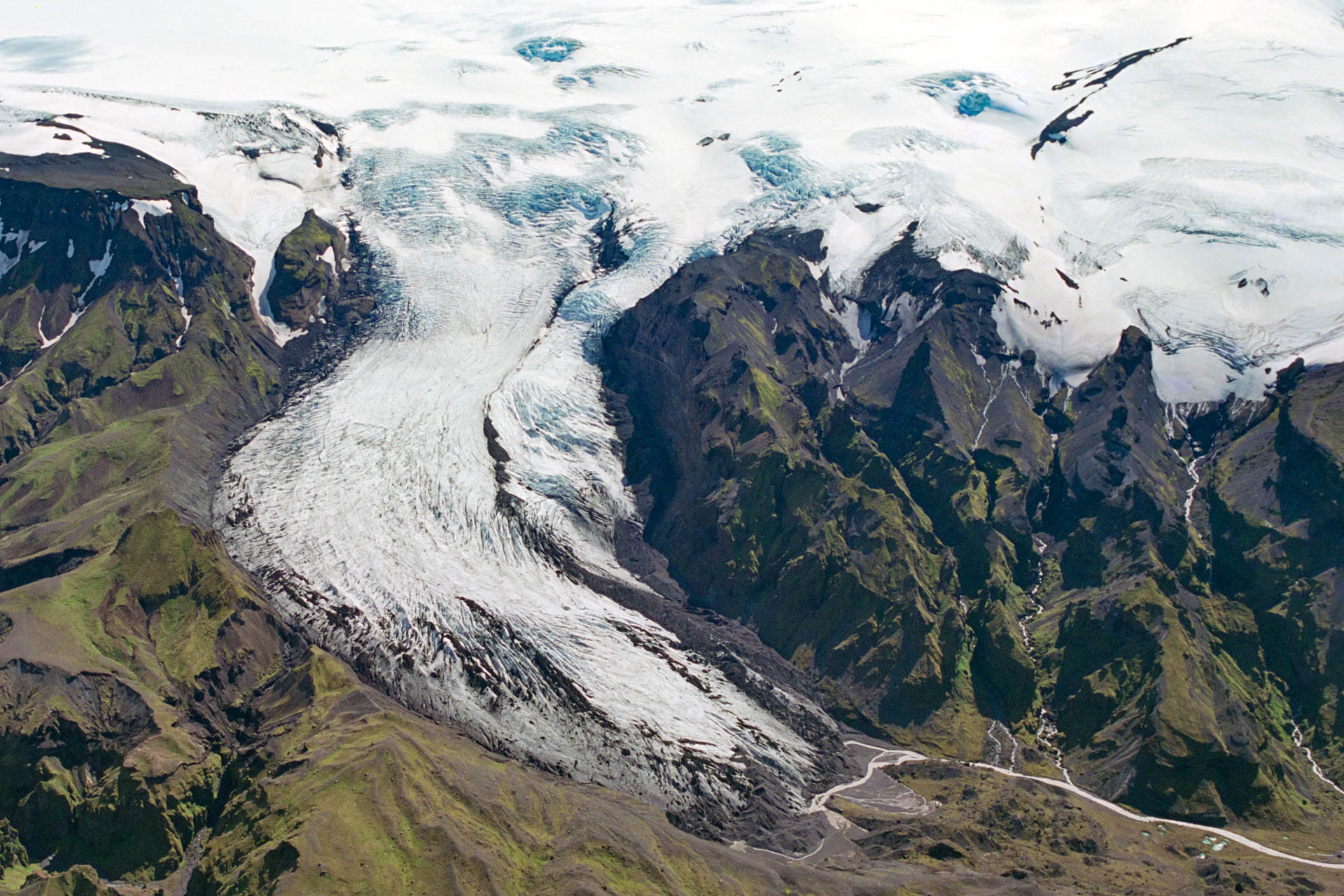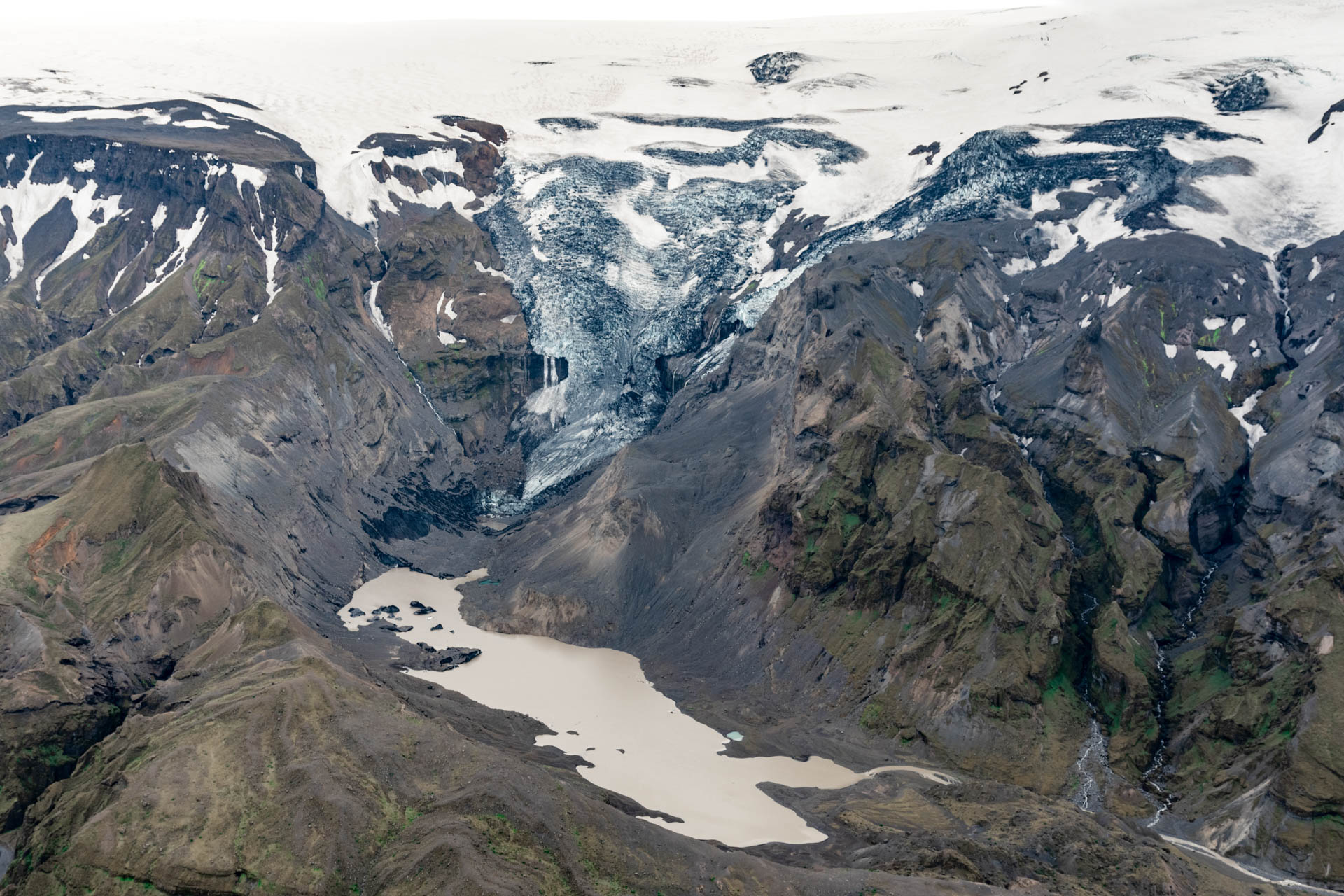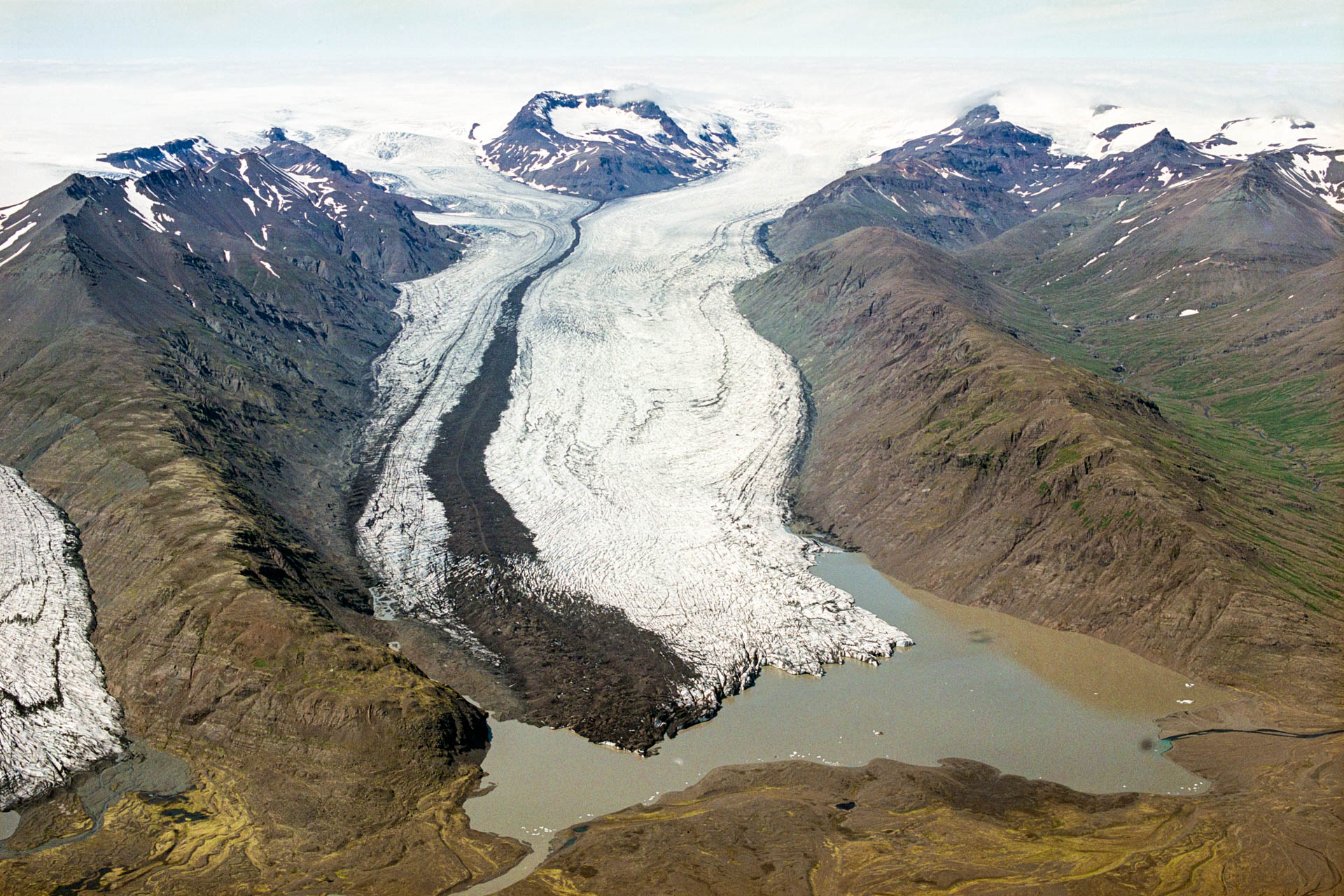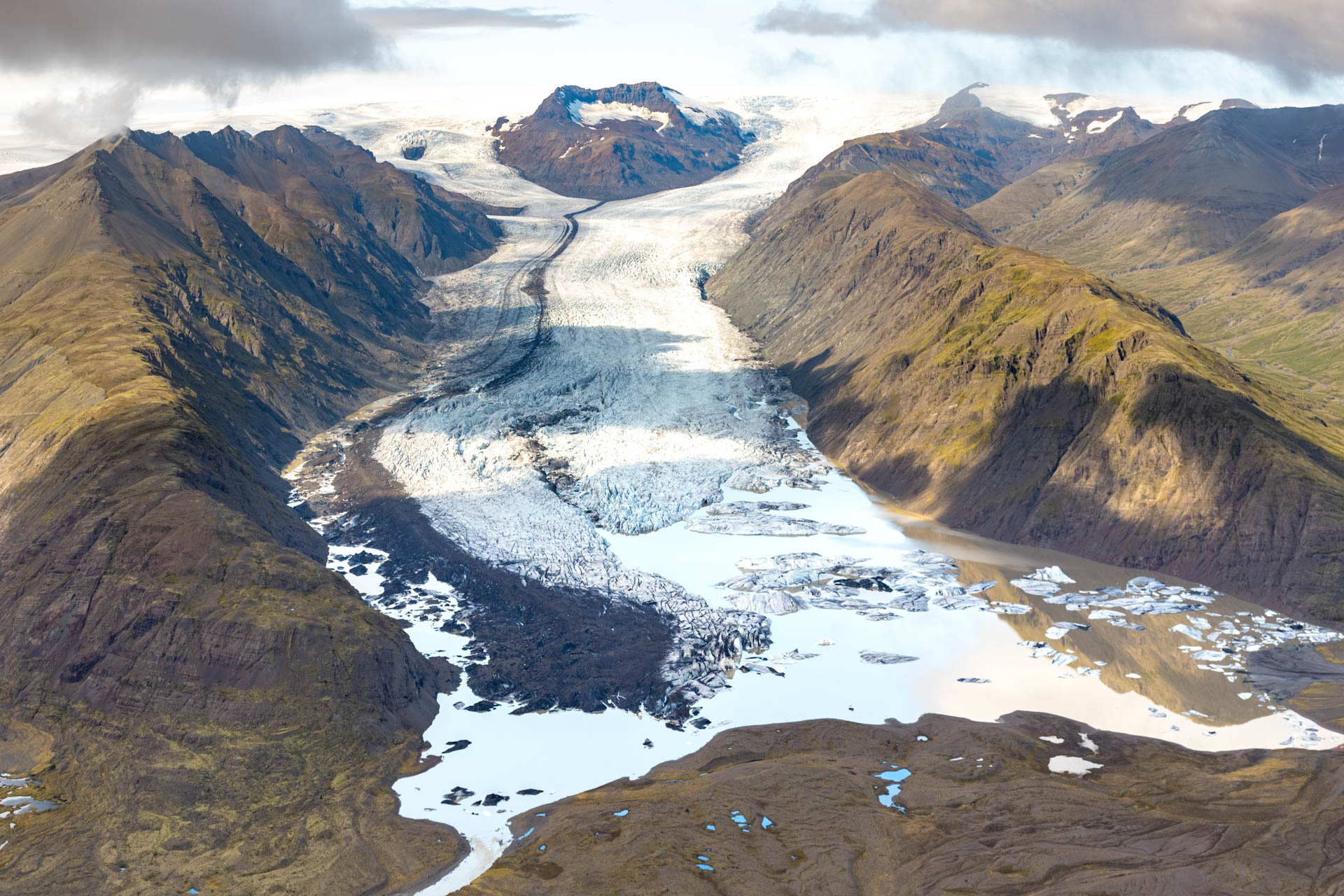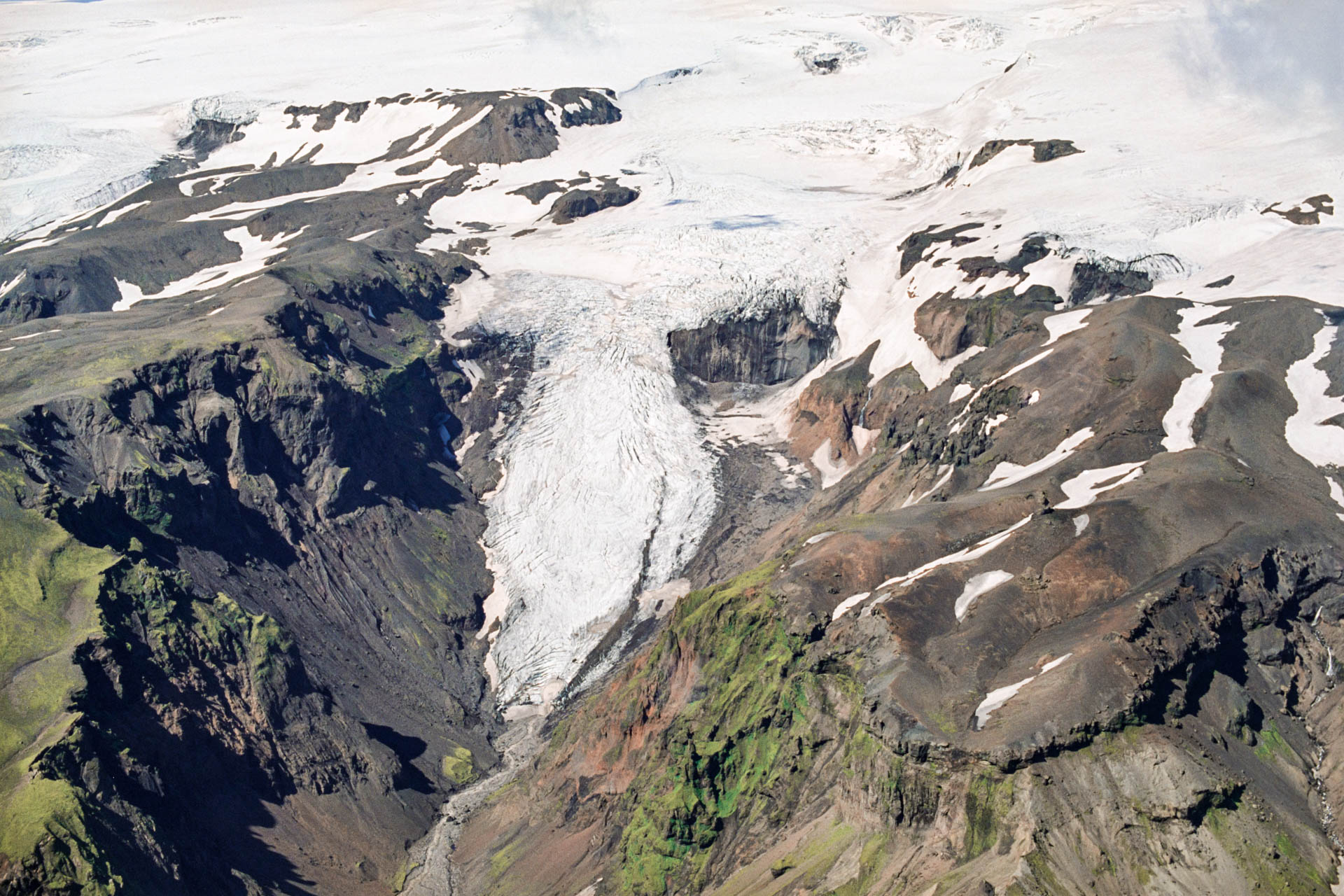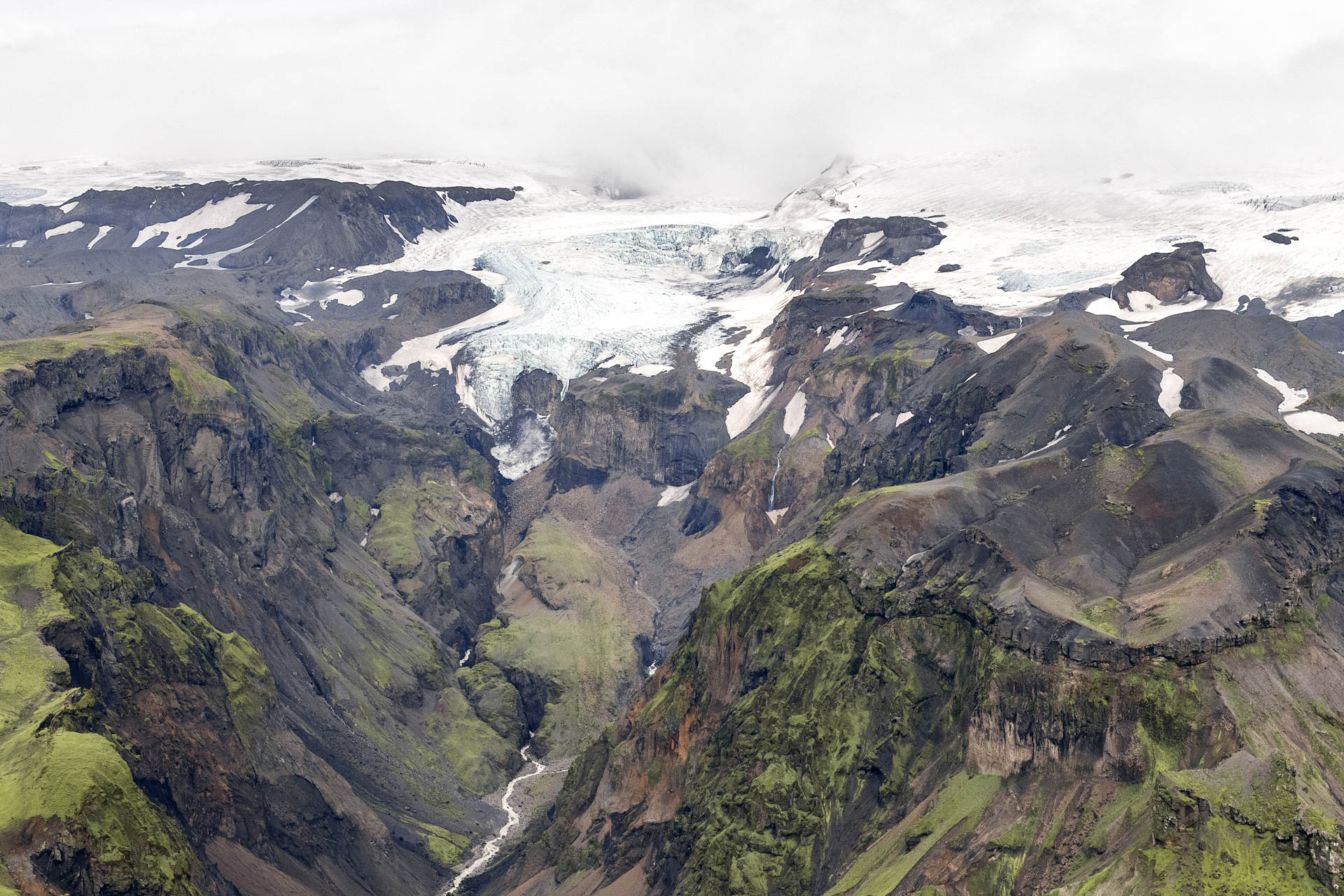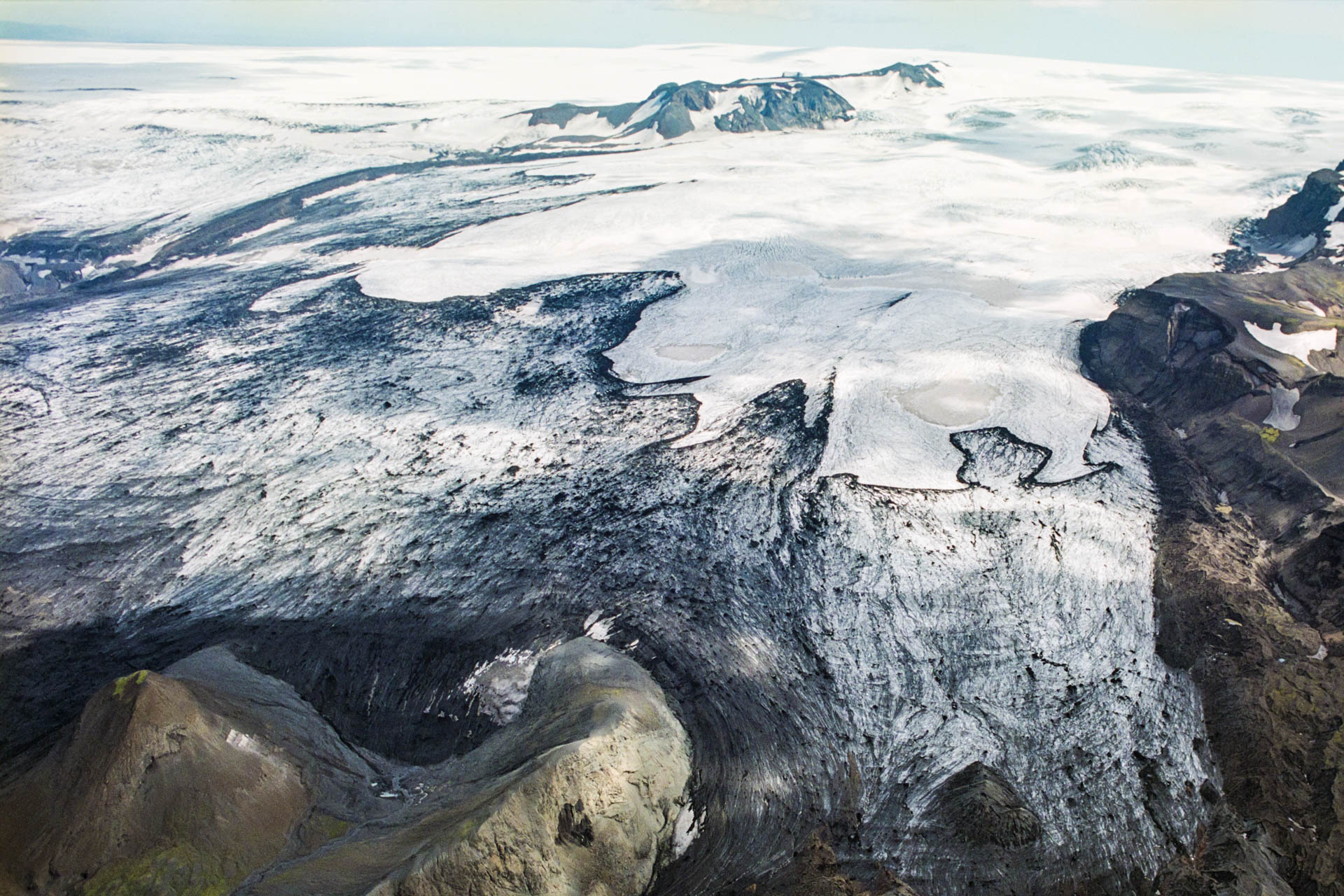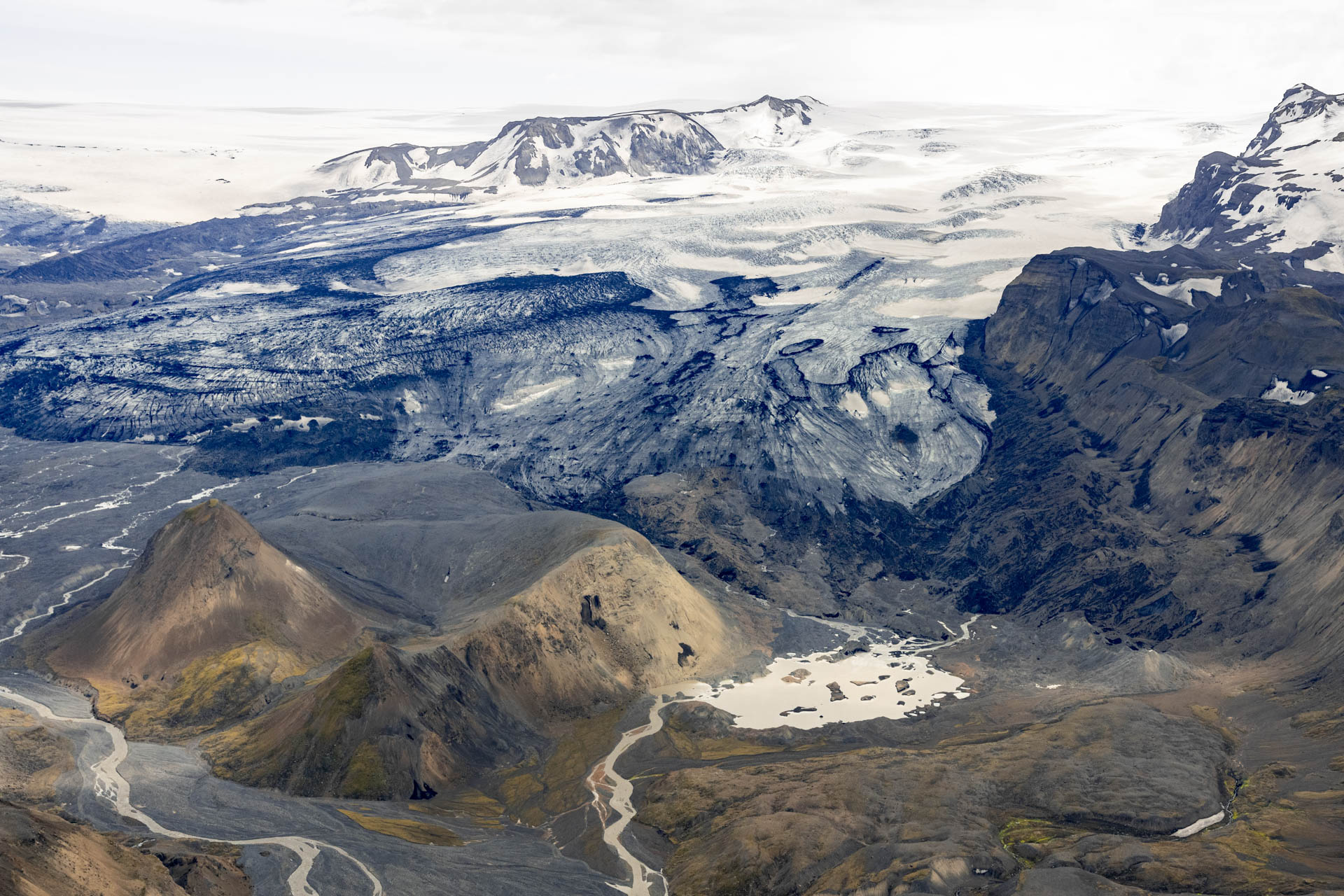
The glacier melt series
1999/2019
- Fjallsjökull-Hrútárjökull
- Sandfellsjökull
- Kvíárjökull
- Hágöngujökull
- Huldujökull
- Grænalón
- Viðborðsjökull
- Öldufellsjökull
- Skaftafellsjökull
- Múlajökull
- Grænalónsjökull
- Klifurárjökull
- Morsárjökull
- Sandfellsjökull
- Svínafellsjökull-Hoffellsjökull
- Brókarjökull
- Nauthagajökull
- Sólheimajökull
- Fláajökull
- Krossárjökull
- Tungnakvíslarjökull
- Falljökull-Virkisjökull
- Unnamed
- Rótarjökull
- Svínafellsjökull
- Skálafellsjökull
- Steinsholtsjökull
- Heinabergsjökull
- Hafursárjökull
- Entujökull
- View entire series in fullscreen slideshow
about
In 1999, artist Olafur Eliasson photographed several dozen glaciers in Iceland as part of his on-going project to document the natural phenomena of the country; this particular series of photographs formed a work called The glacier series. Twenty years later, Eliasson decided to return to Iceland to photograph the glaciers again. A new work, The glacier melt series 1999/2019, brings together thirty pairs of images from 1999 and 2019 to reveal the dramatic impact that global warming is having on our world.
The glacier melt series 1999/2019 is on view as part of the exhibition In real life – at Tate Modern, London, through 5 January 2020 and at Guggenheim Bilbao from 14 February to 21 June 2020; it is also on view in an exhibition at Reykjavik Art Museum from 28 November 2019 to 9 February 2020.
biography
Olafur Eliasson was born in 1967. He grew up in Iceland and Denmark and studied from 1989 to 1995 at the Royal Danish Academy of Fine Arts. In 1995, he moved to Berlin and founded Studio Olafur Eliasson, which today comprises numerous craftsmen, architects, archivists, researchers, administrators, cooks, programmers, art historians, and specialised technicians. Since the mid-1990s Eliasson has realised numerous major exhibitions and projects in museums, galleries, and institutions around the world, and has also produced numerous prominent projects in public space.
In 2019 the United Nations Development Programme appointed Eliasson as a Goodwill Ambassador for climate action and the Sustainable Development Goals.
In 2012 Eliasson and engineer Frederik Ottesen founded the social business Little Sun. This global project provides clean, affordable energy to communities without access to electricity and raises global awareness. (littlesun.com)
Eliasson and architect Sebastian Behmann founded Studio Other Spaces, an international office for art and architecture, in Berlin in 2014. (studiootherspaces.net)
Eliasson lives and works in Copenhagen and Berlin.
The glacier melt series 1999/2019
Olafur Eliasson, 2019In 1999 I travelled to Iceland to document a number of the country’s glaciers from the air. Back then, I thought of the glaciers as beyond human influence. They were awe-inspiring and exhilaratingly beautiful. They seemed immobile, eternal. I was struck at the time by the difference between the human scale and the scale of geo-history. For me a glacier or a rock seem solid, but on the geological scale, rocks and glaciers are constantly in motion.
This summer, twenty years later, I went back to photograph the same glaciers from the same angle and at the same distance. Flying over the glaciers again, I was shocked to see the difference. Of course, I know that global heating means melting ice and I expected the glaciers to have changed, but I simply could not imagine the extent of change. All have shrunk considerably and some are even difficult to find again. Clearly this should not be the case, since glacial ice does not melt and reform each year, like sea ice. Once a glacier melts, it is gone. Forever. It was only in seeing the difference between then and now – a mere twenty years later – that I came to fully understand what is happening. The photos make the consequences of human actions on the environment vividly real. They make the consequences felt.
This August, I joined a group of people to commemorate the passing of Okjökull, the first glacier in Iceland to vanish entirely as a result of human activity. It was a humbling experience. A plaque laid at the site bears an inscription, drafted by the Icelandic writer Andri Snær Magnason, that poses a question to future generations: ‘We know what is happening and what needs to be done. Only you know if we did it.’
I hope that we have now reached a turning point. We have a responsibility towards future generations to protect our remaining glaciers and to halt the progress of global heating. Every glacier lost reflects our inaction. Every glacier saved will be a testament to the action taken in the face of the climate emergency. One day, instead of mourning the loss of more glaciers, we must be able to celebrate their survival.
Resources
Vanishing glaciers
Morgunbladid 12.10.2019
Olaur Eliasson and Orri Páll Ormarsson: ‘I Am Nature Too’
The Guardian 14.08.2019
Andri Snær Magnason: ‘The Glaciers of Iceland Seemed Eternal. Now A Country Mourns Their Loss’
The New York Times 17.08.2019
Iceland’s Prime Minister: ‘The Ice Is Leaving’
CNN 22.09.2019
Hundreds Mourn ‘Dead’ Glacier at Funeral in Switzerland
Inspiration
Rebecca Solnit
‘Don’t Despair: The Climate Fight Is Only Over If You Think It Is’
Paul Hawken
‘One Hundred Solutions to the Climate Crisis’
Mary Robinson
‘Feeling “This Is Too Big for Me” Is No Use to Anybody’
Daniel Aldana Cohen
‘Apocalyptic Climate Reporting Completely Misses the Point’
British Council and Julie’s Bicycle
Long Horizons: A Snapshot of Artists and Organisations Currently Addressing Environmental Impacts in Their Work
Climate facts
Bill McKibben
‘How Extreme Weather Is Shrinking the Planet’
UN Intergovernmental Panel on Climate Change Special Report
UN Emissions Gap Report 2018 / Key Messages
US National Snow and Ice Data Center
NASA’s Global Climate Change: Vital Signs of the Planet
books for further reading
Drawdown: The Most Comprehensive Plan Ever Proposed to Reverse Global Warming, edited by Paul Hawken
Carbon Democracy Political Power in the Age of Oil, by Timothy Mitchell
Being Ecological, by Timothy Morton
Climate Justice, by Mary Robinson
Factfulness, by Hans Rosling, with Ola Rosling and Anna Rosling
Press
- Images [70Mb Zip]
- Background information [PDF]
- Olafur Eliasson statement [PDF]
- Carbon footprint report [PDF]
- For further inquiries please contact press@olafureliasson.net
- olafureliasson.net
- SOE.TV
Legal
Studio Olafur Eliasson GmbH
Christinenstrasse 18/19, Haus 2
10119 Berlin
Director
Olafur Eliasson
Contact
studio@olafureliasson.net
+49 30 2000 391 50
VAT ID: DE 247257125
Tax No.: 37/415/21533
Commercial registry: HRB 99366
Registration office: Amtsgericht Charlottenburg
The copyright for published objects developed by Studio Olafur Eliasson GmbH itself remains only with Studio Olafur Eliasson GmbH. The use or sharing of such images, audio features, video sequences, and texts in other electronic or printed publications is permitted for all non-commercial purposes.
Studio Olafur Eliasson GmbH explicitly reserves the right to alter, supplement, or delete parts or the whole of the website's content, or to temporarily or completely discontinue publication without further notice.
Studio Olafur Eliasson GmbH has no influence whatsoever on content offered through direct or indirect links to other web providers and pages and does not endorse any of this content – with the exception of the content on social media profiles administered by Studio Olafur Eliasson GmbH.
